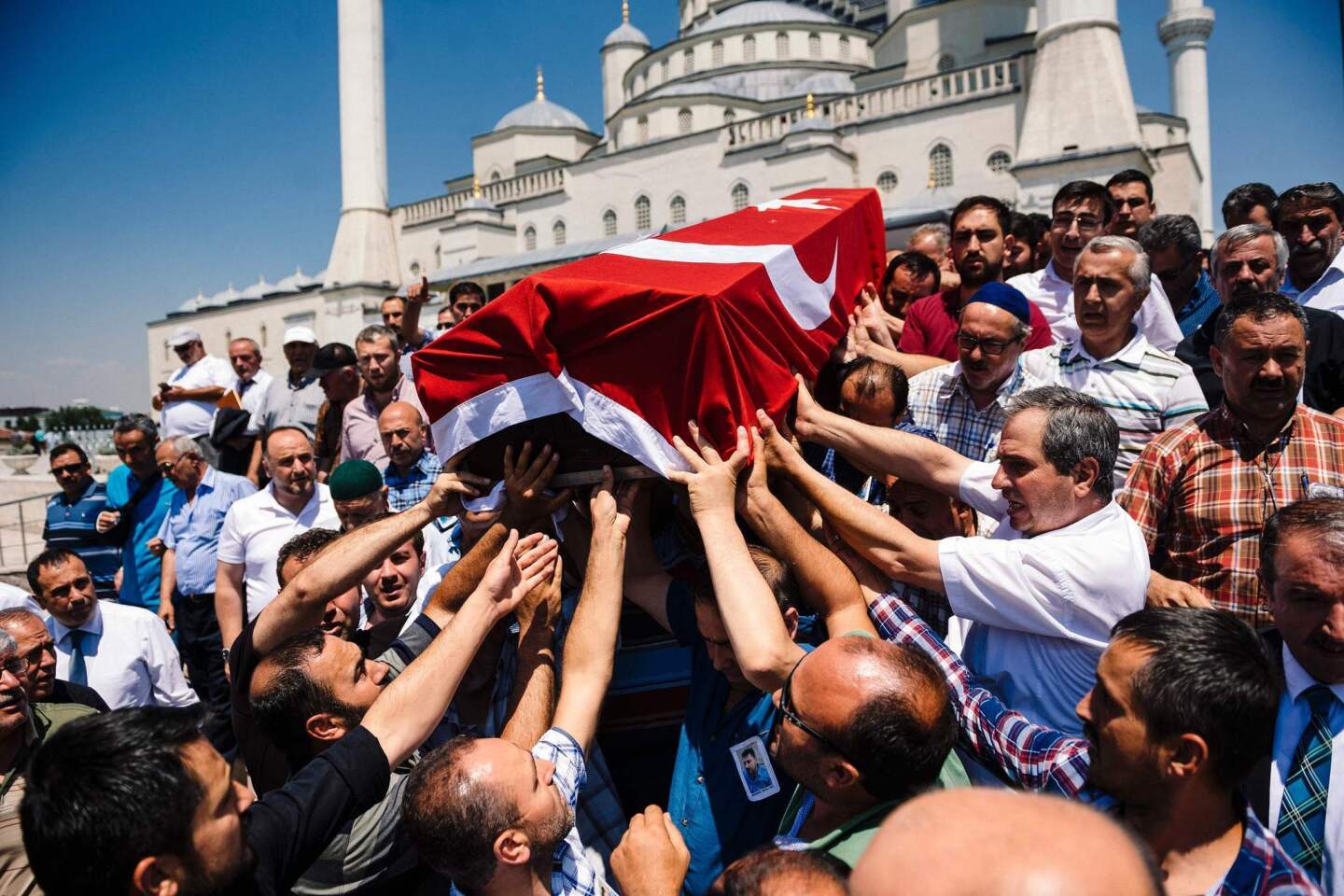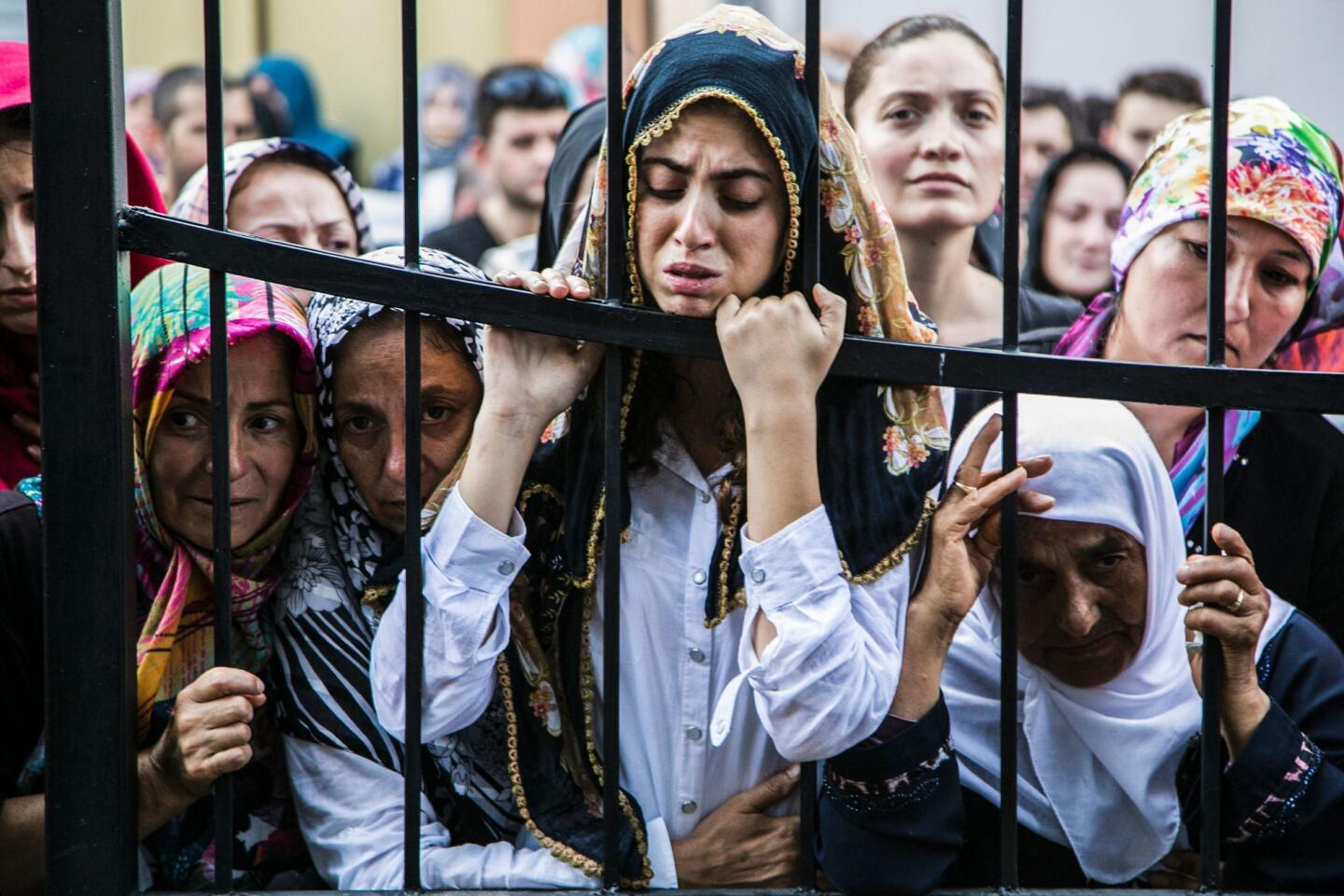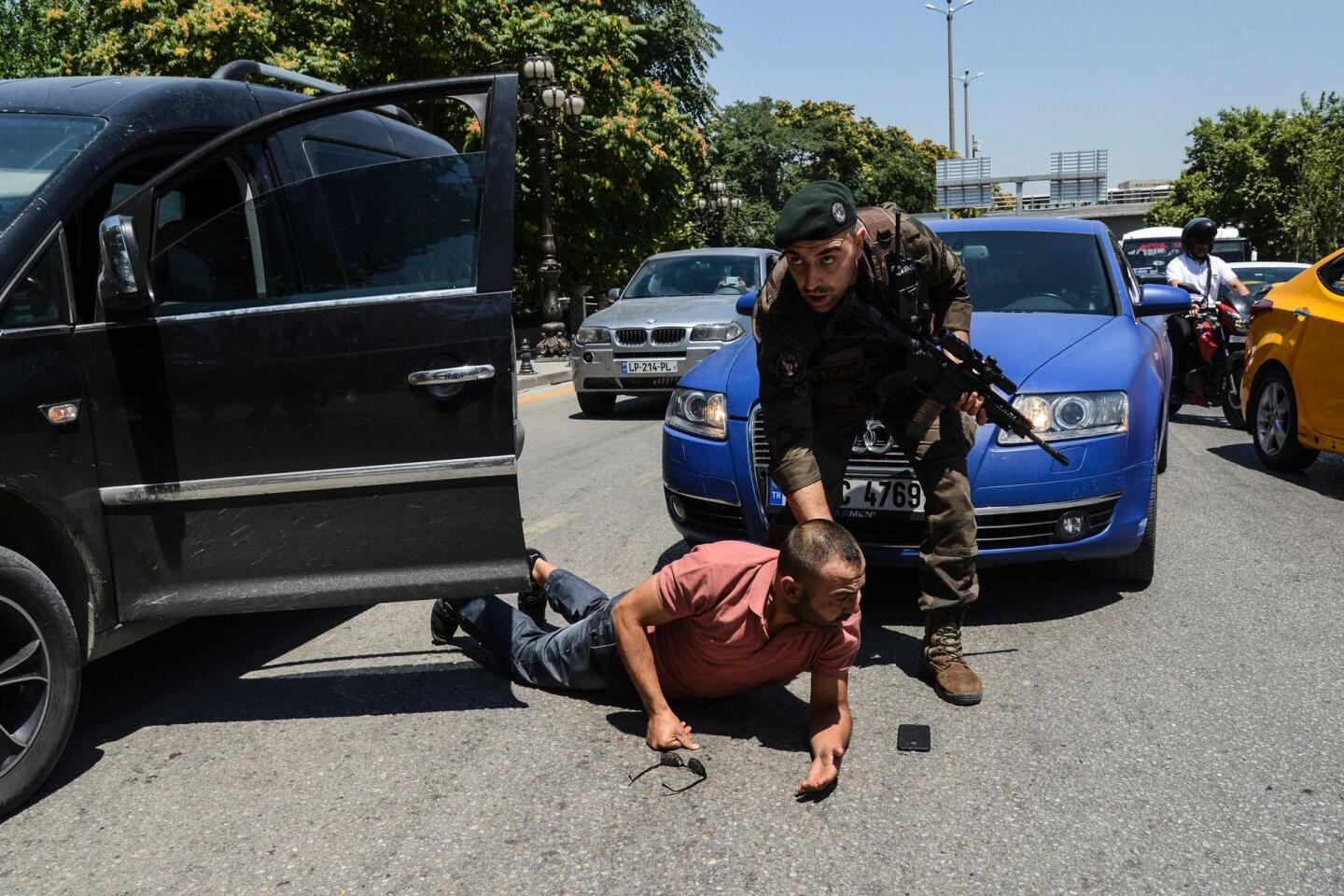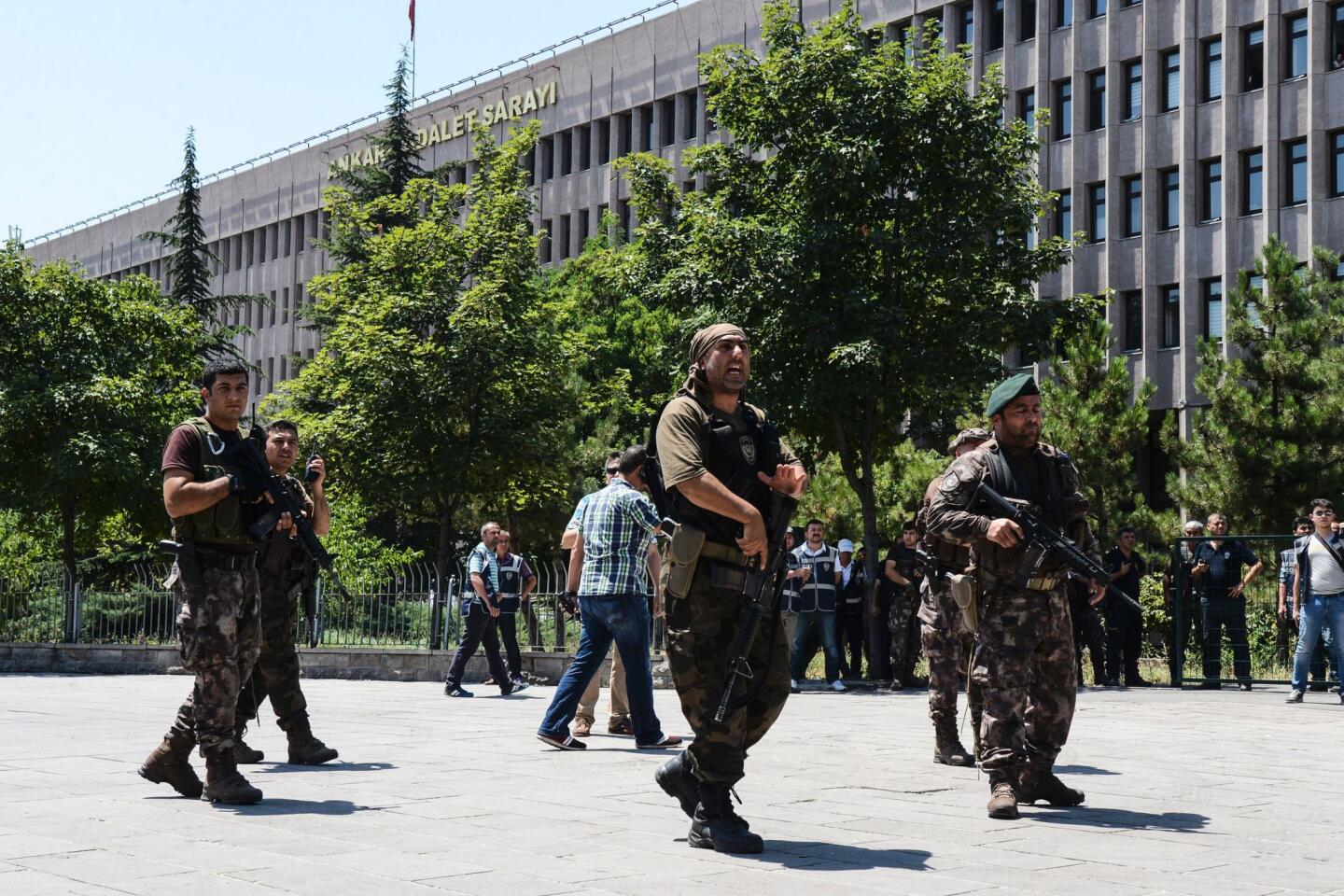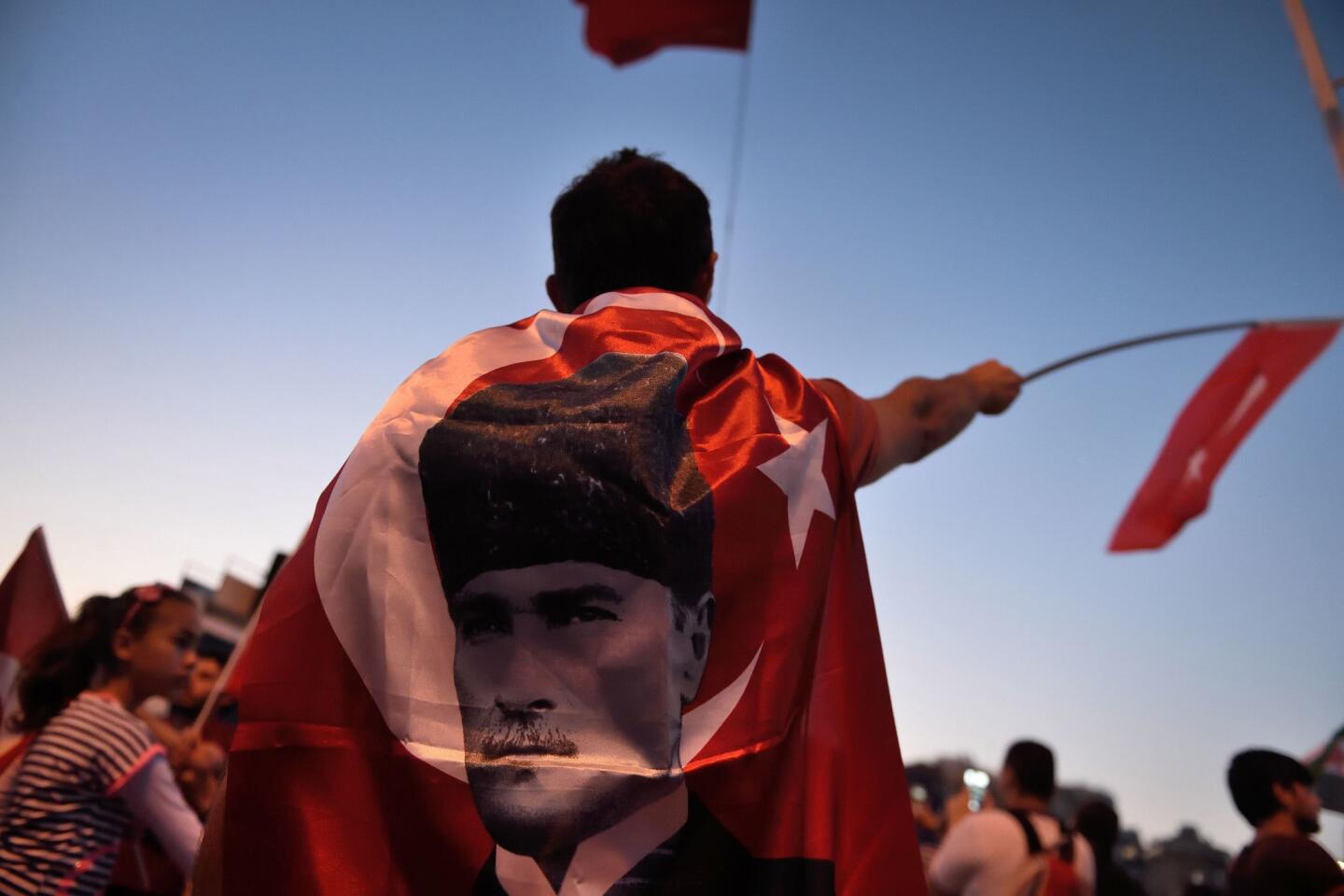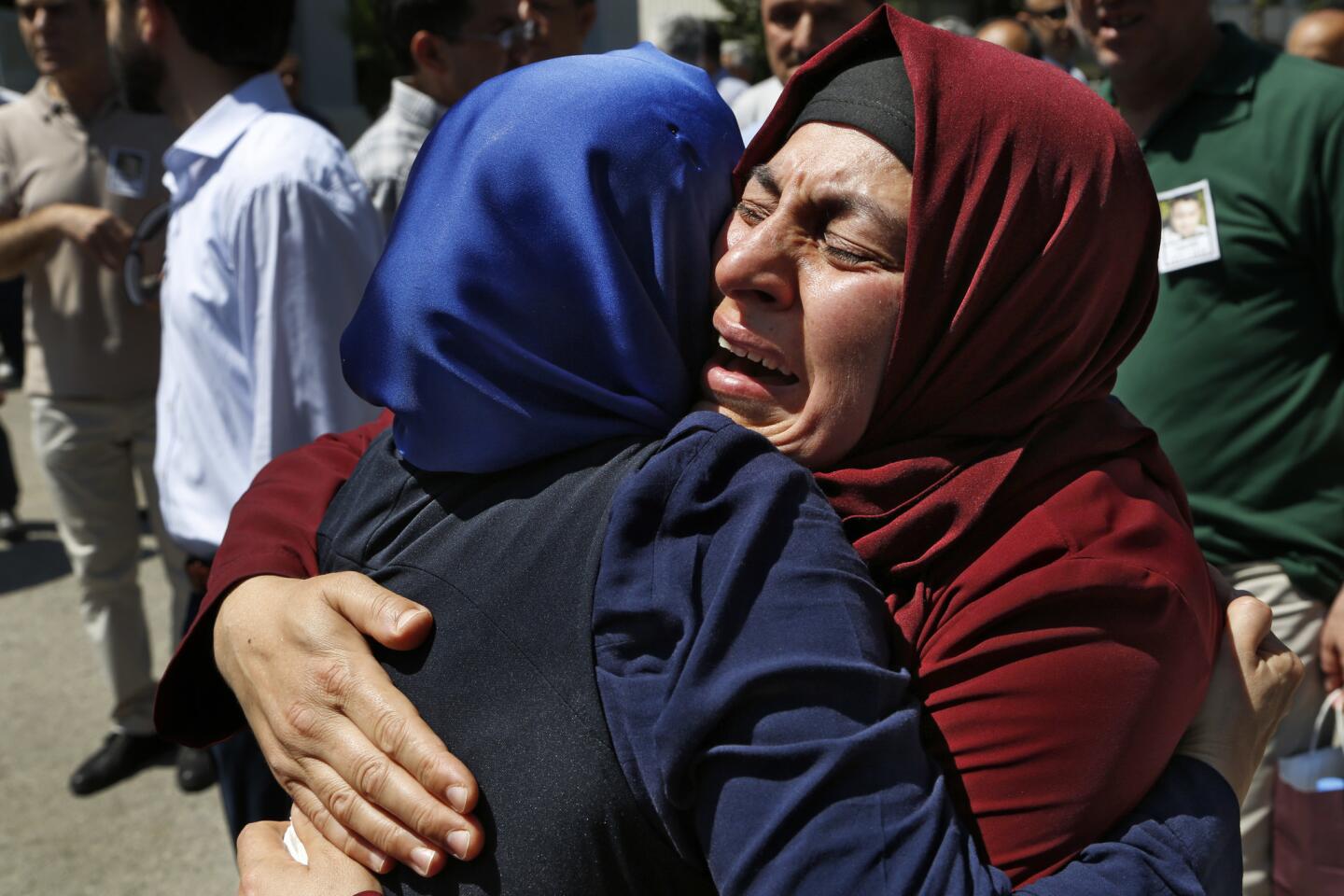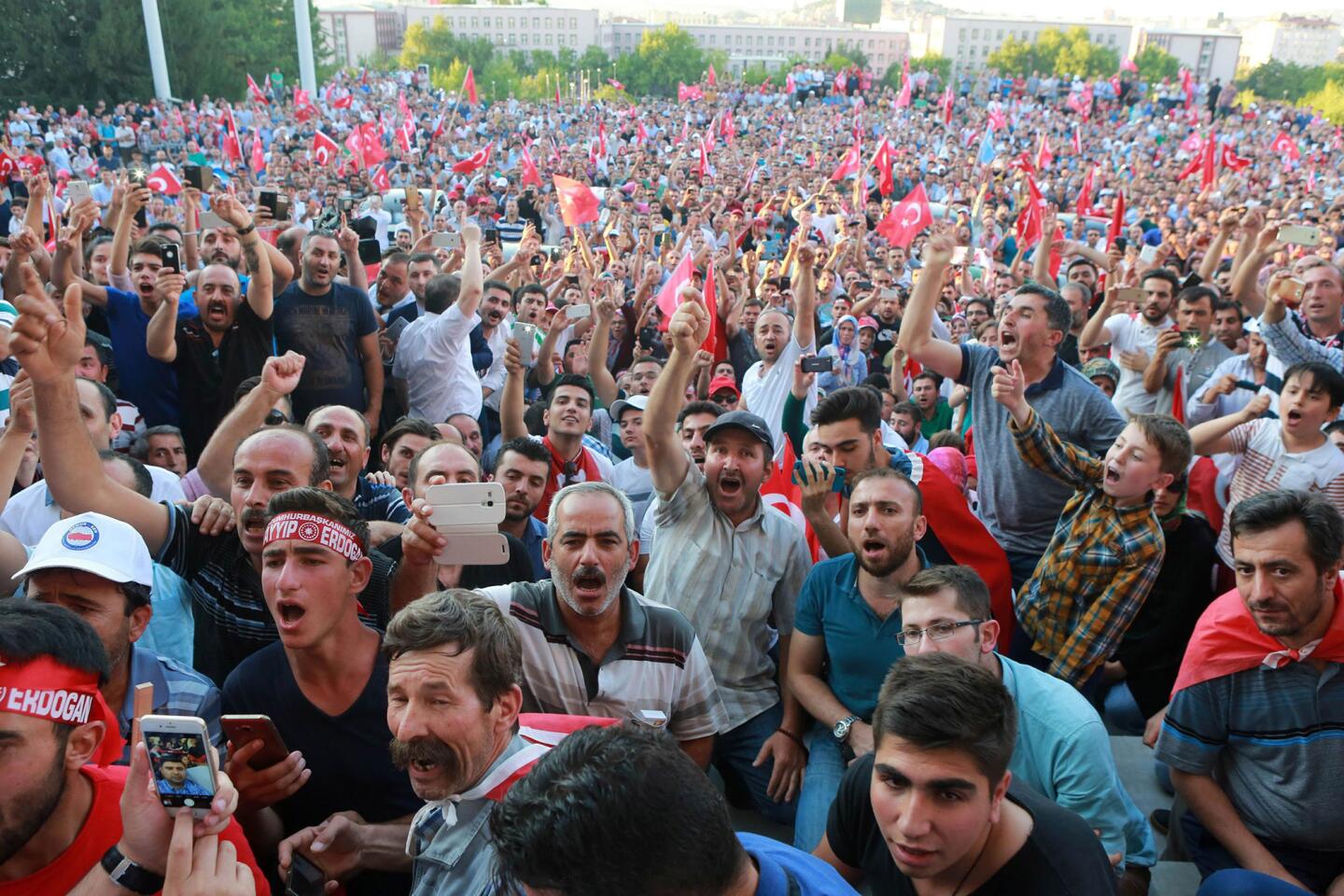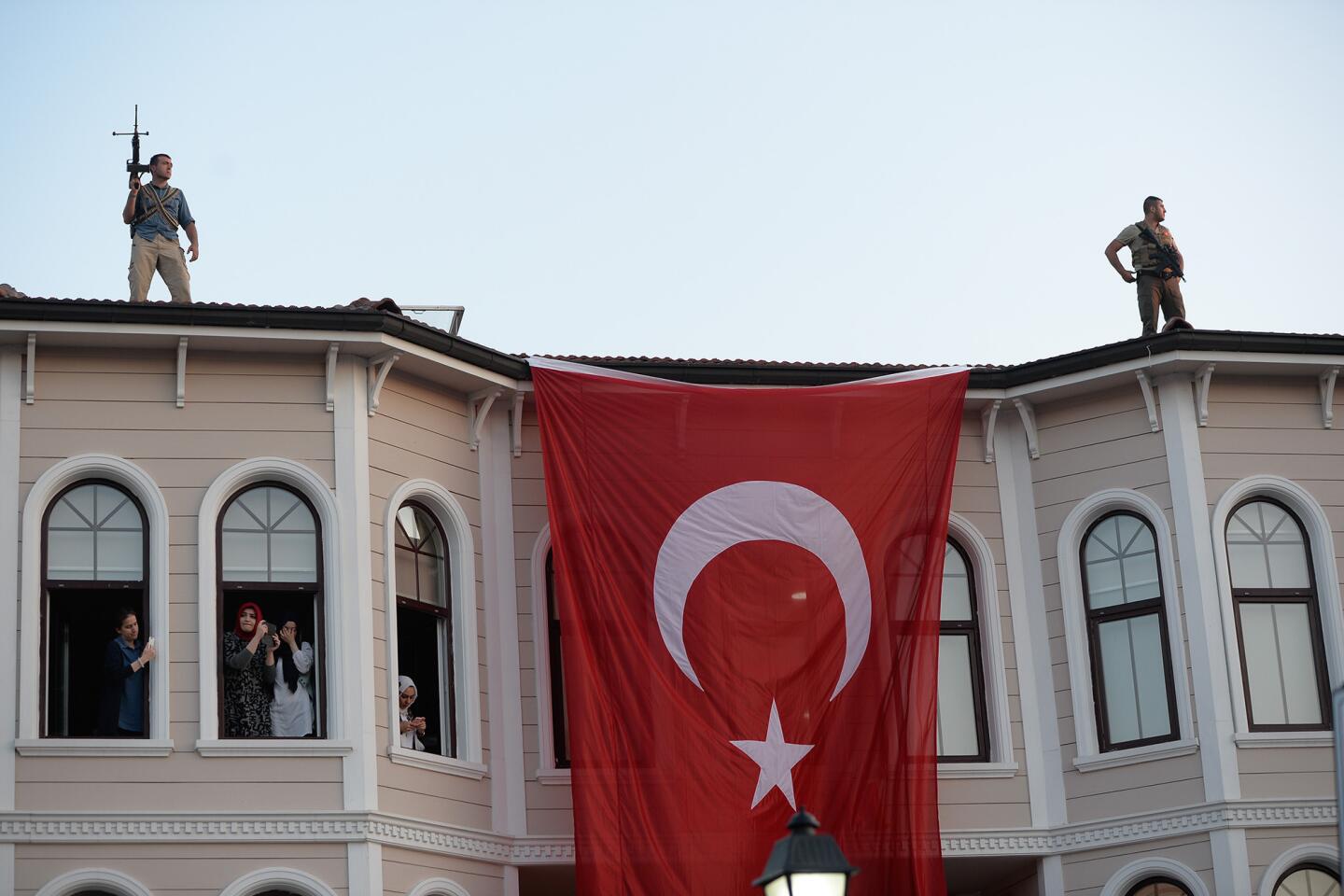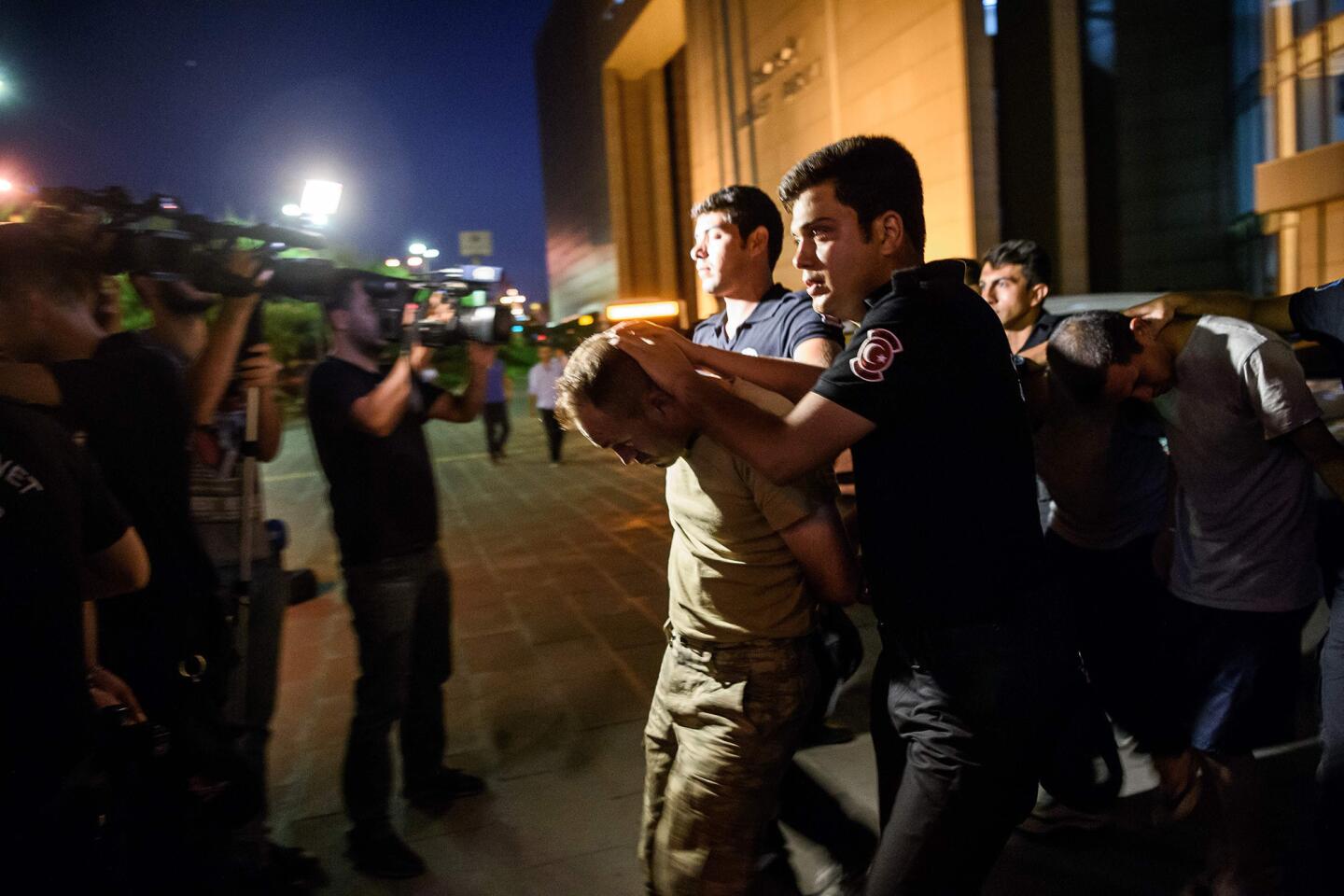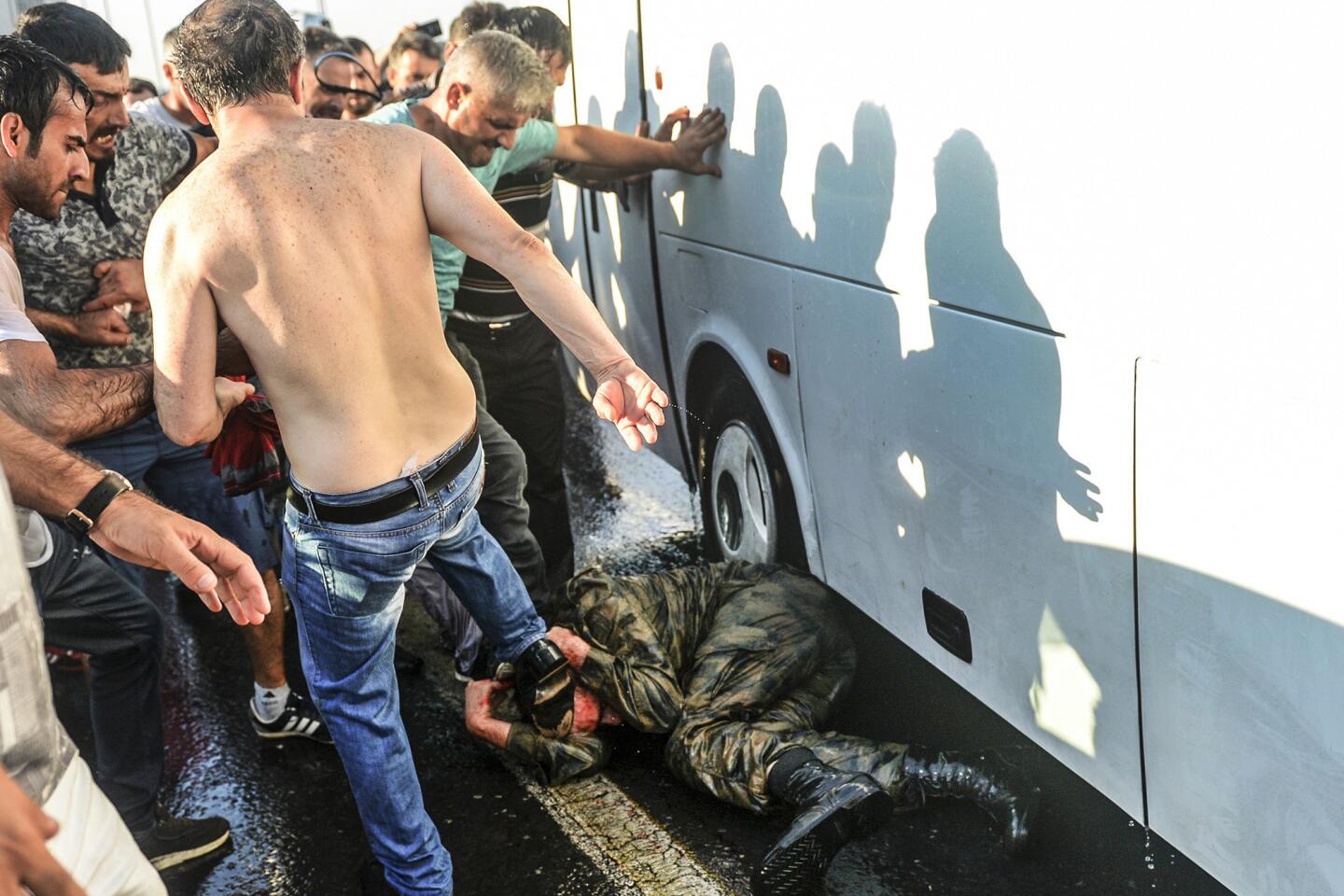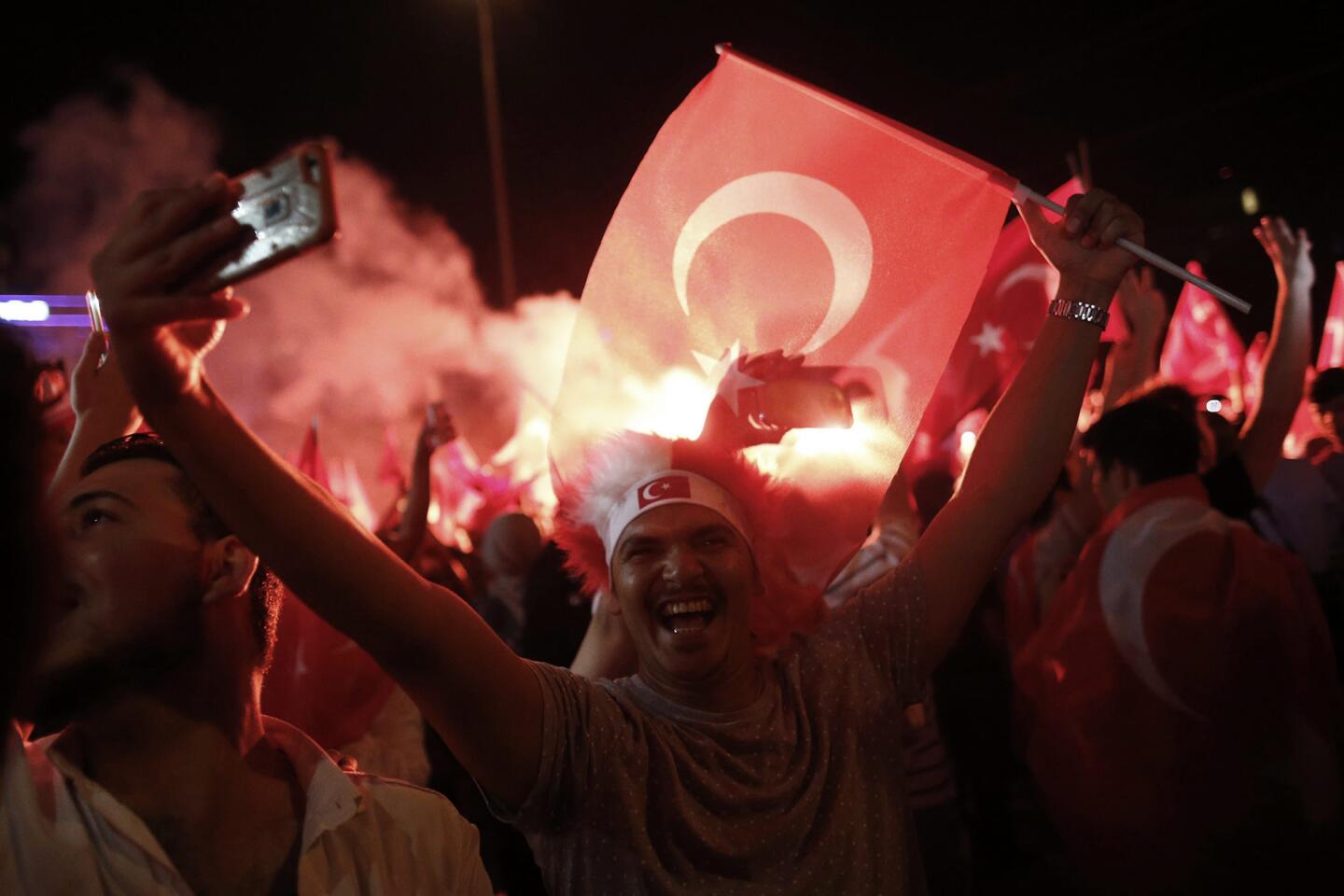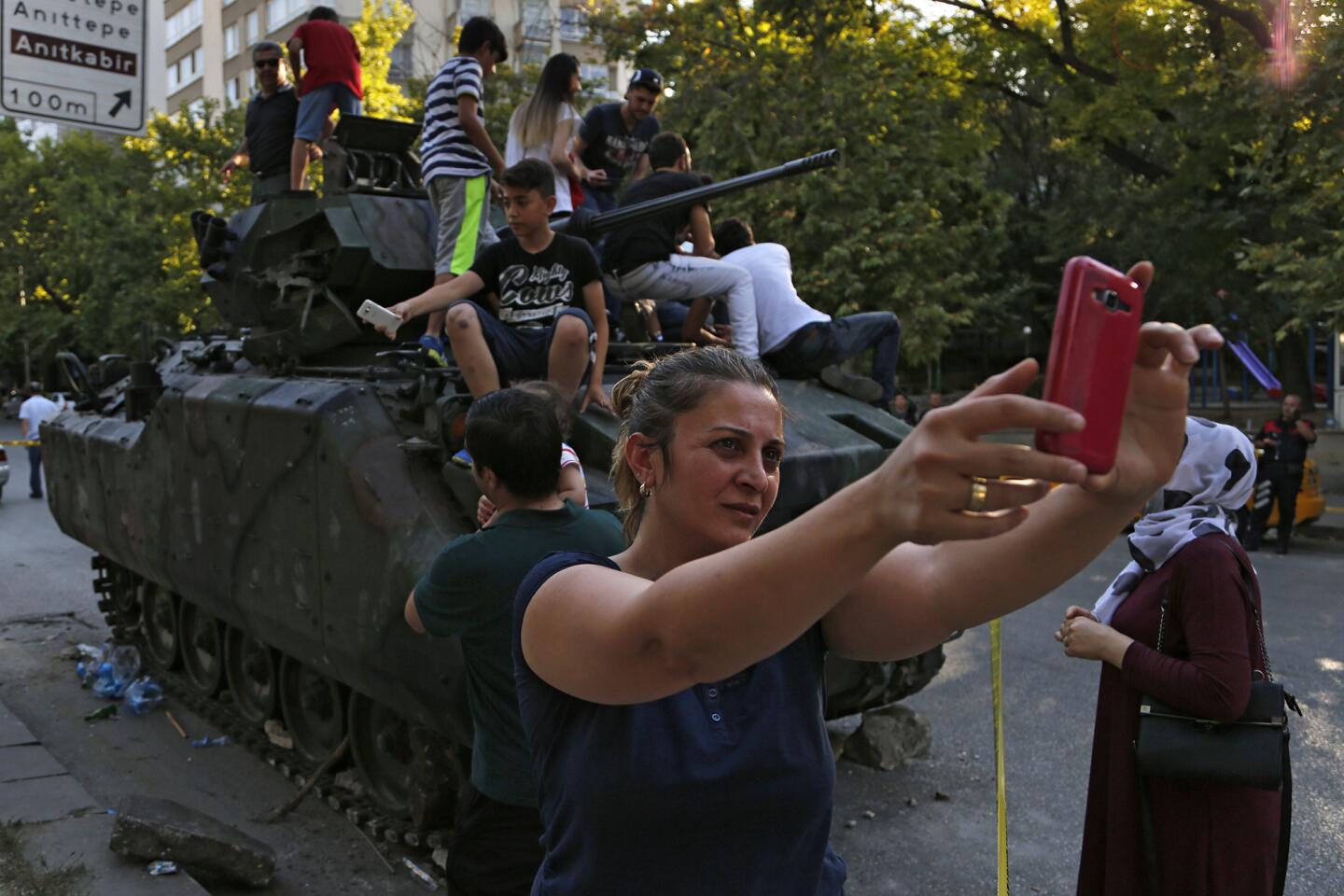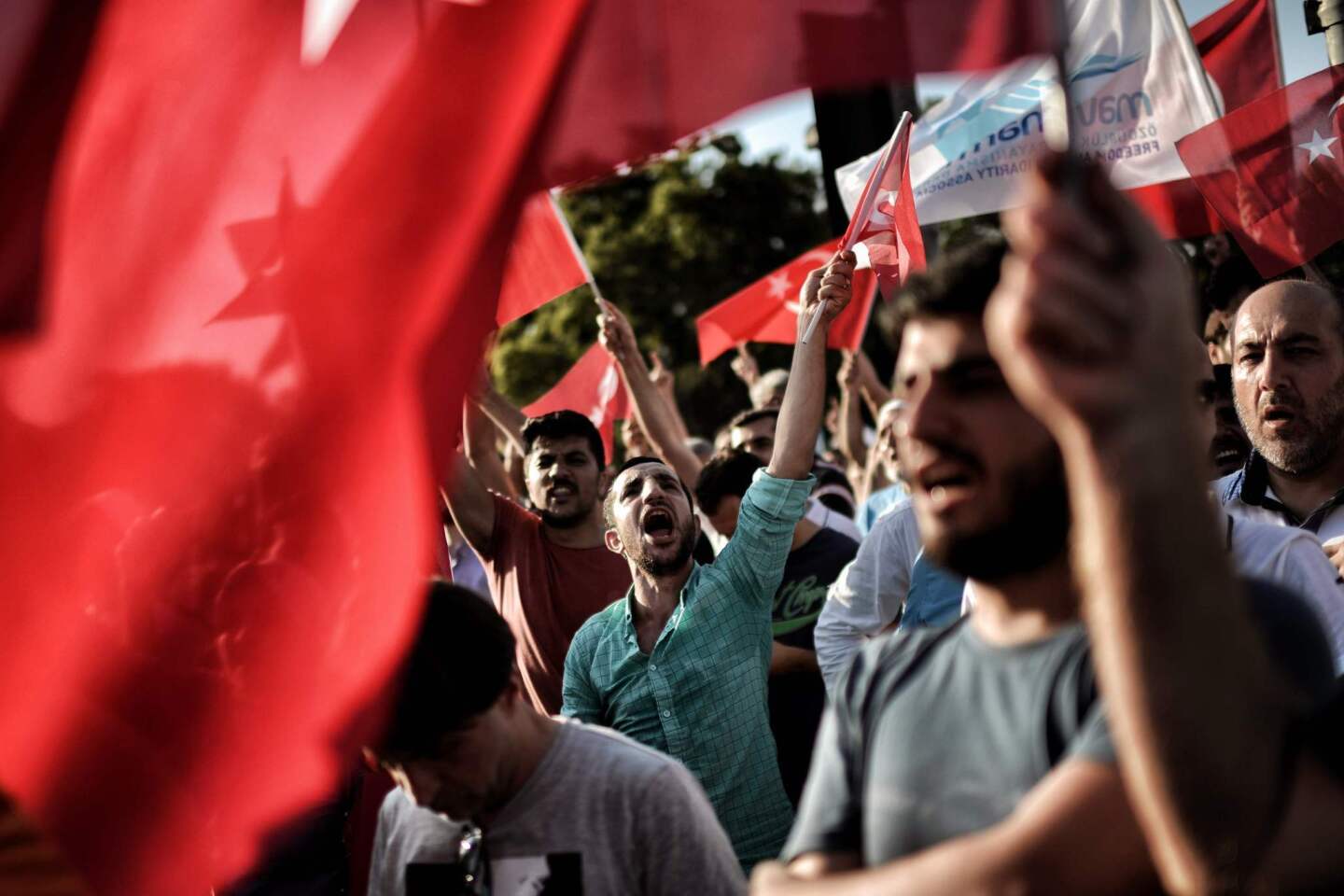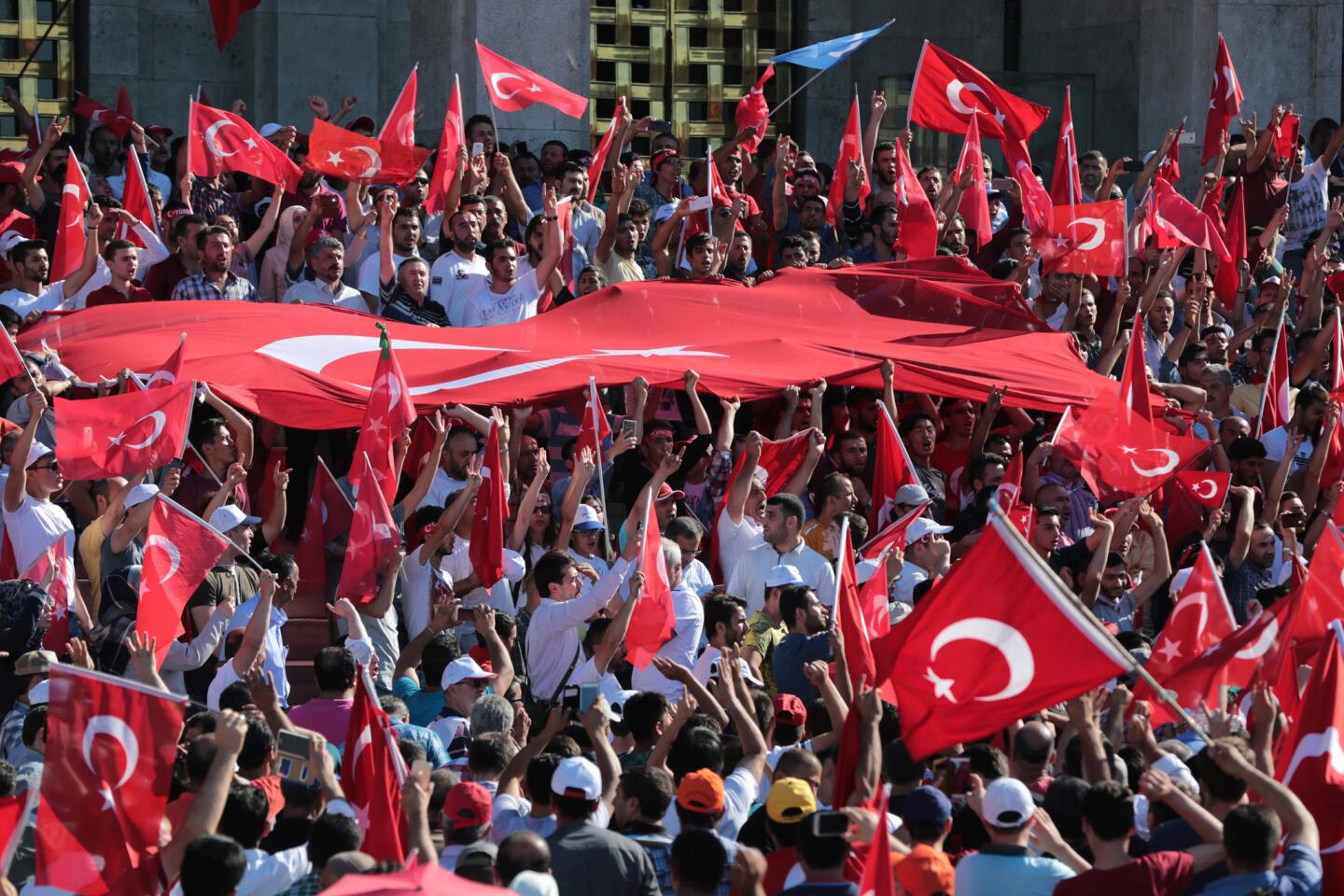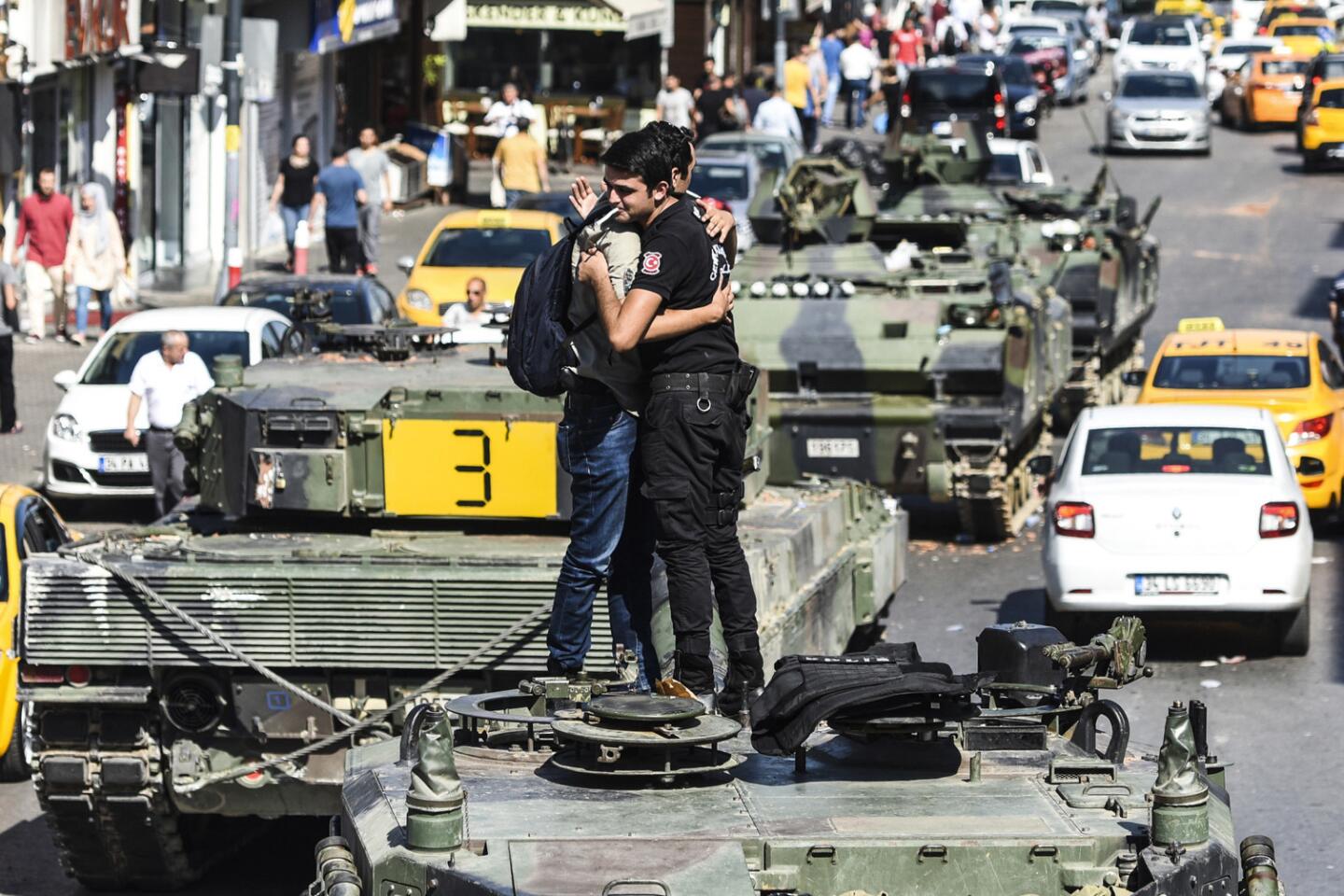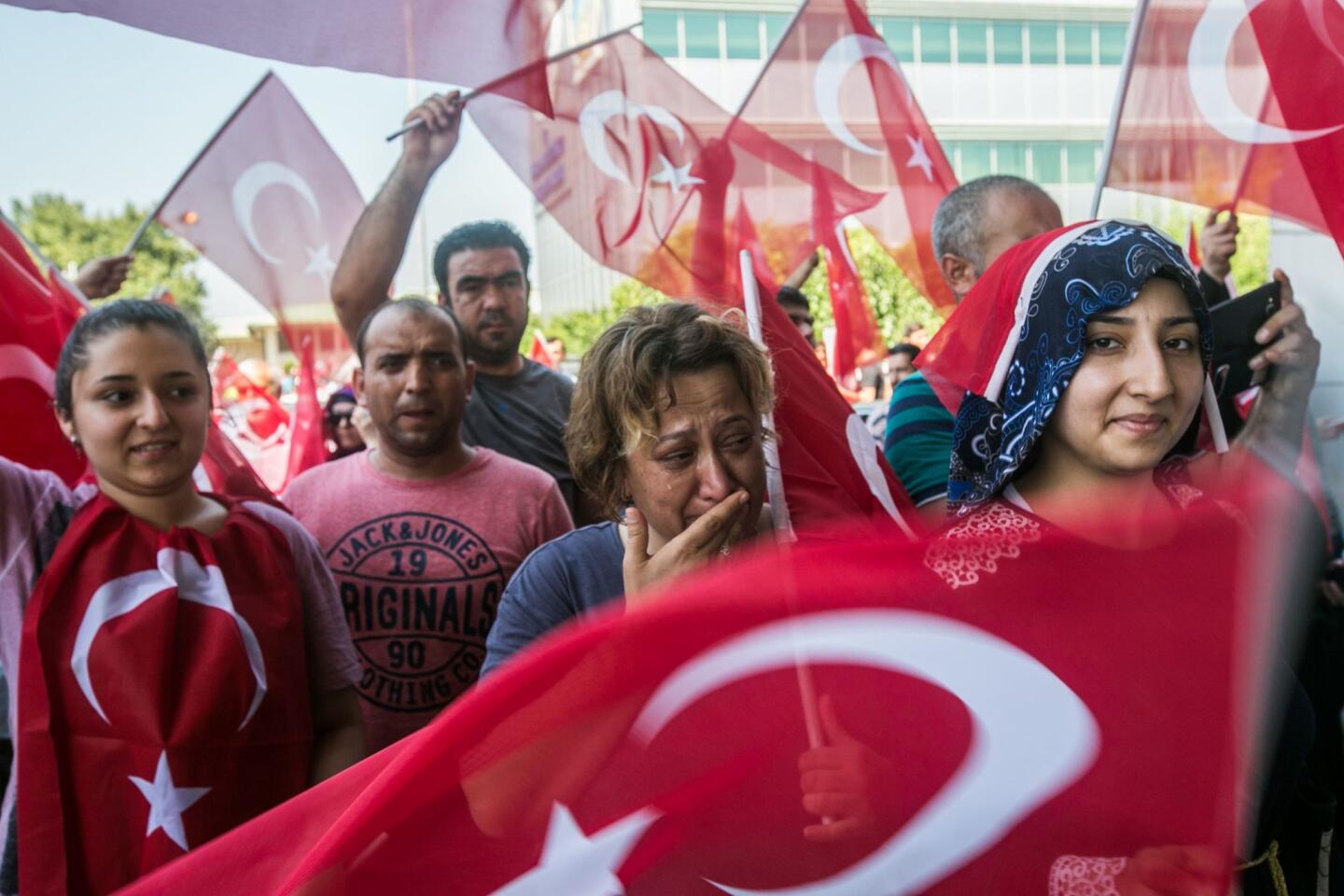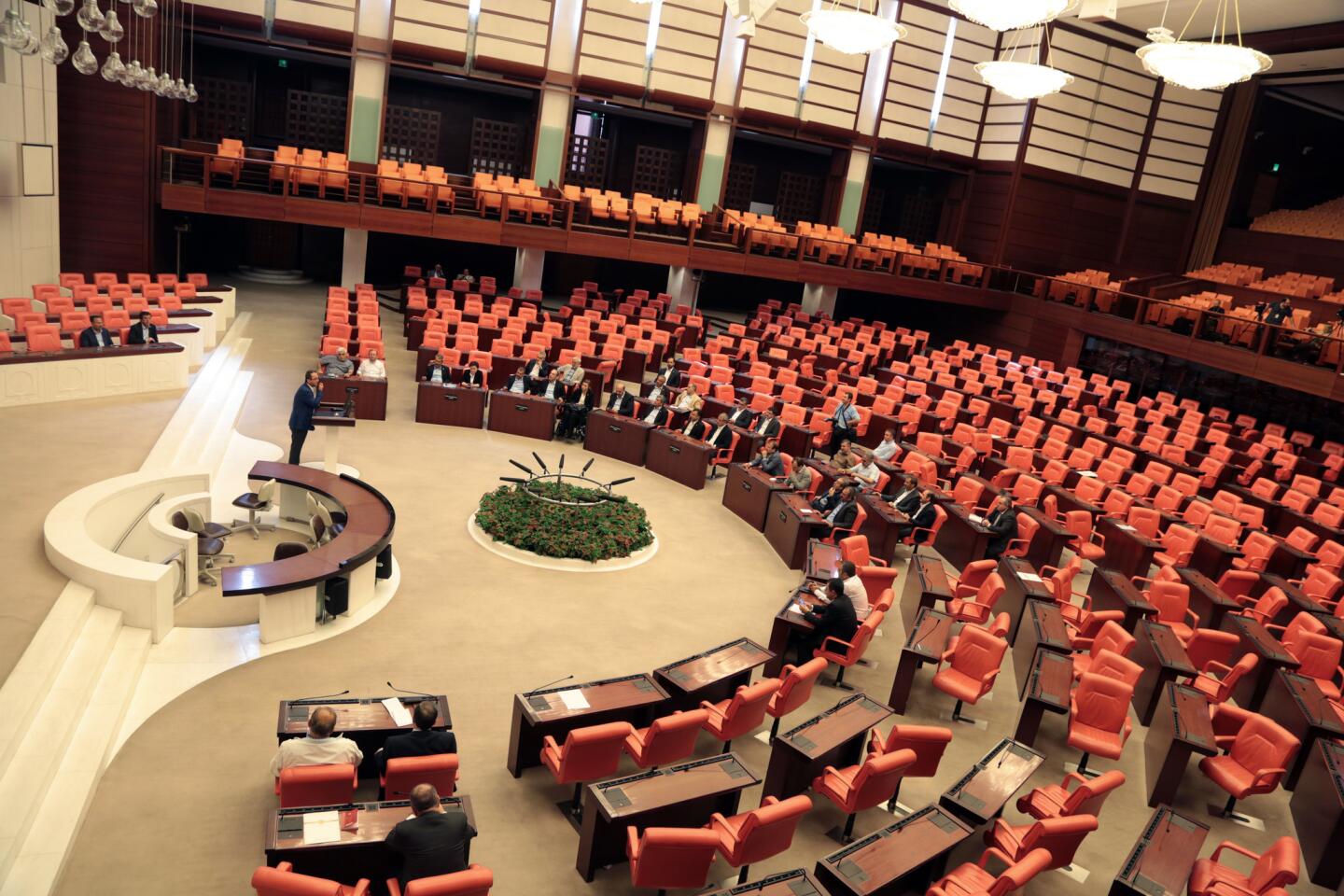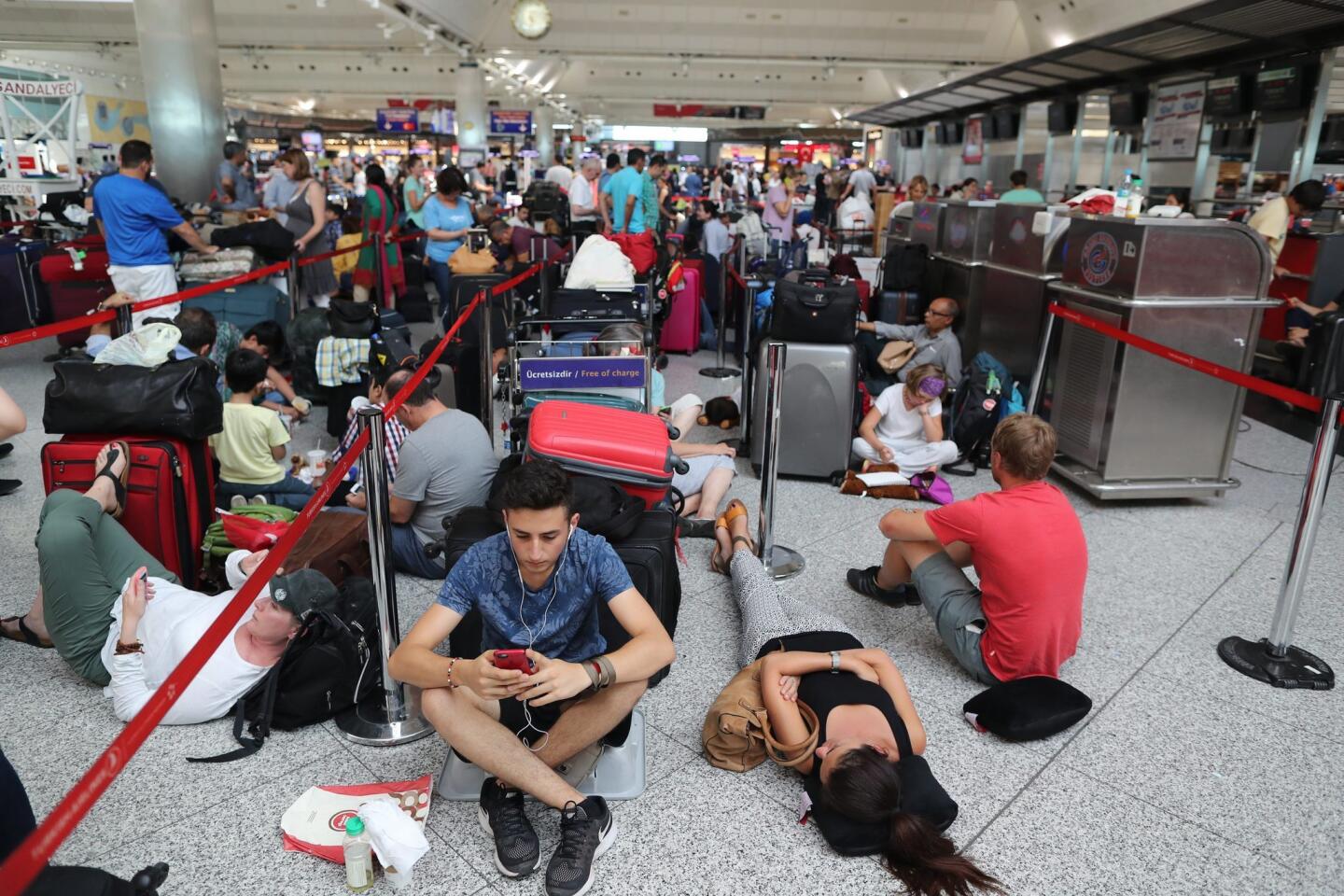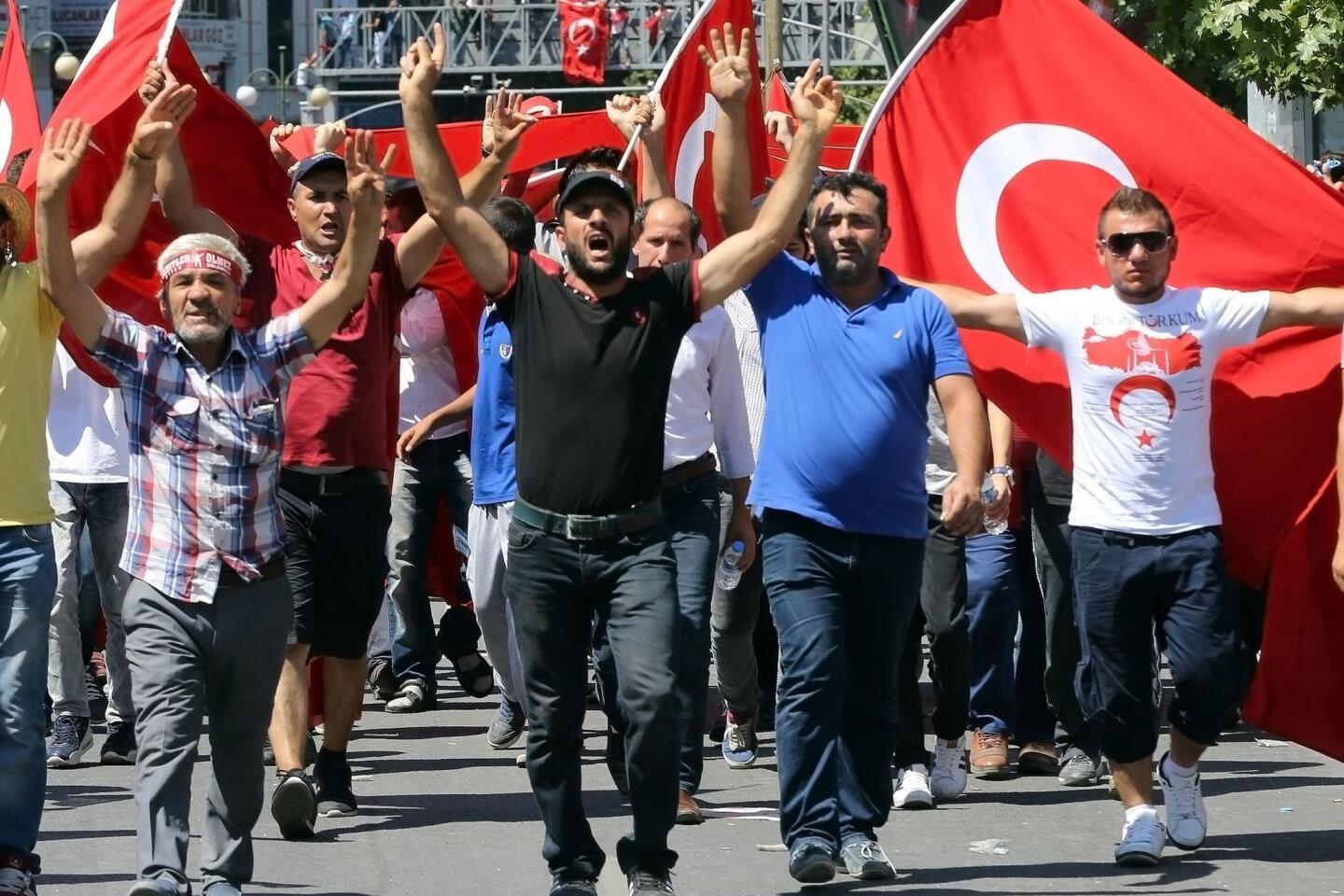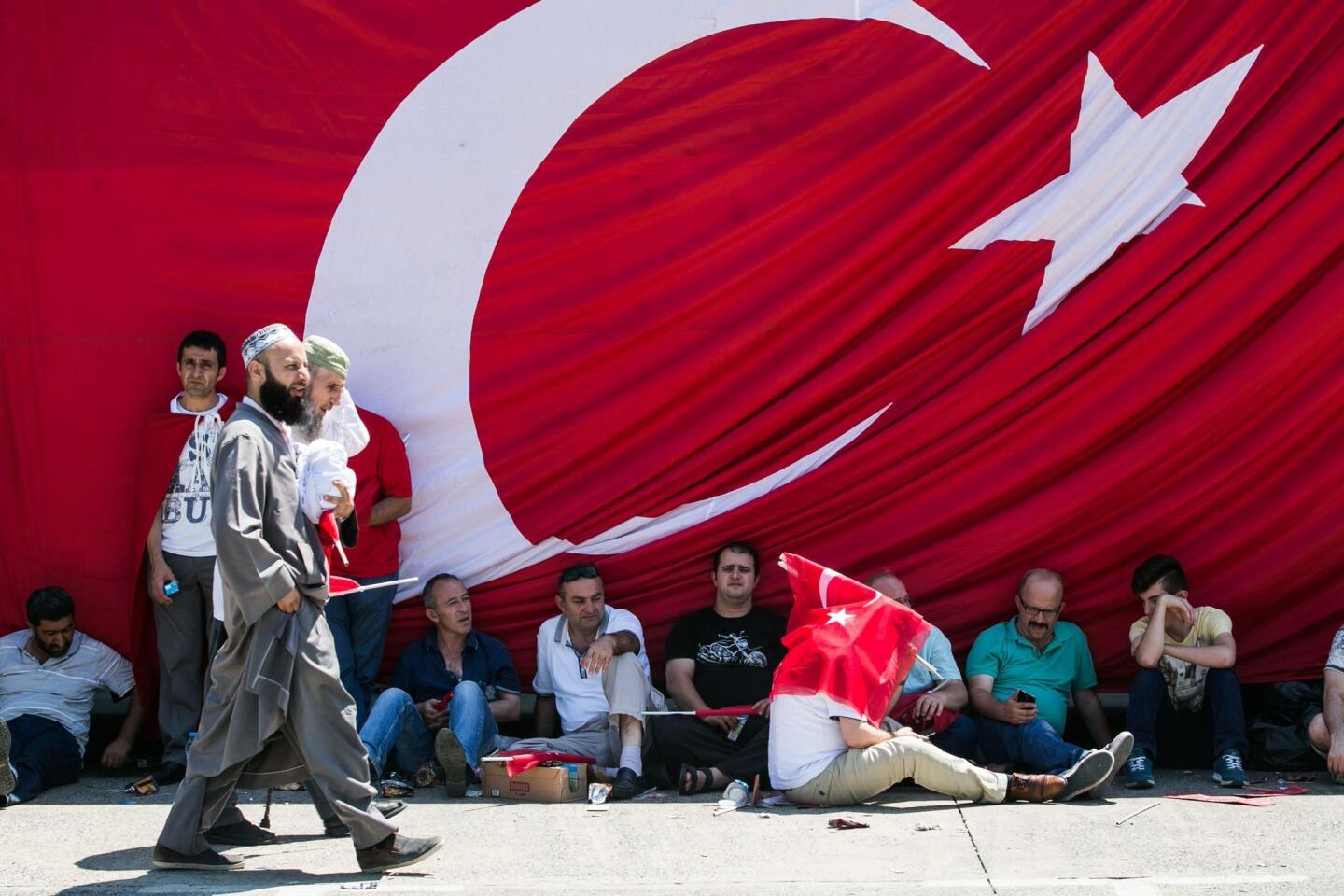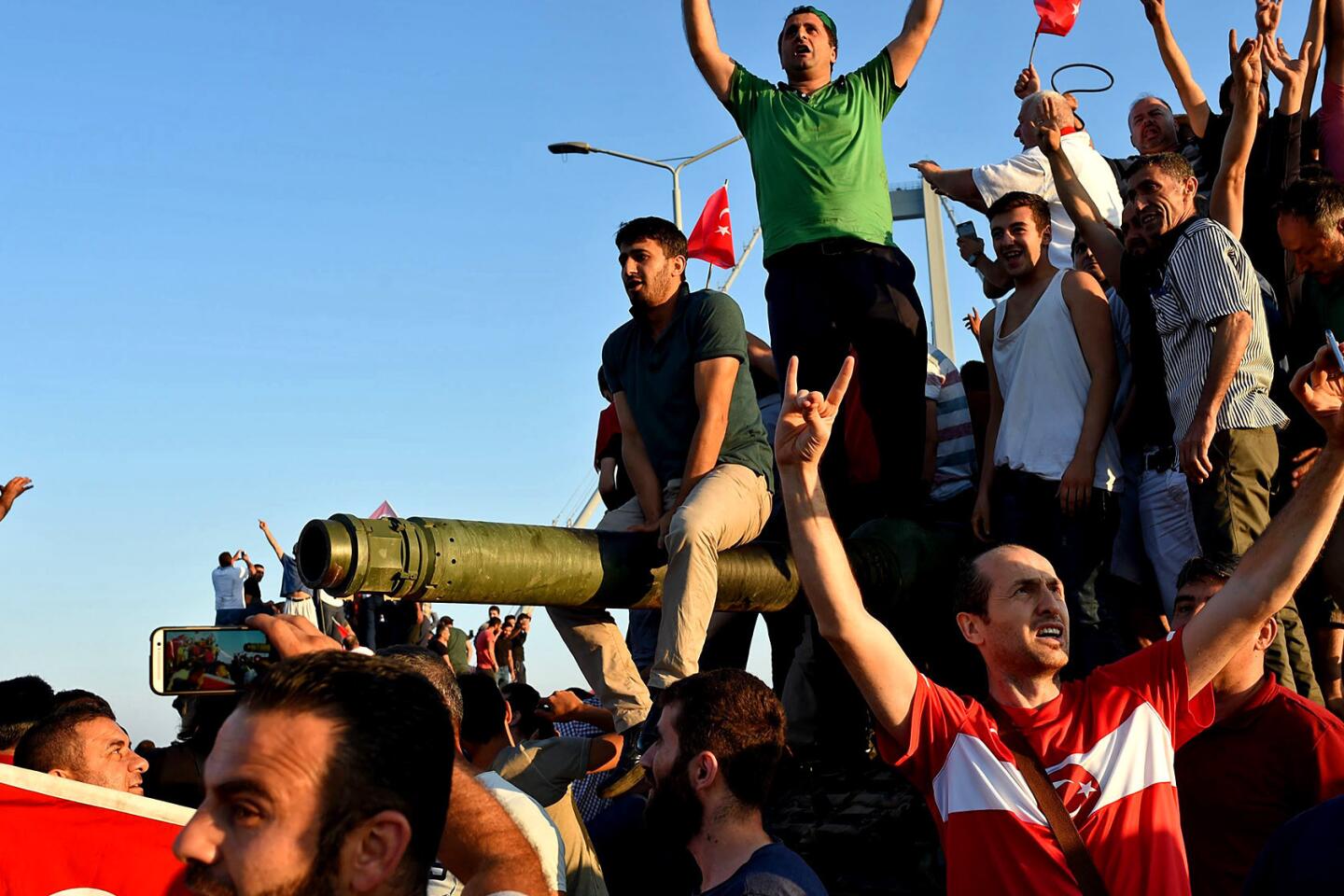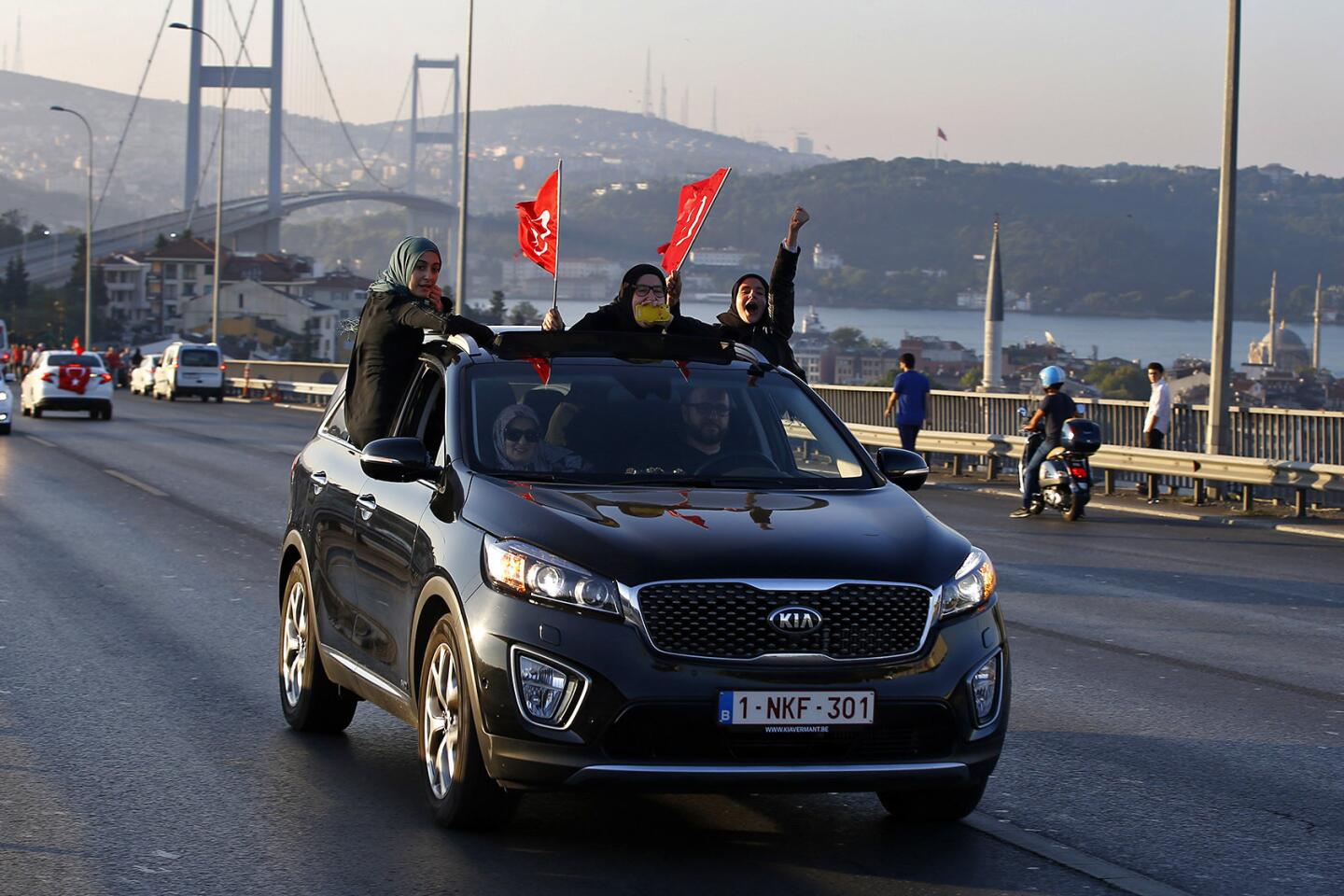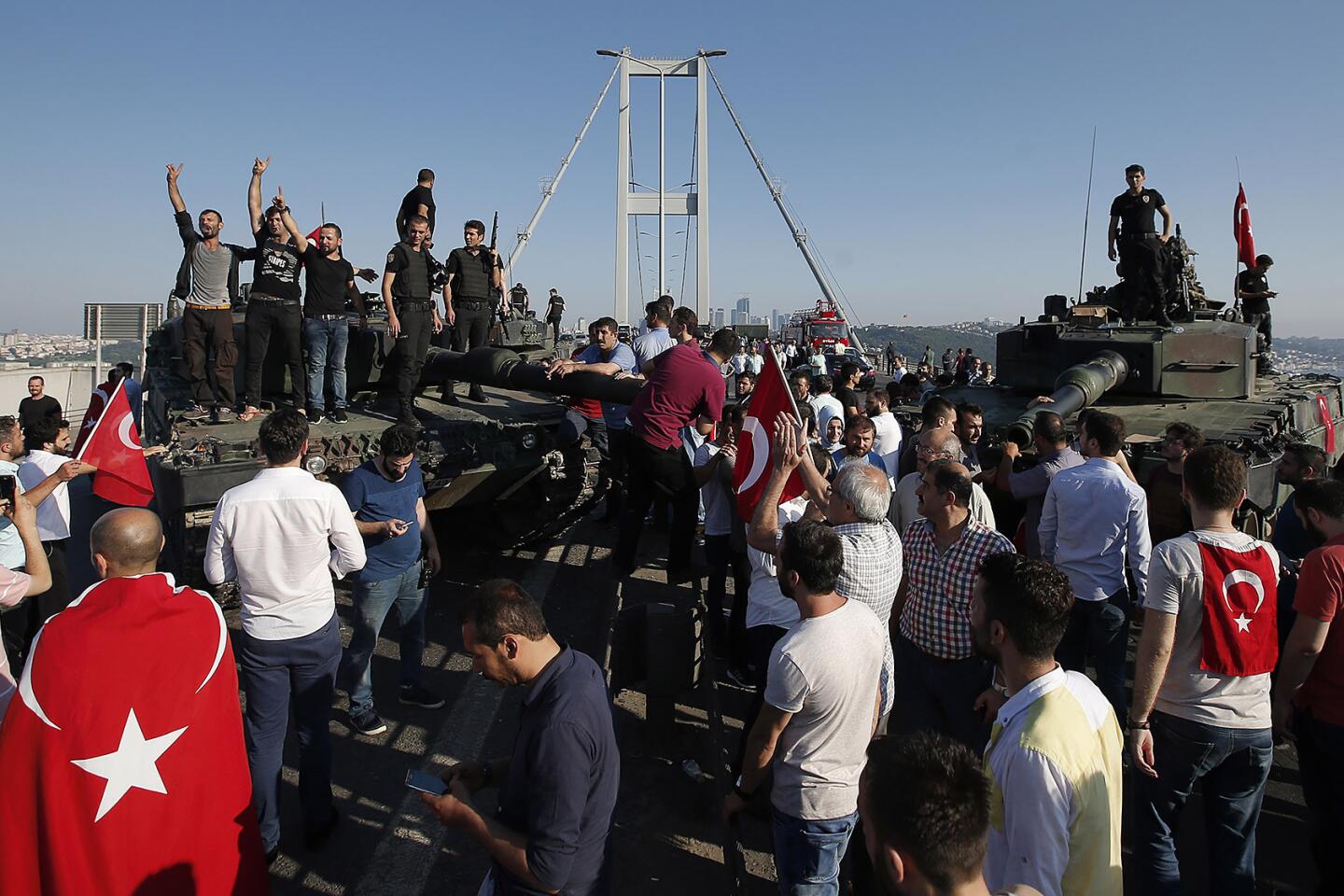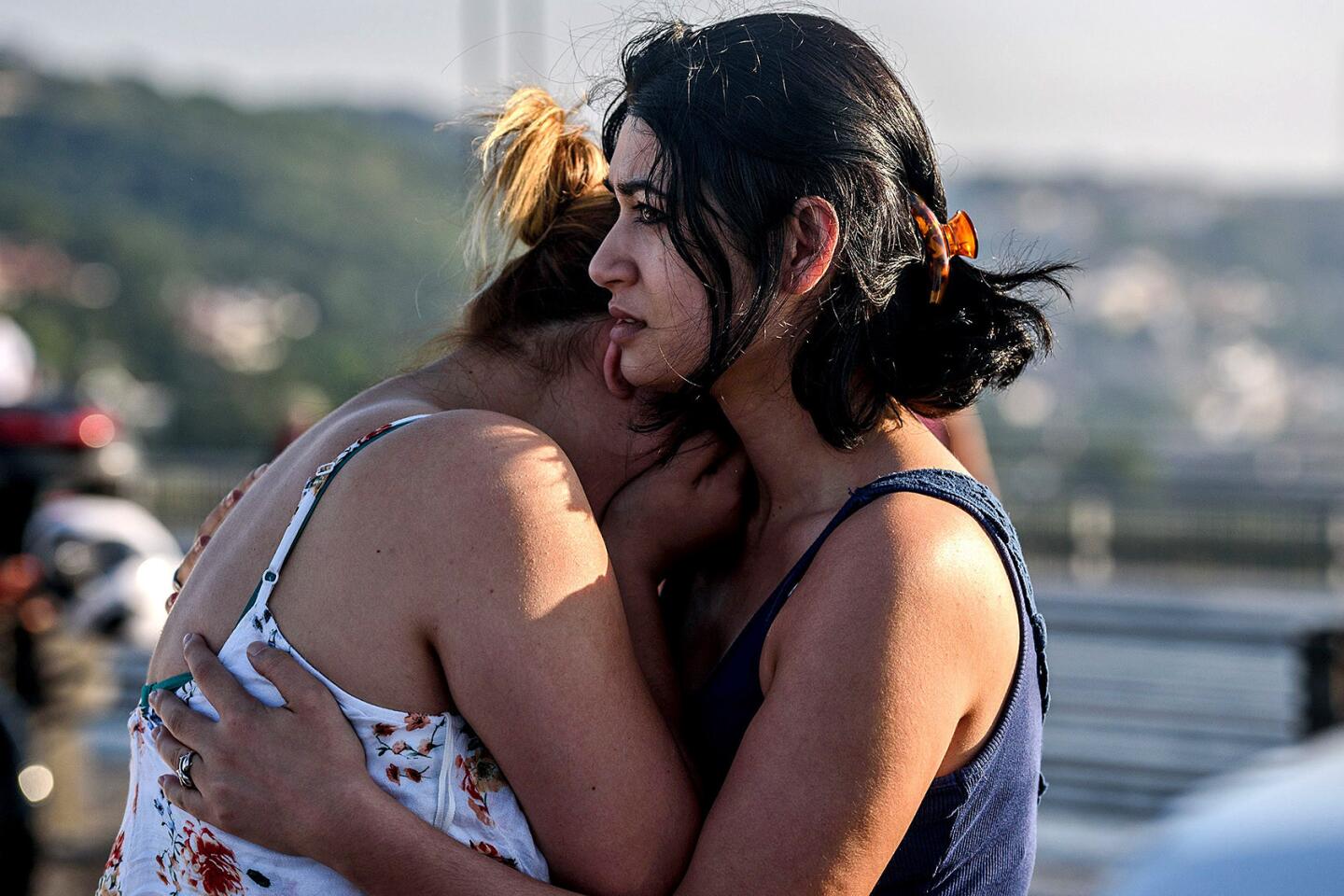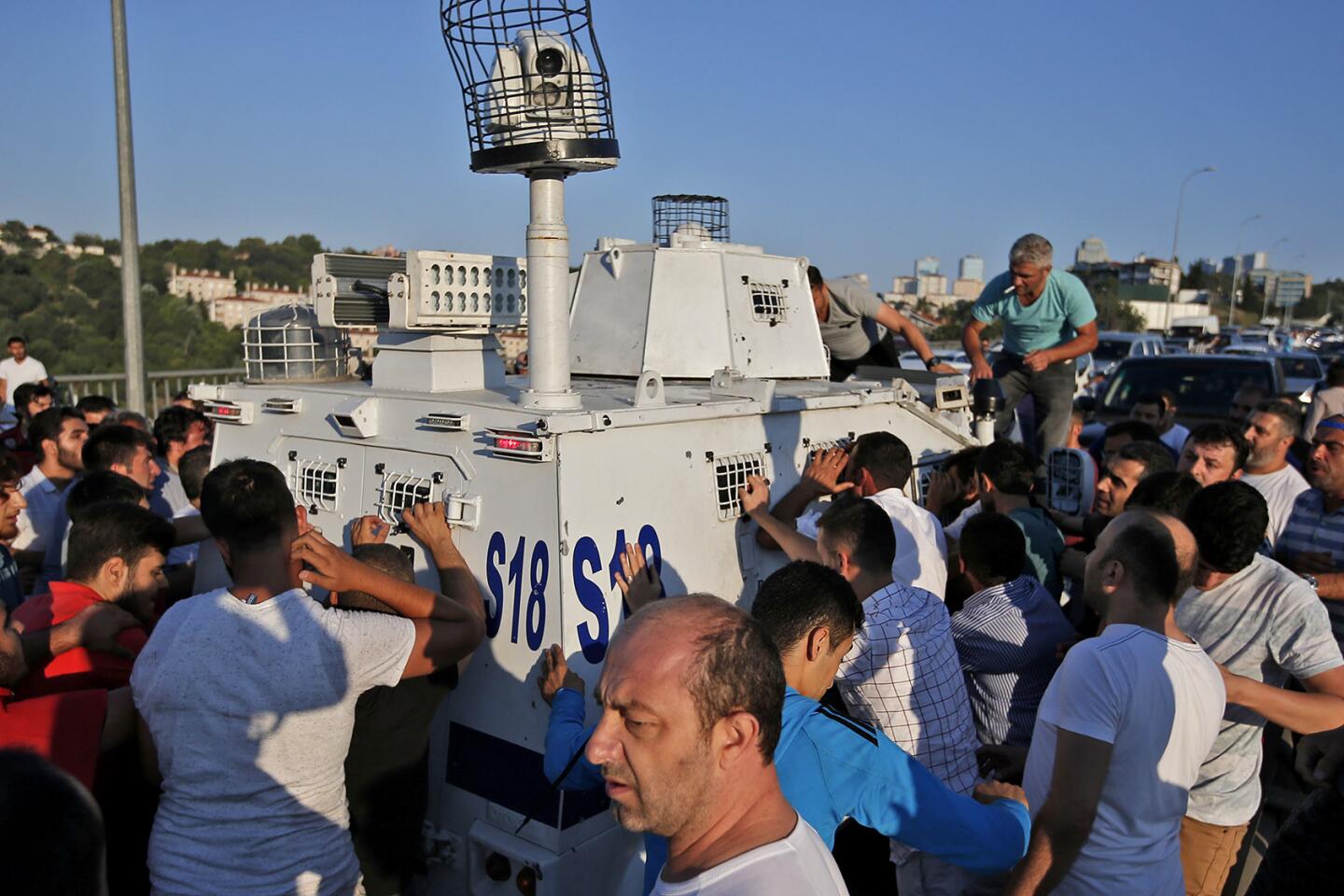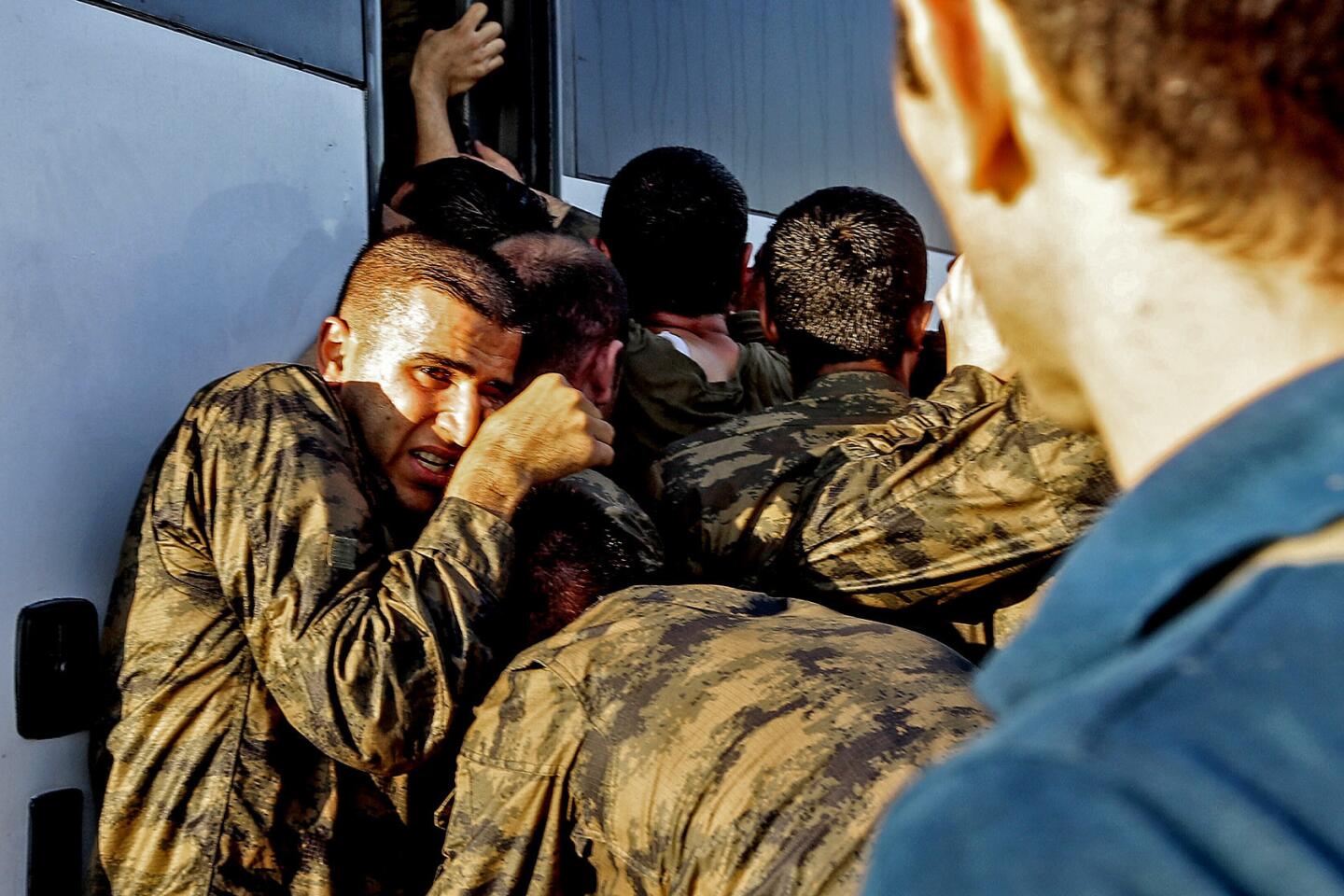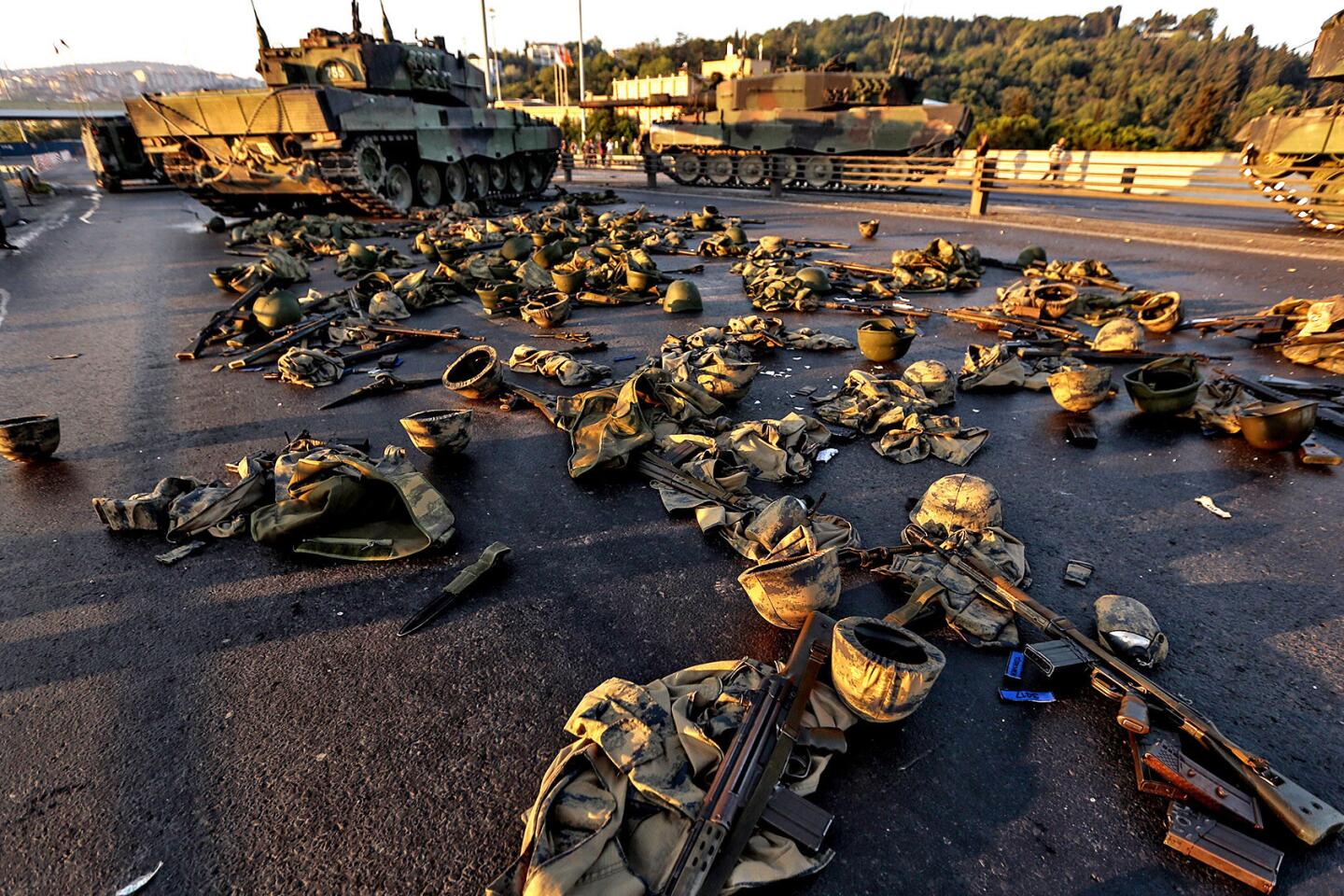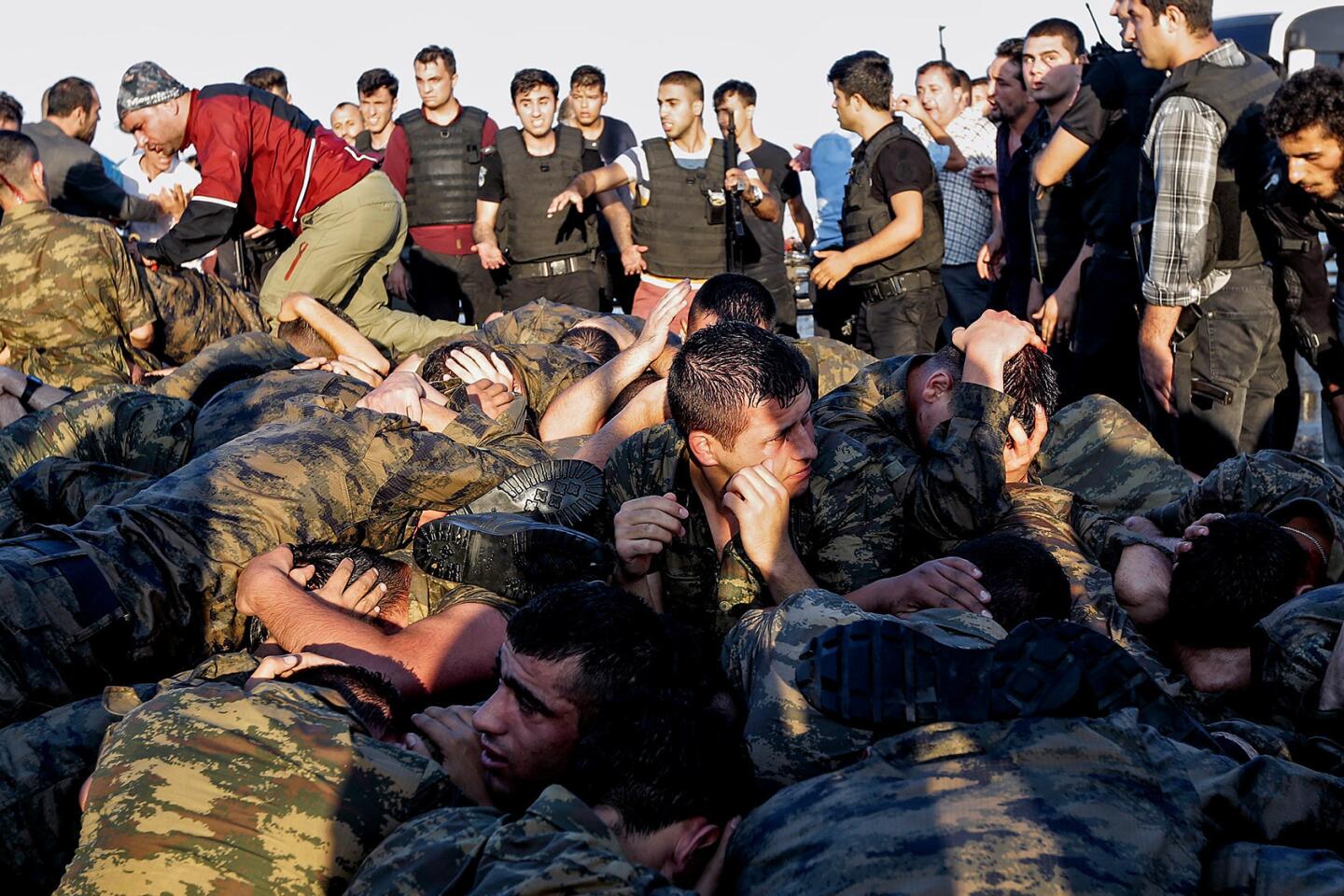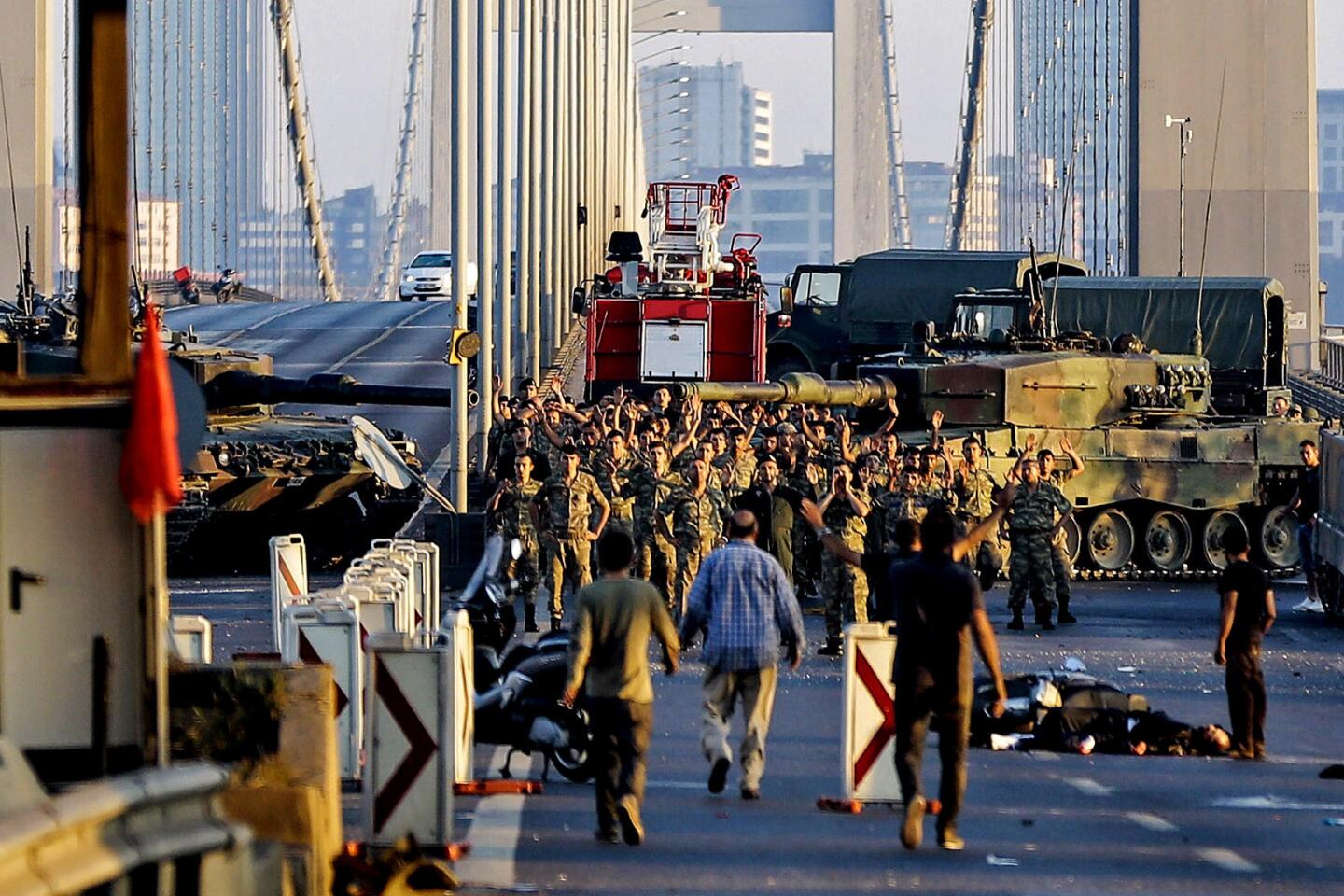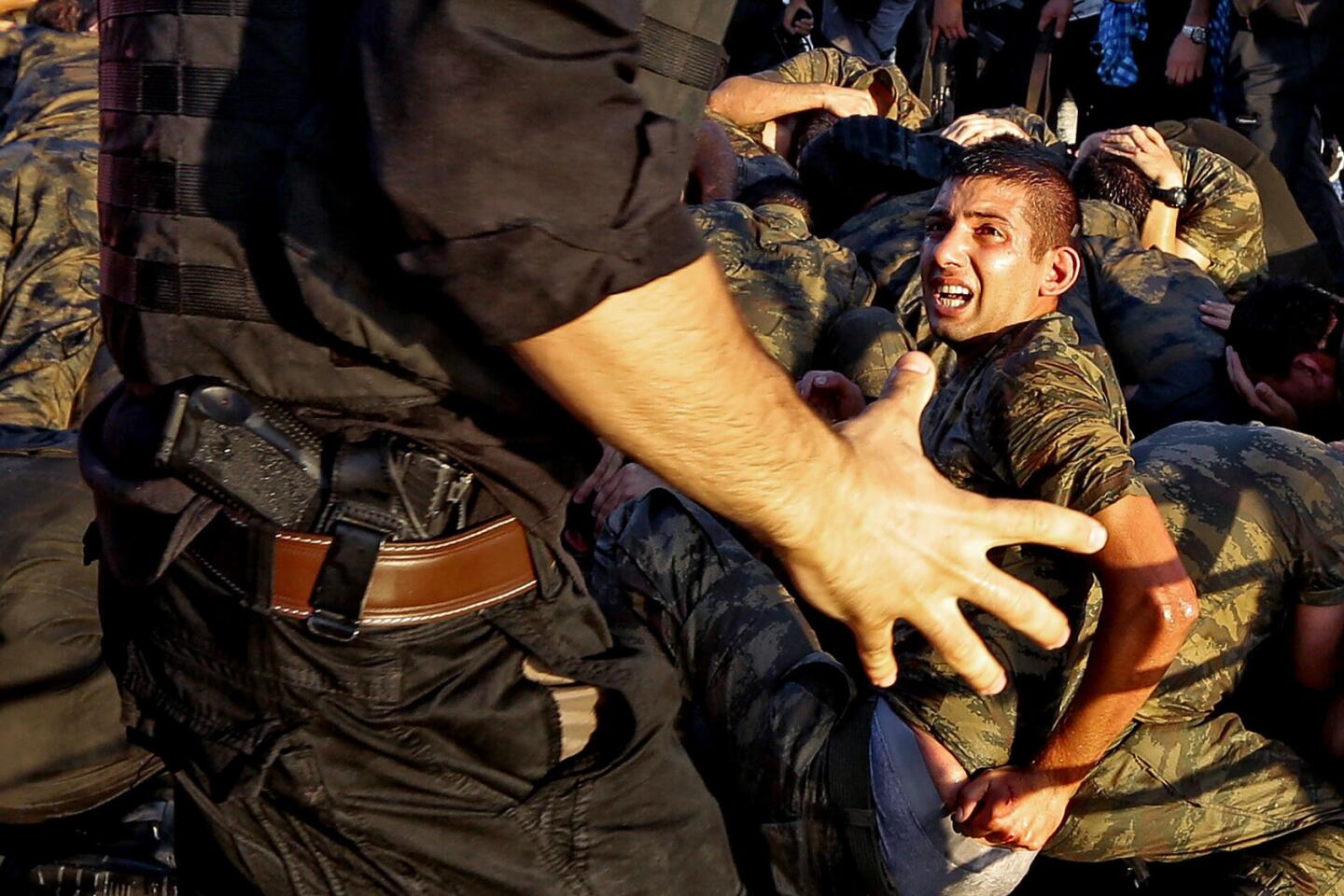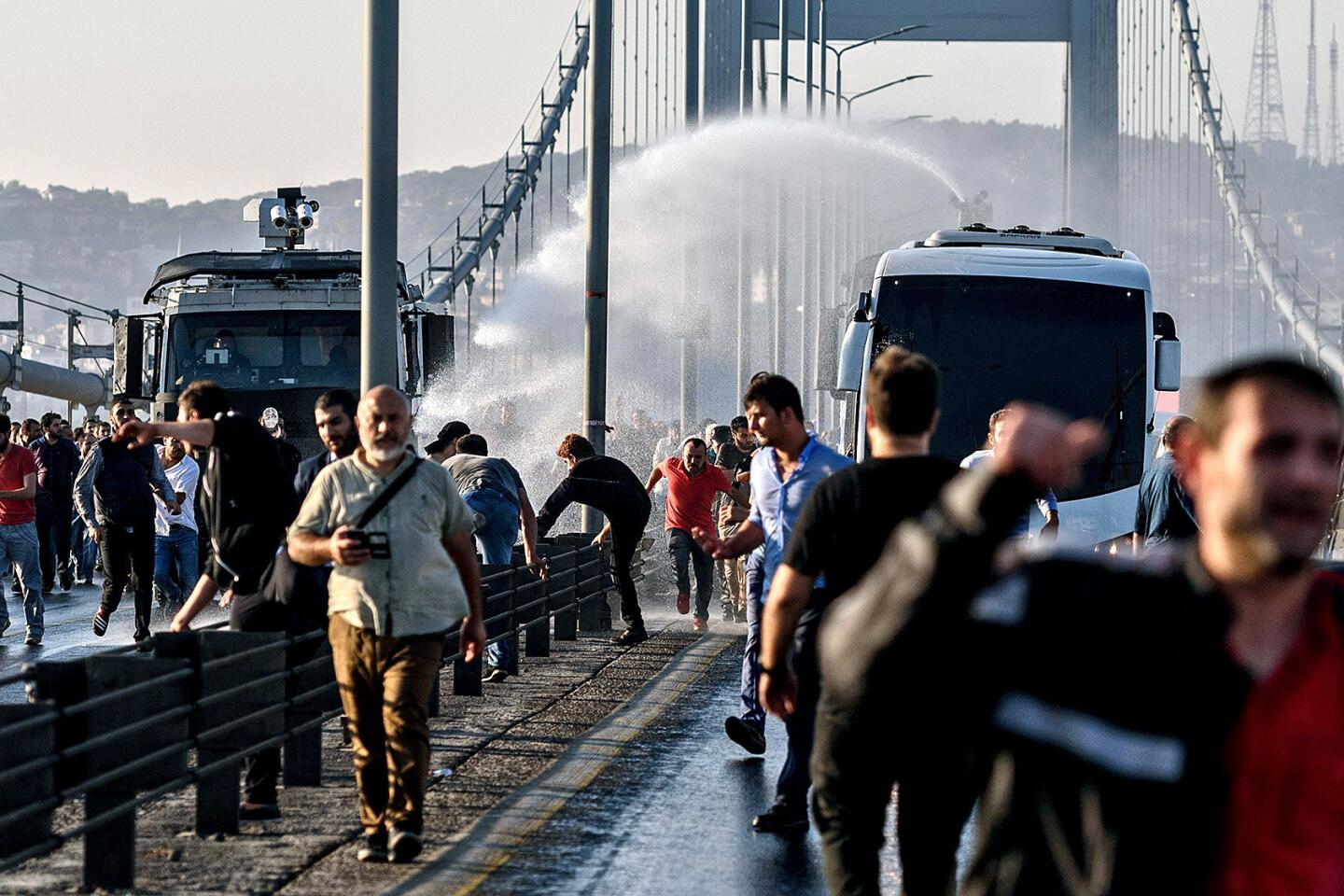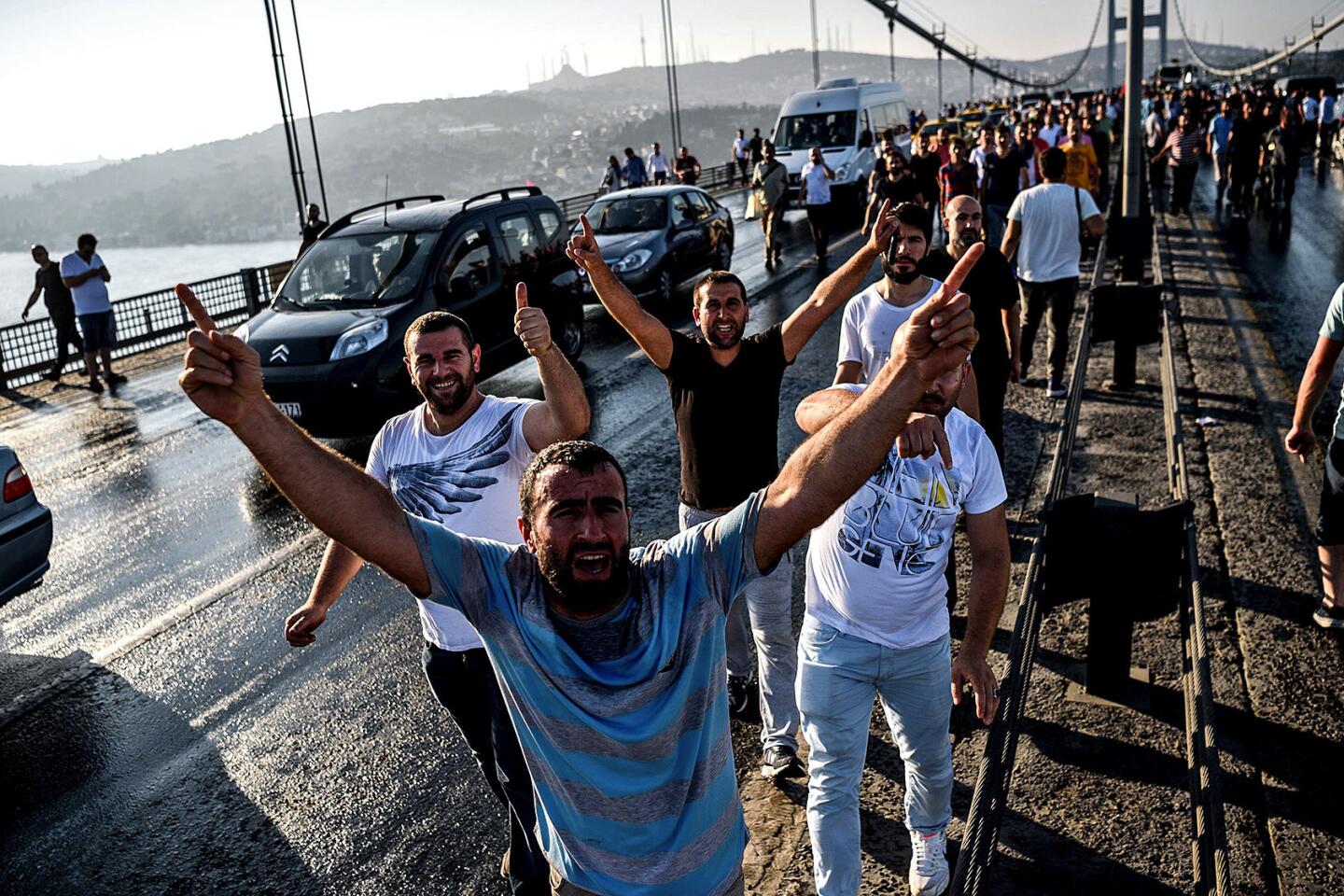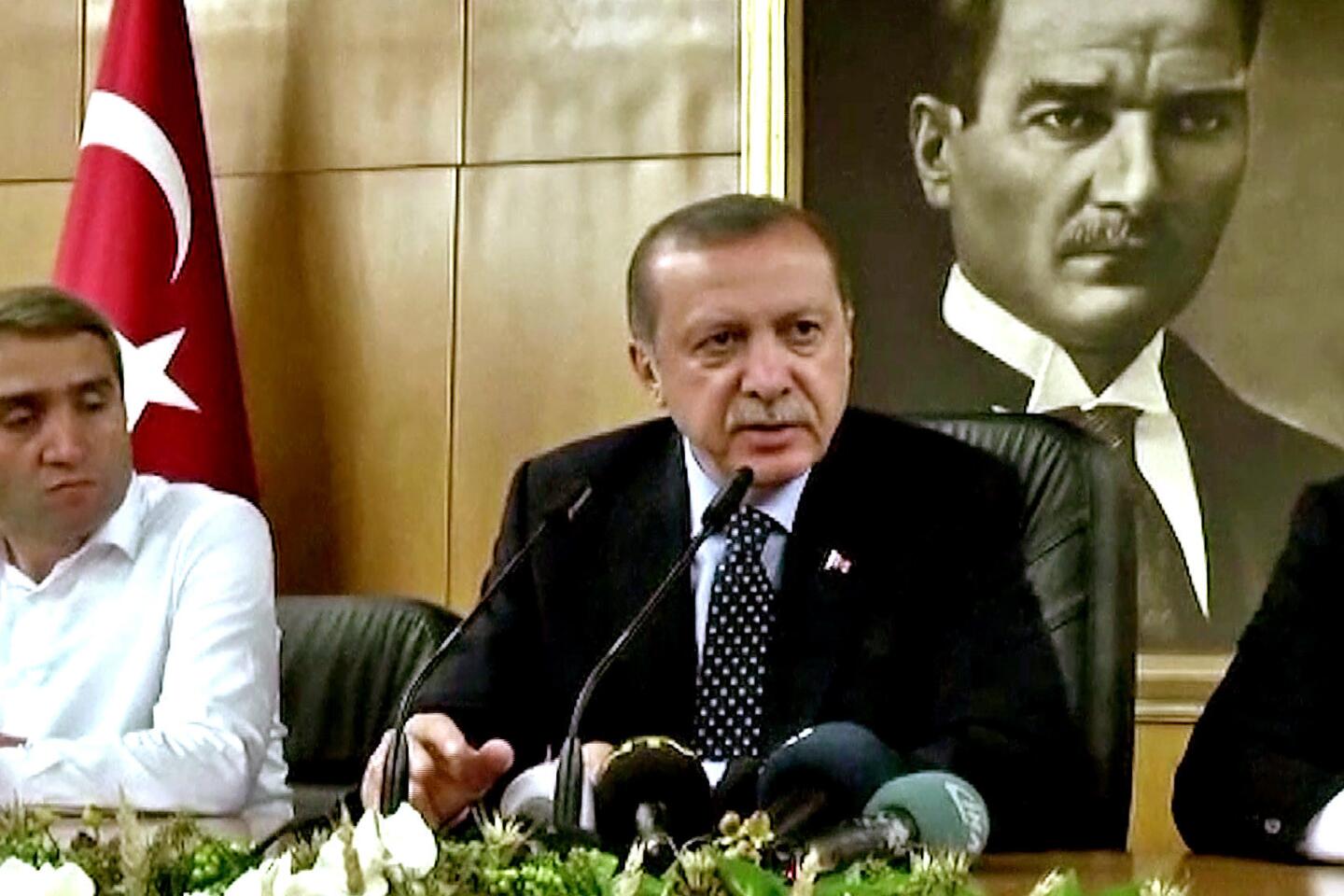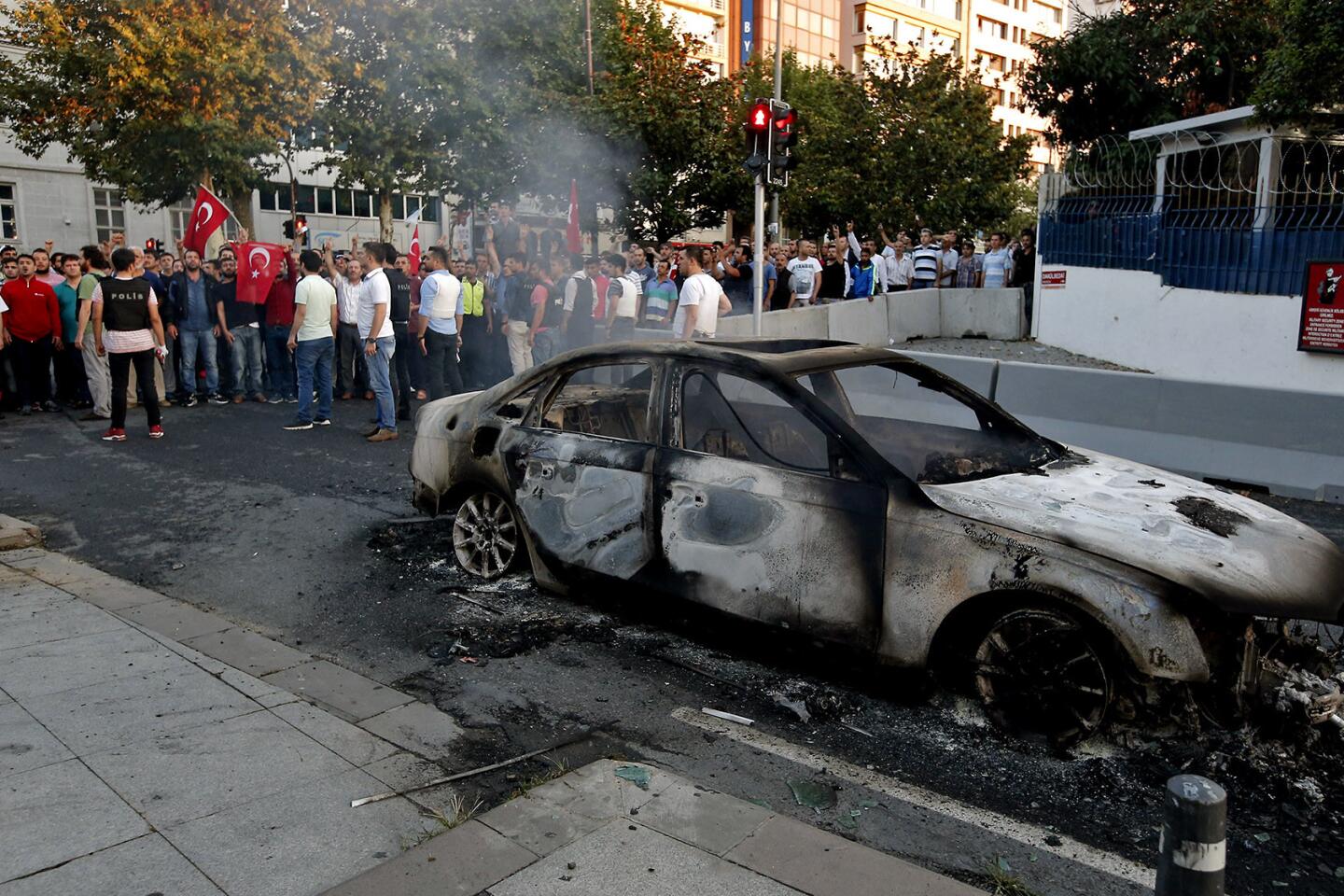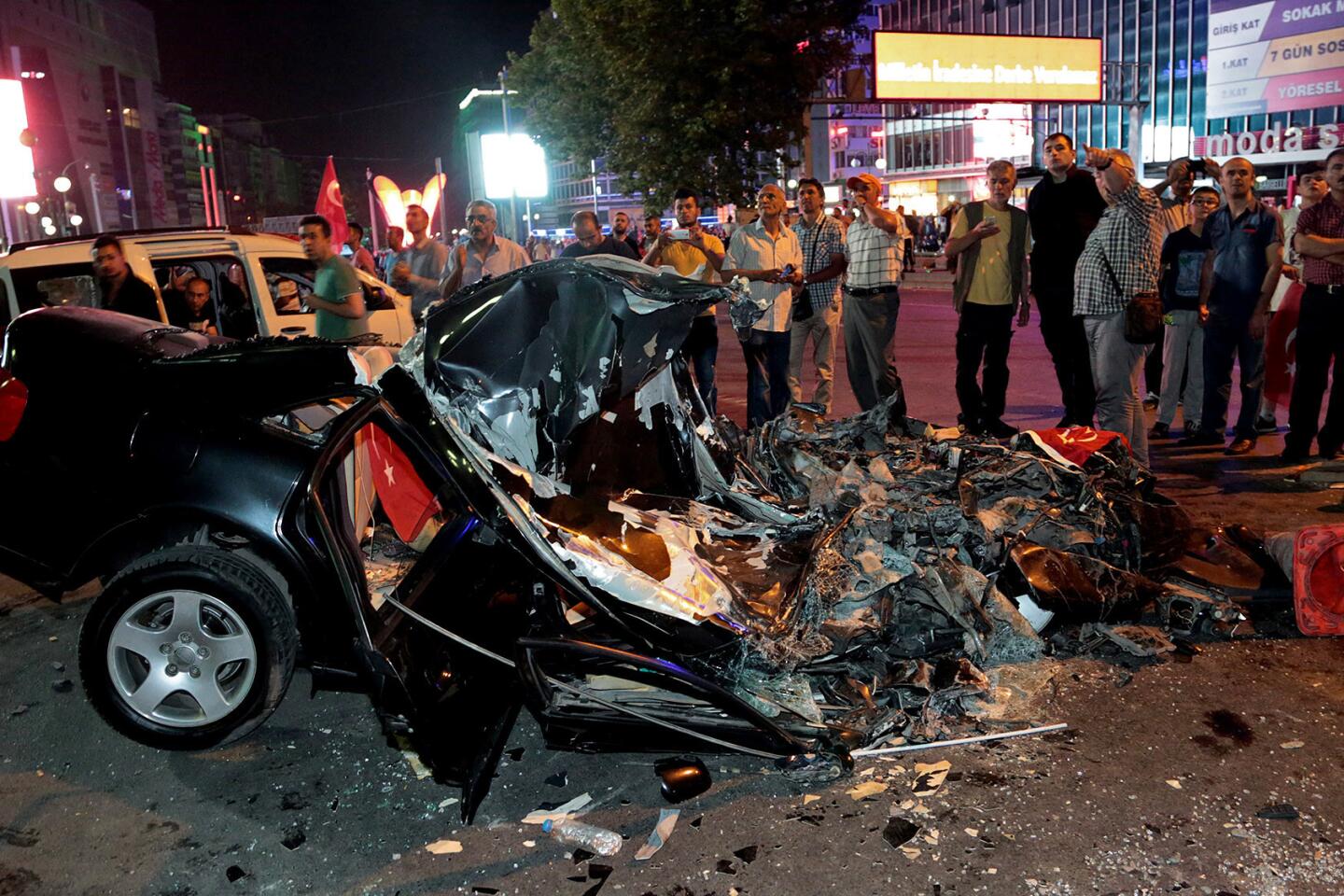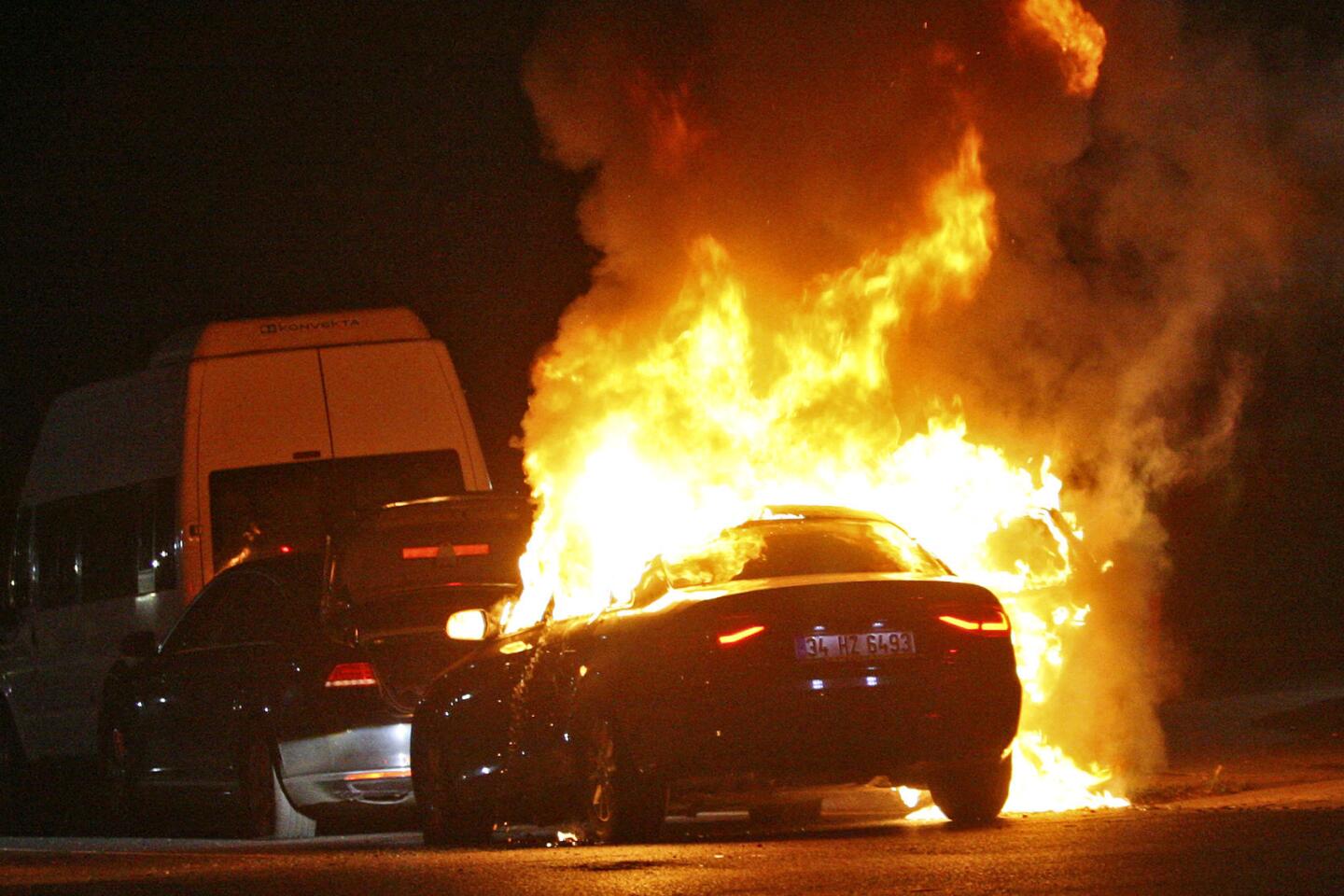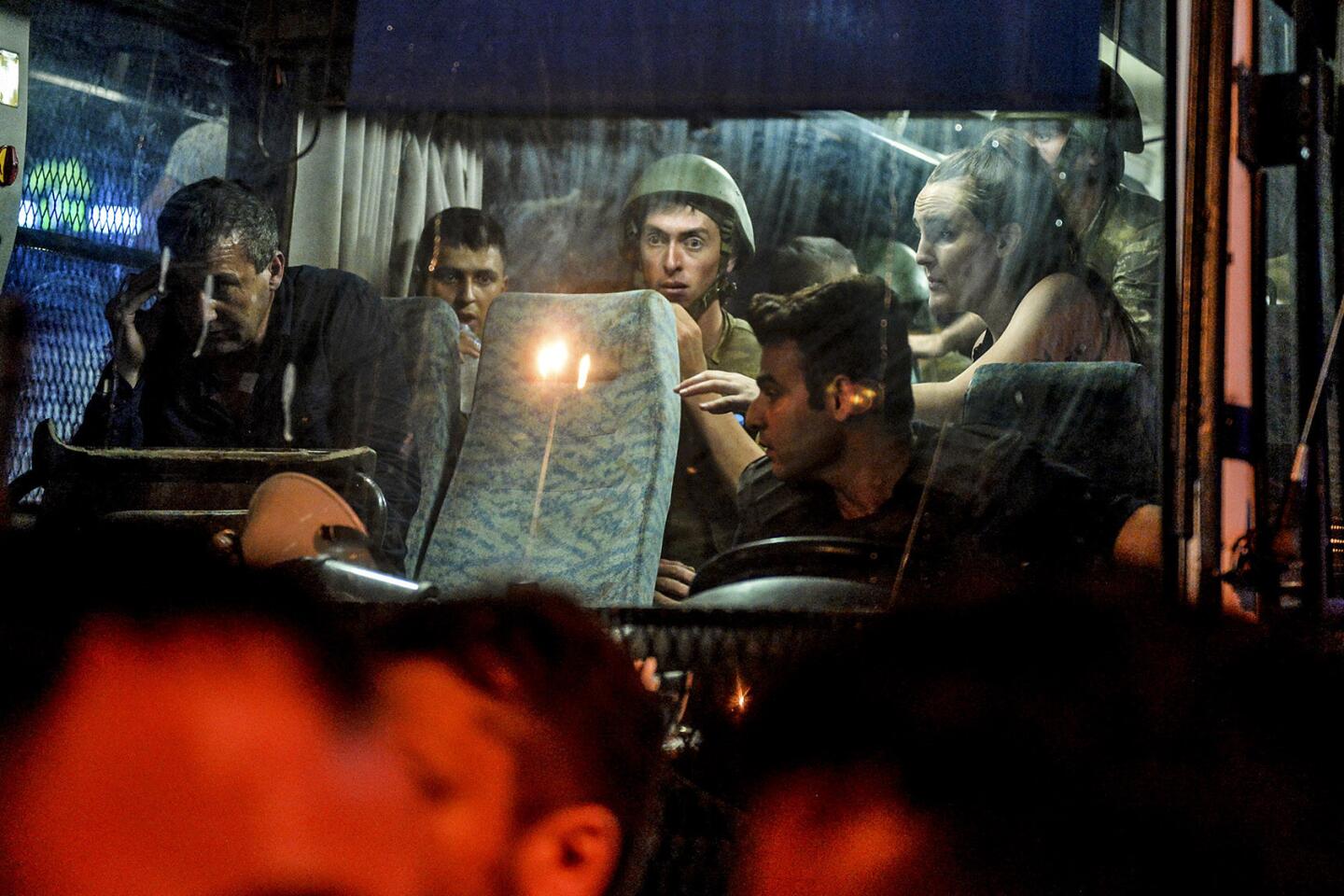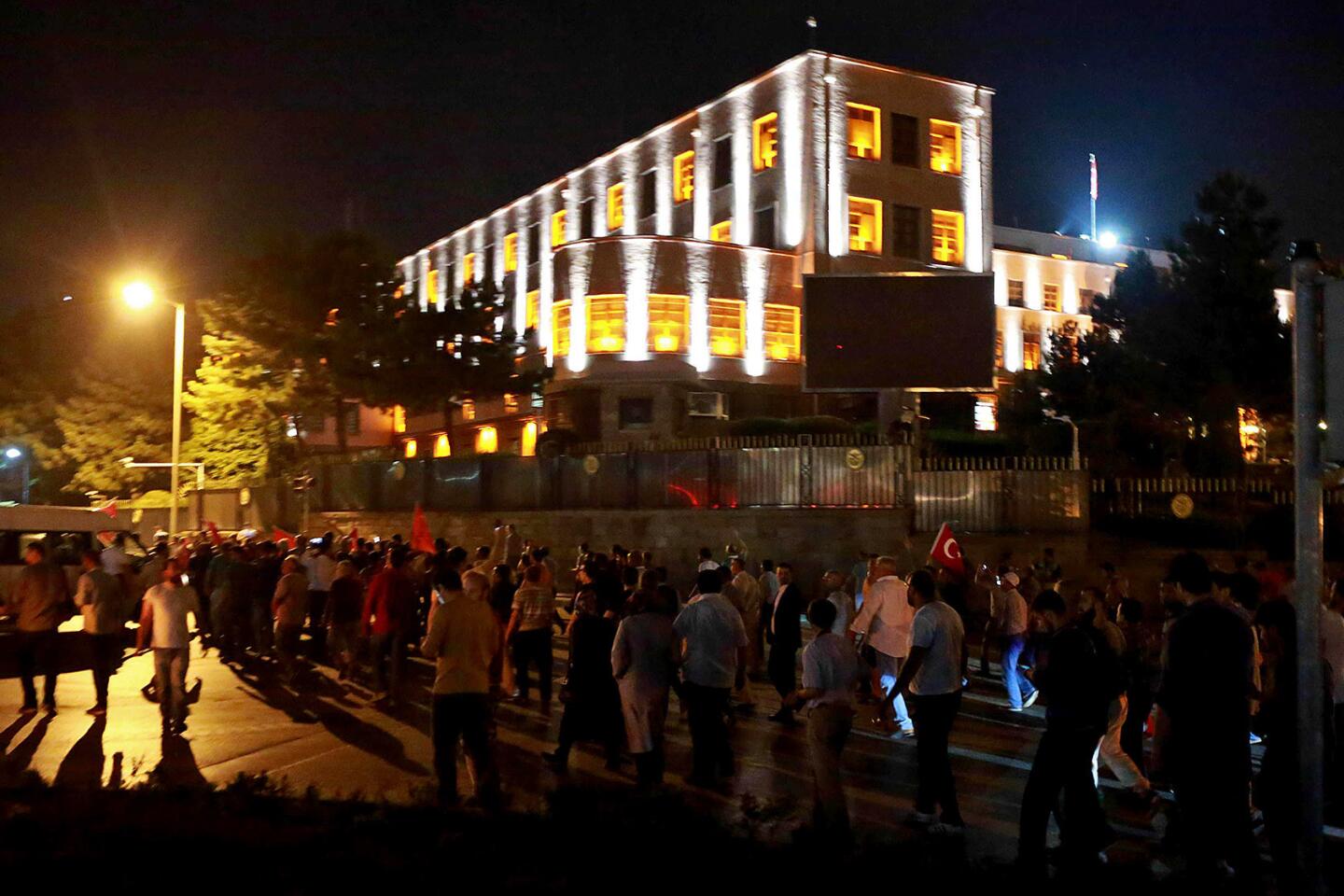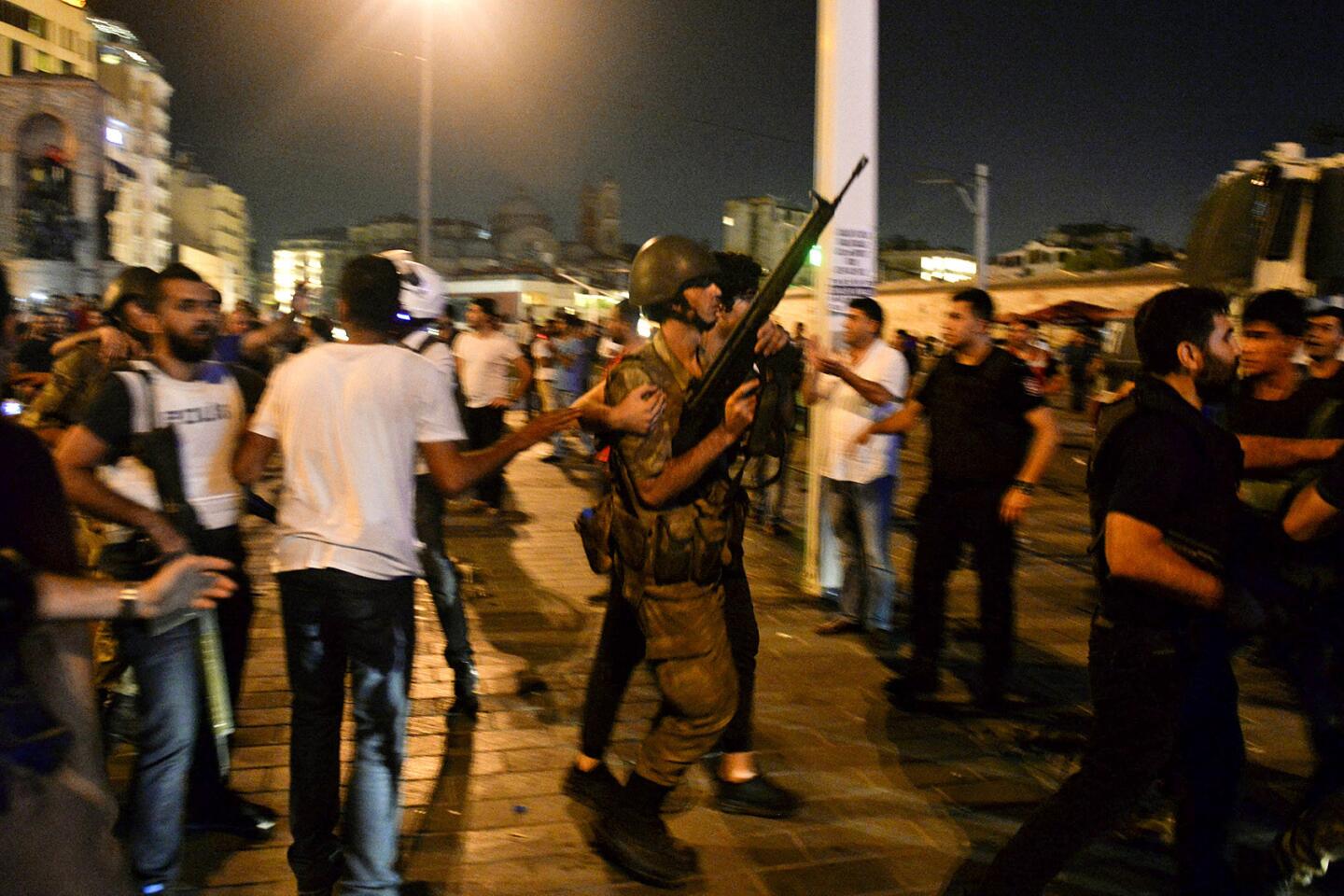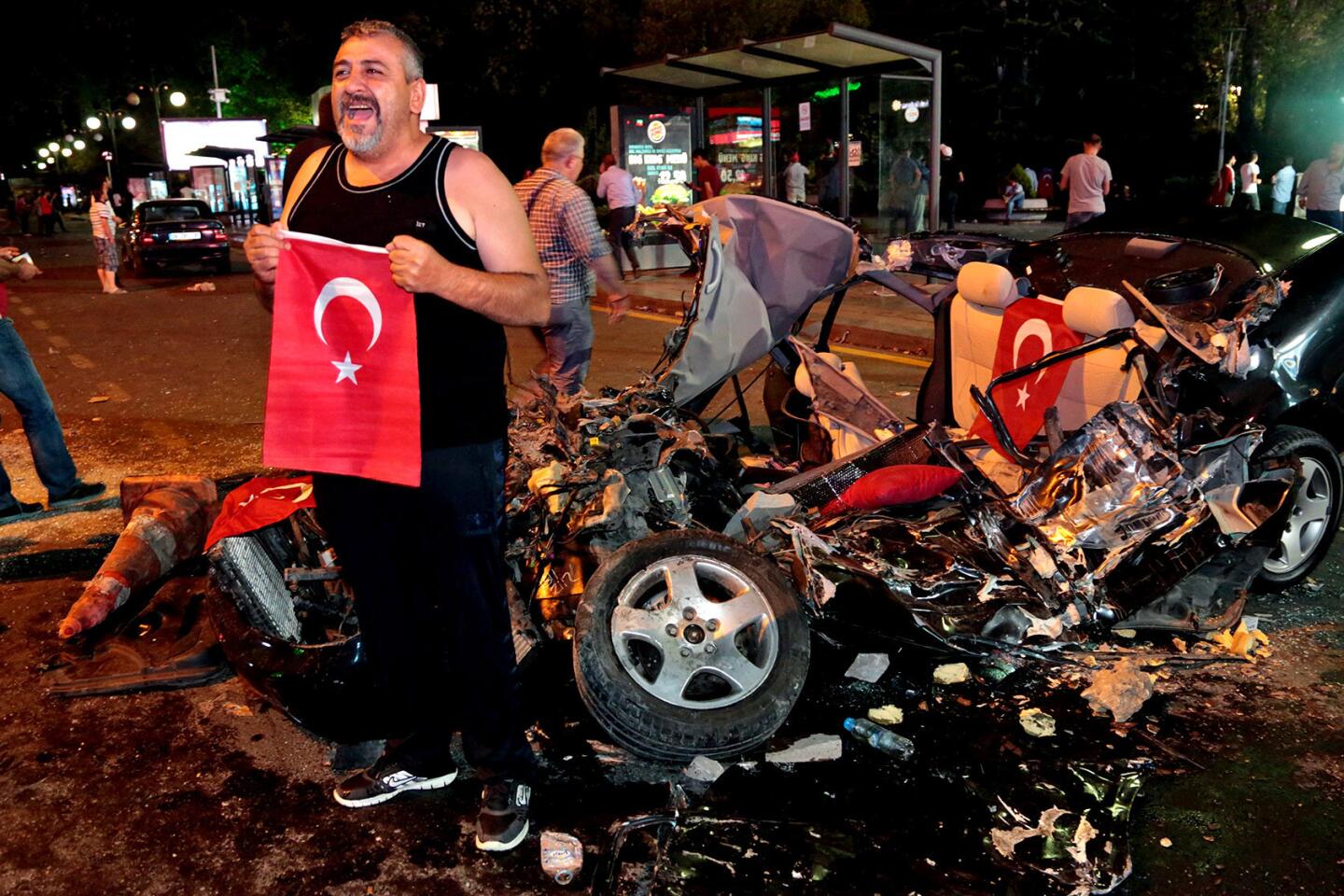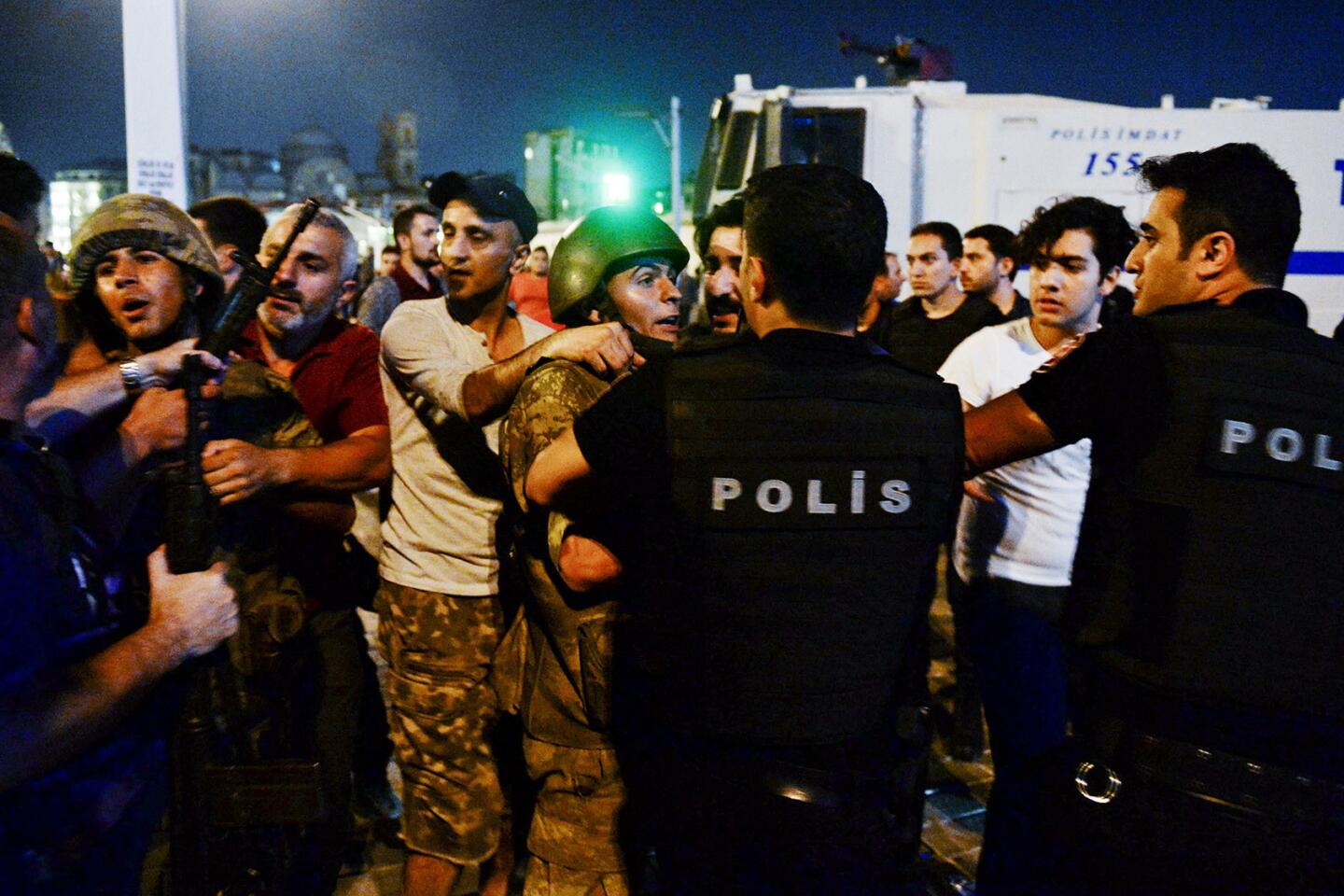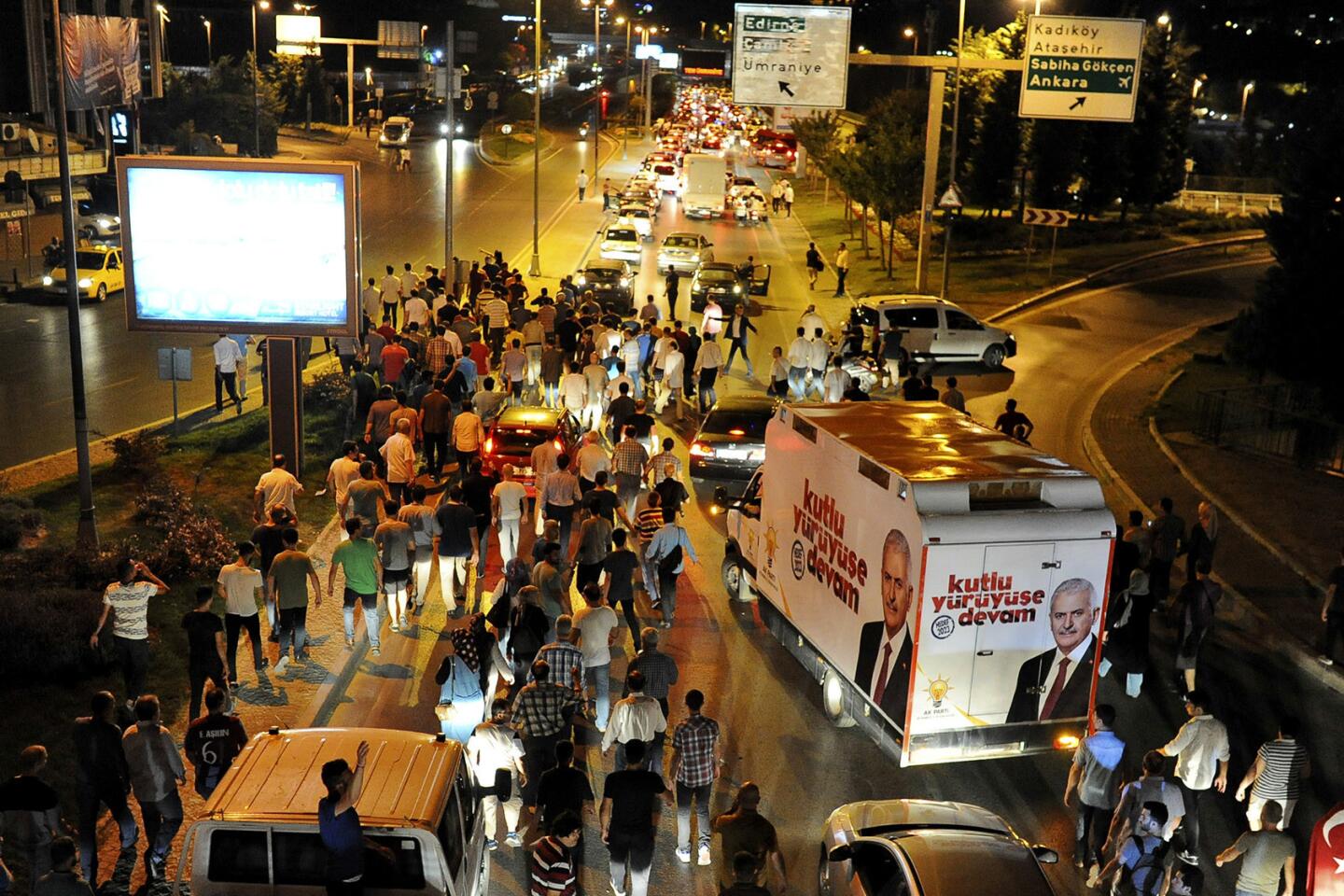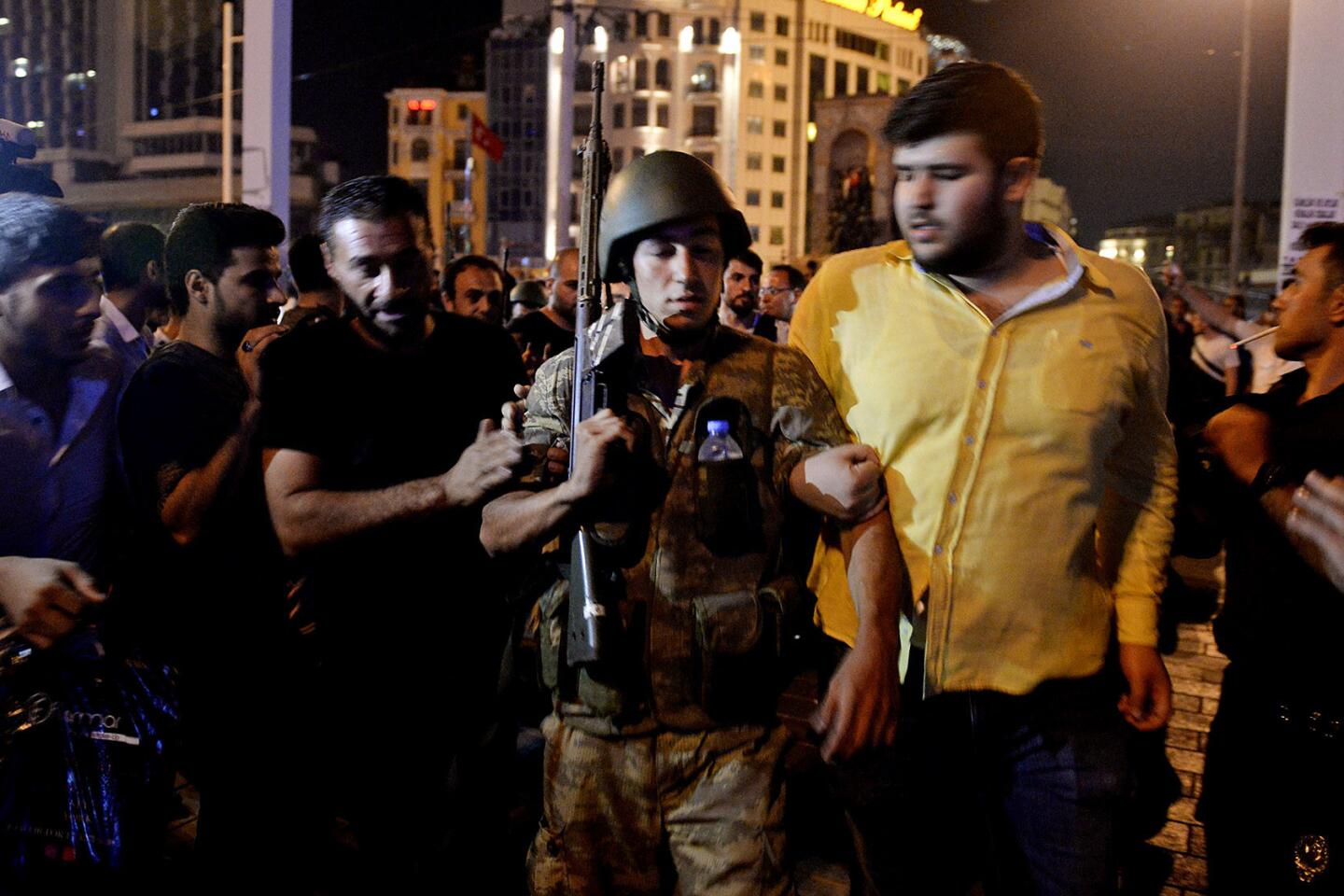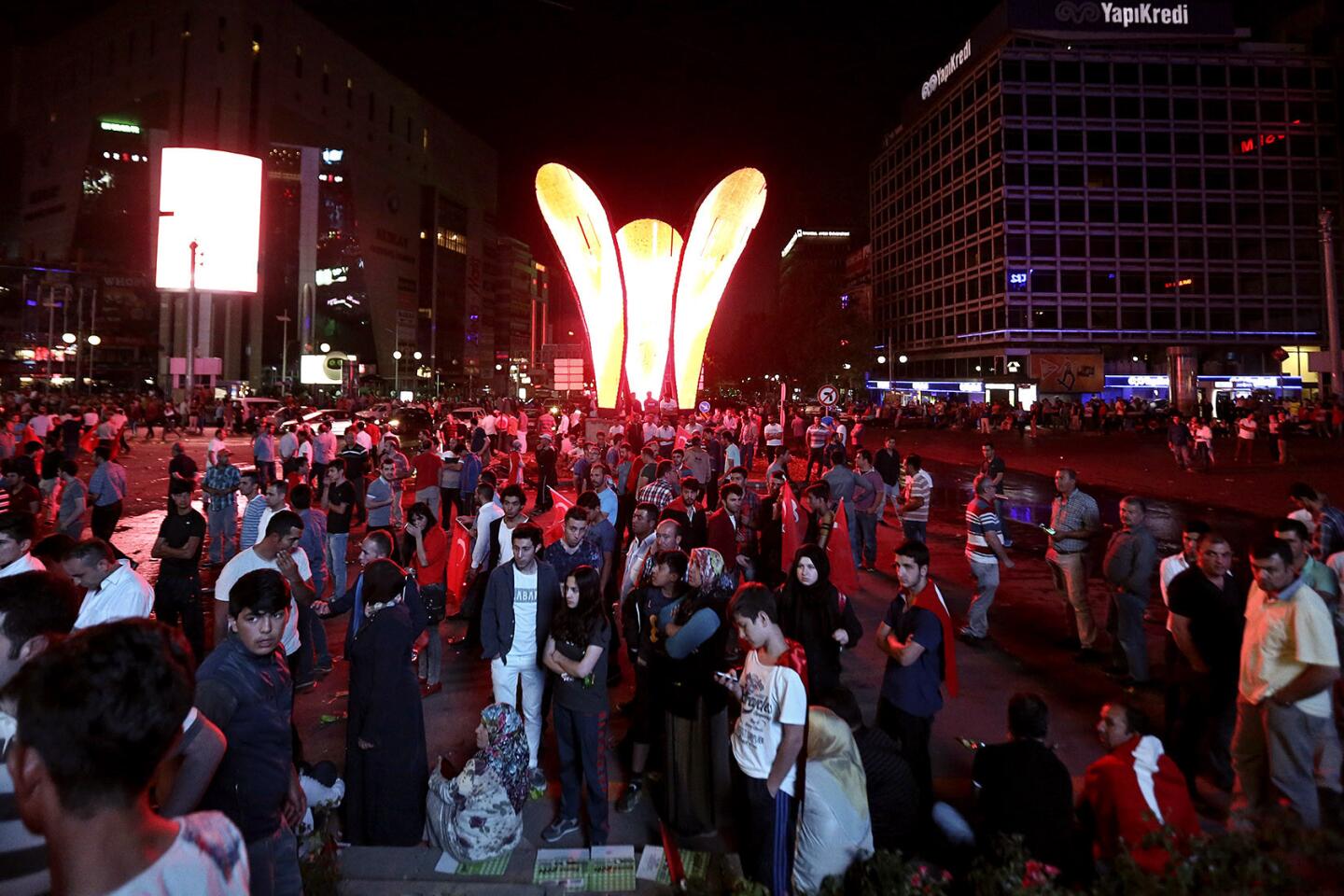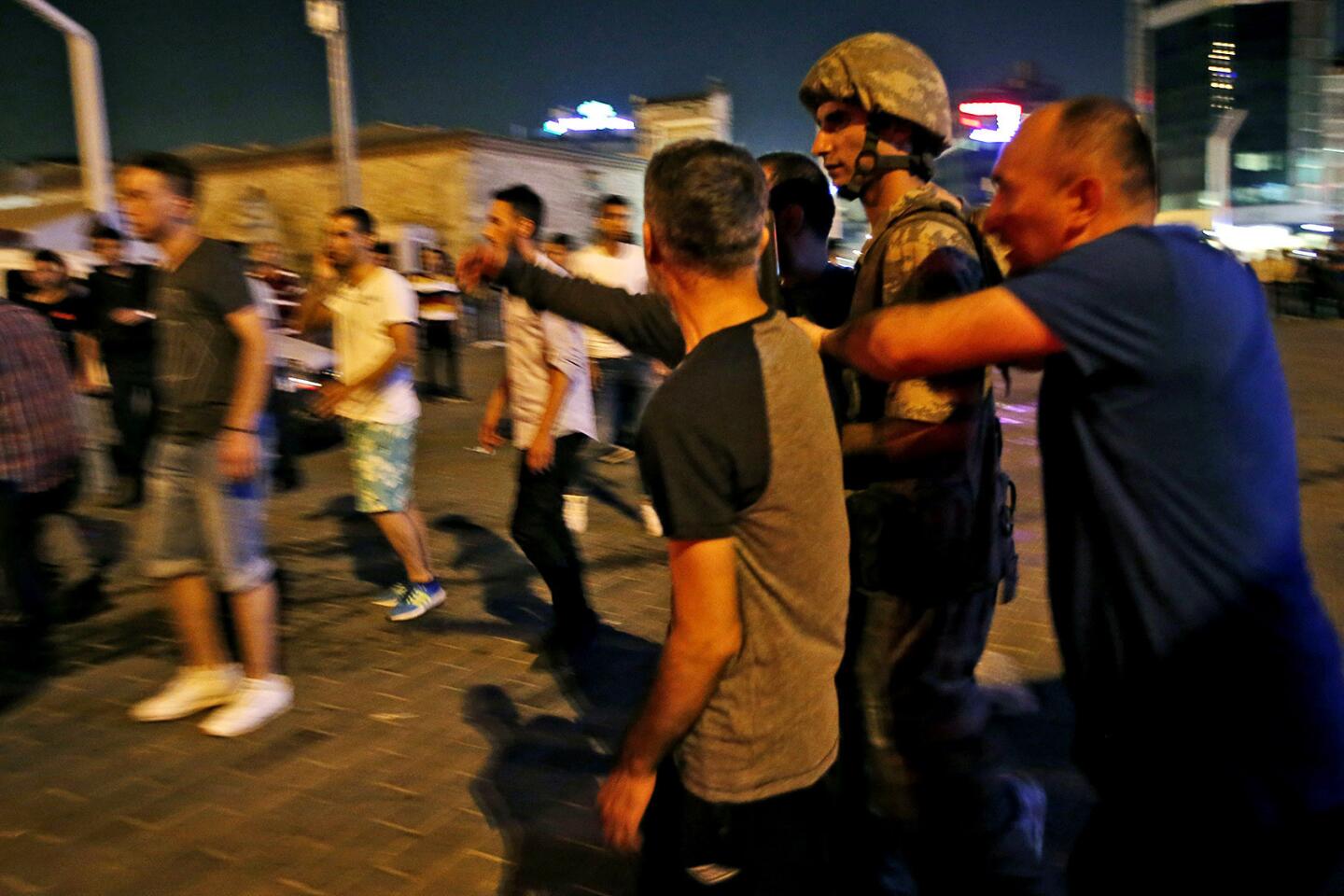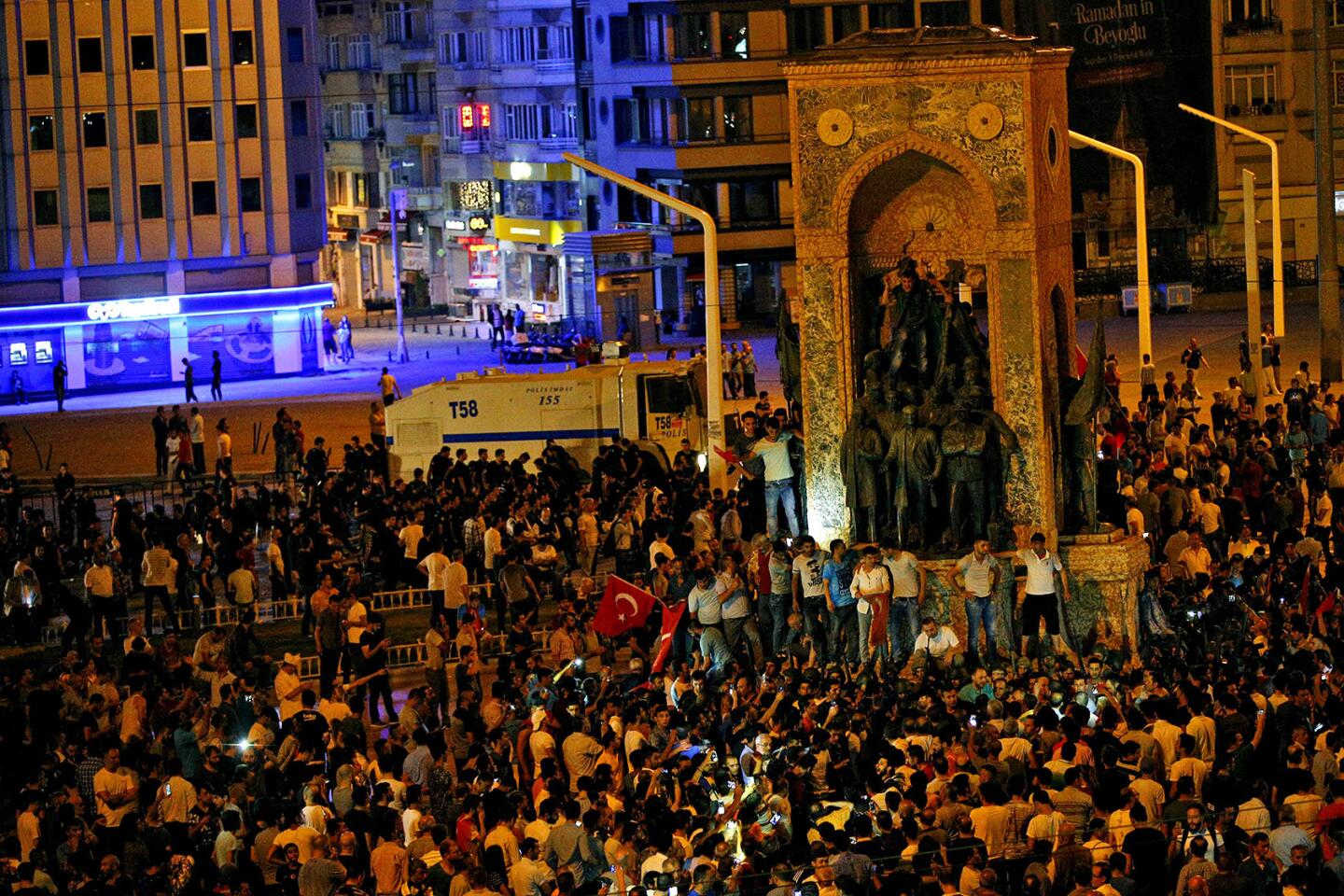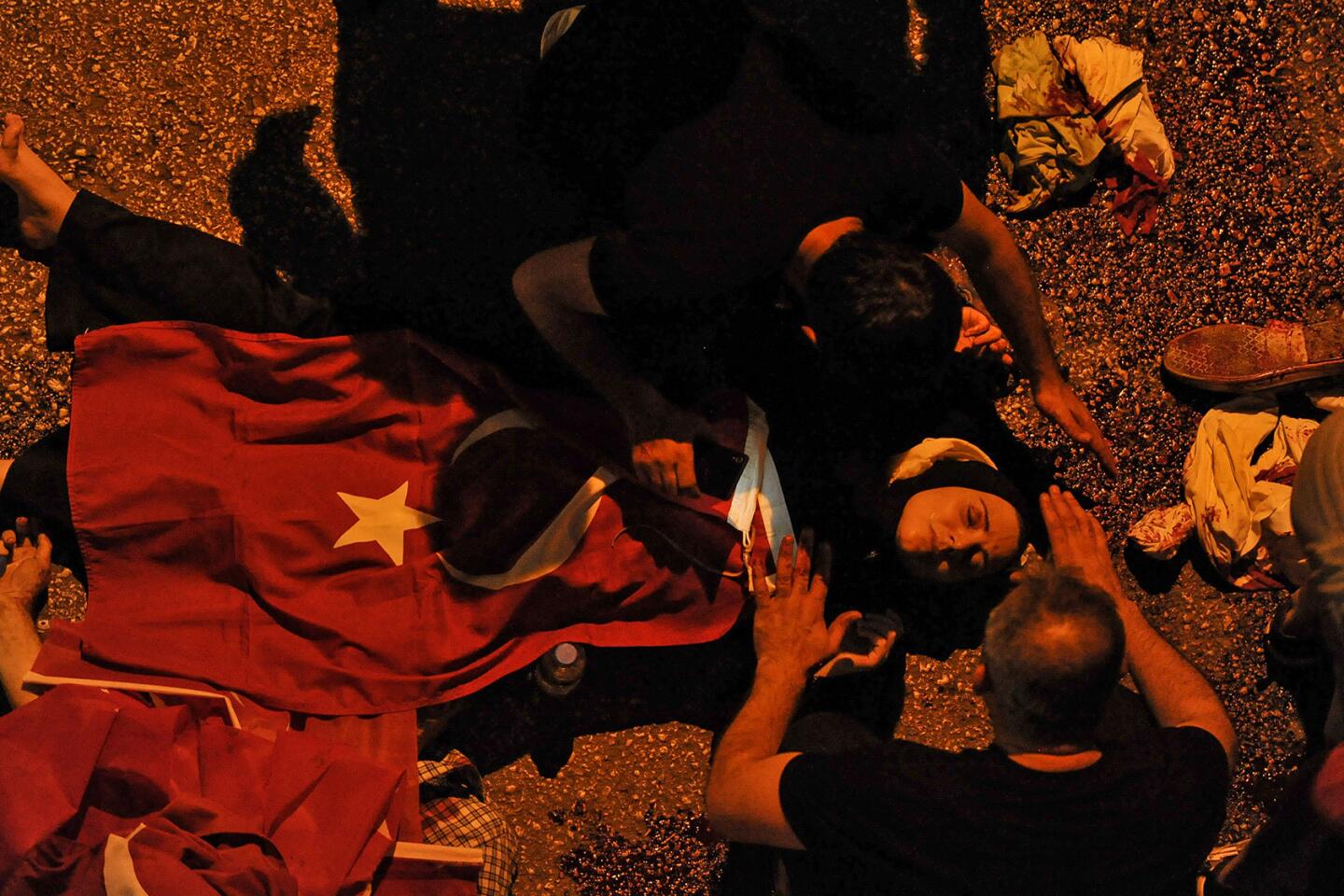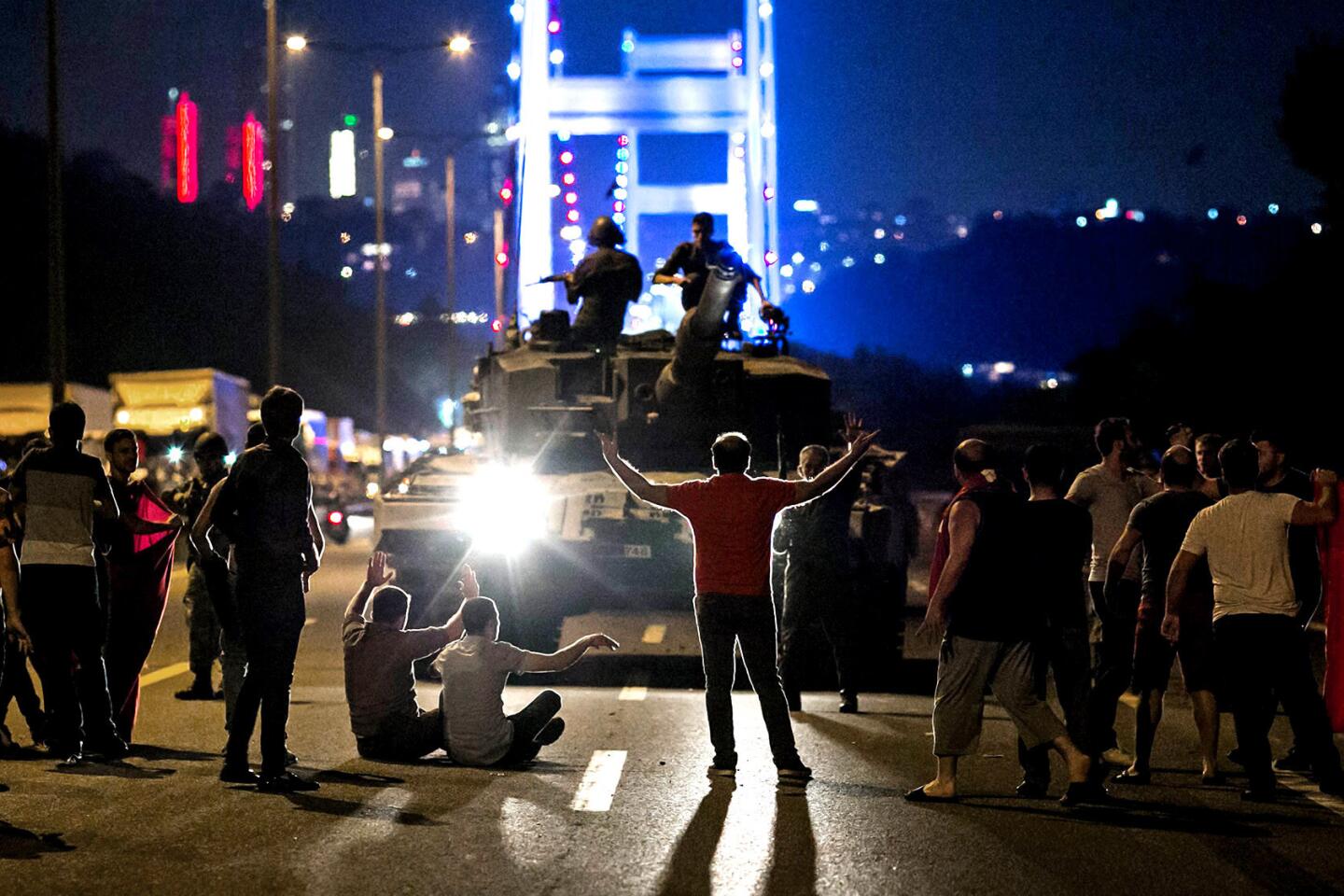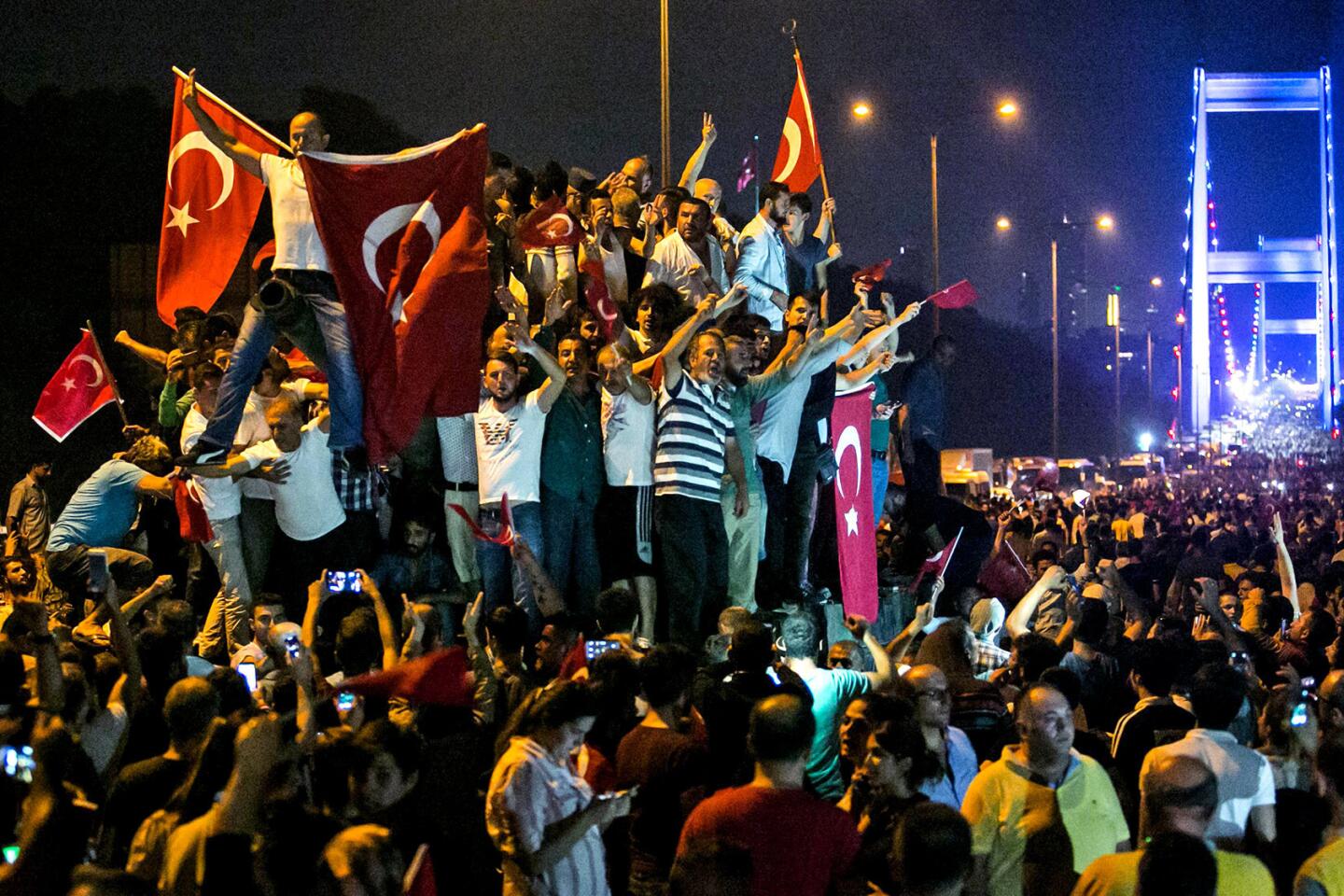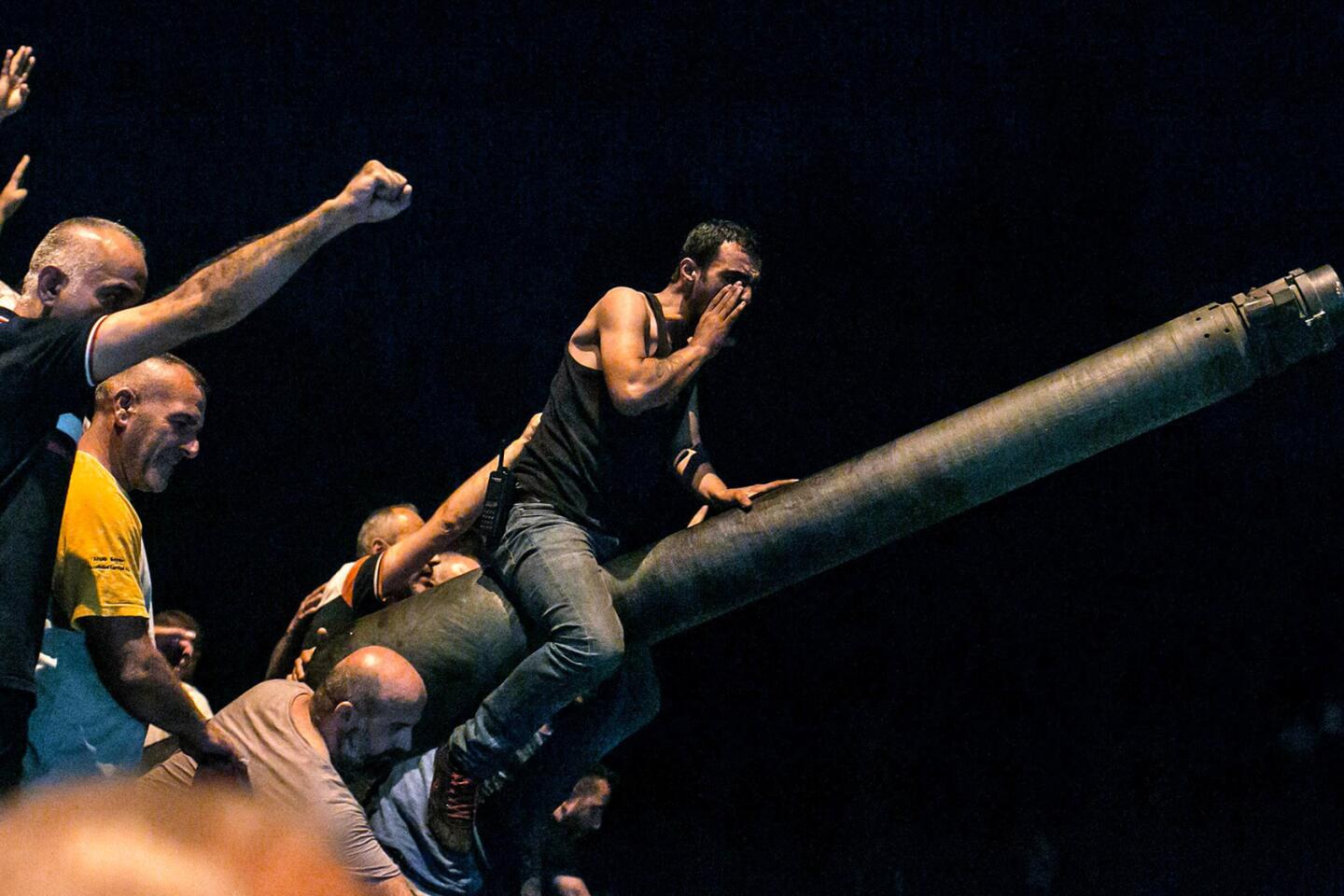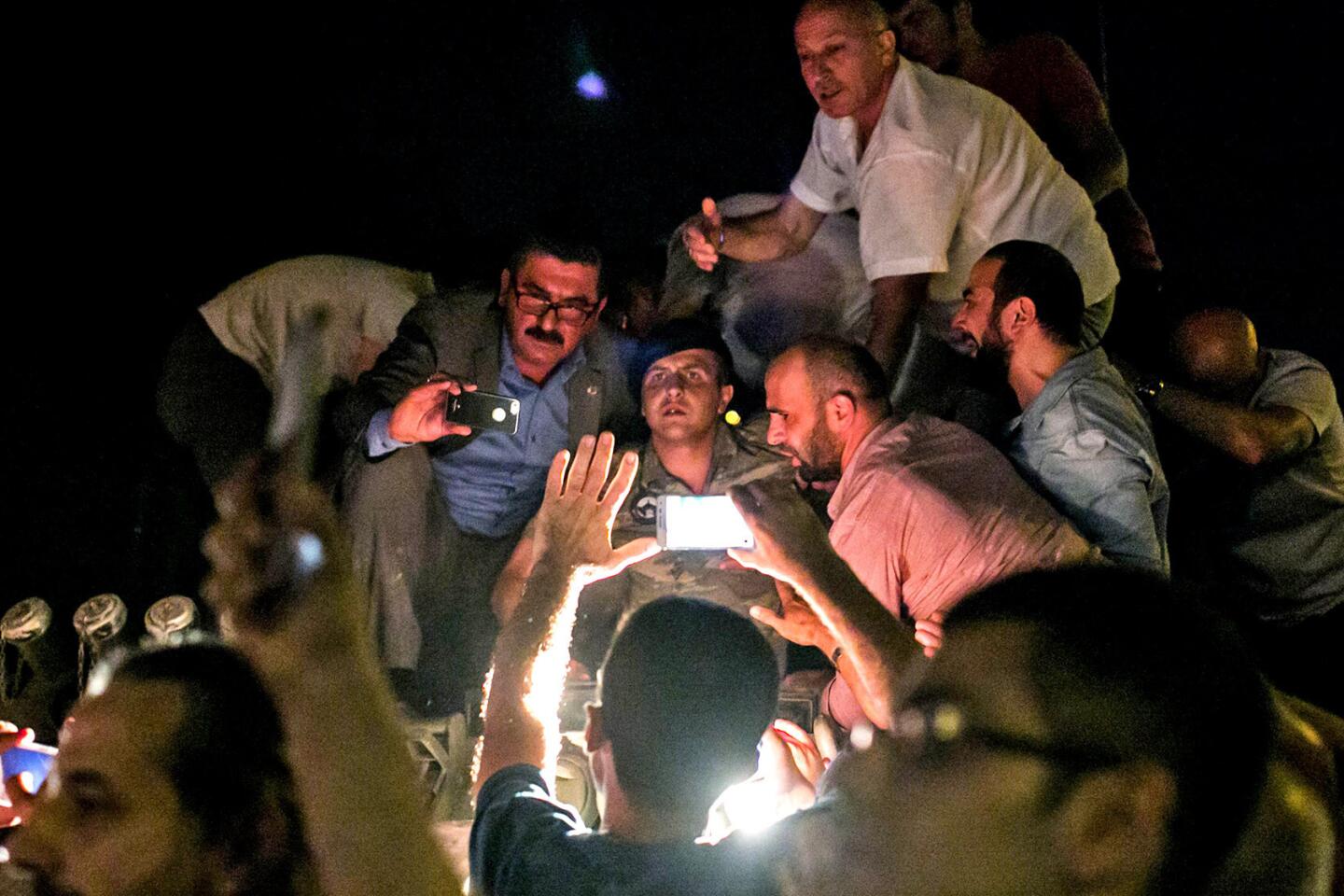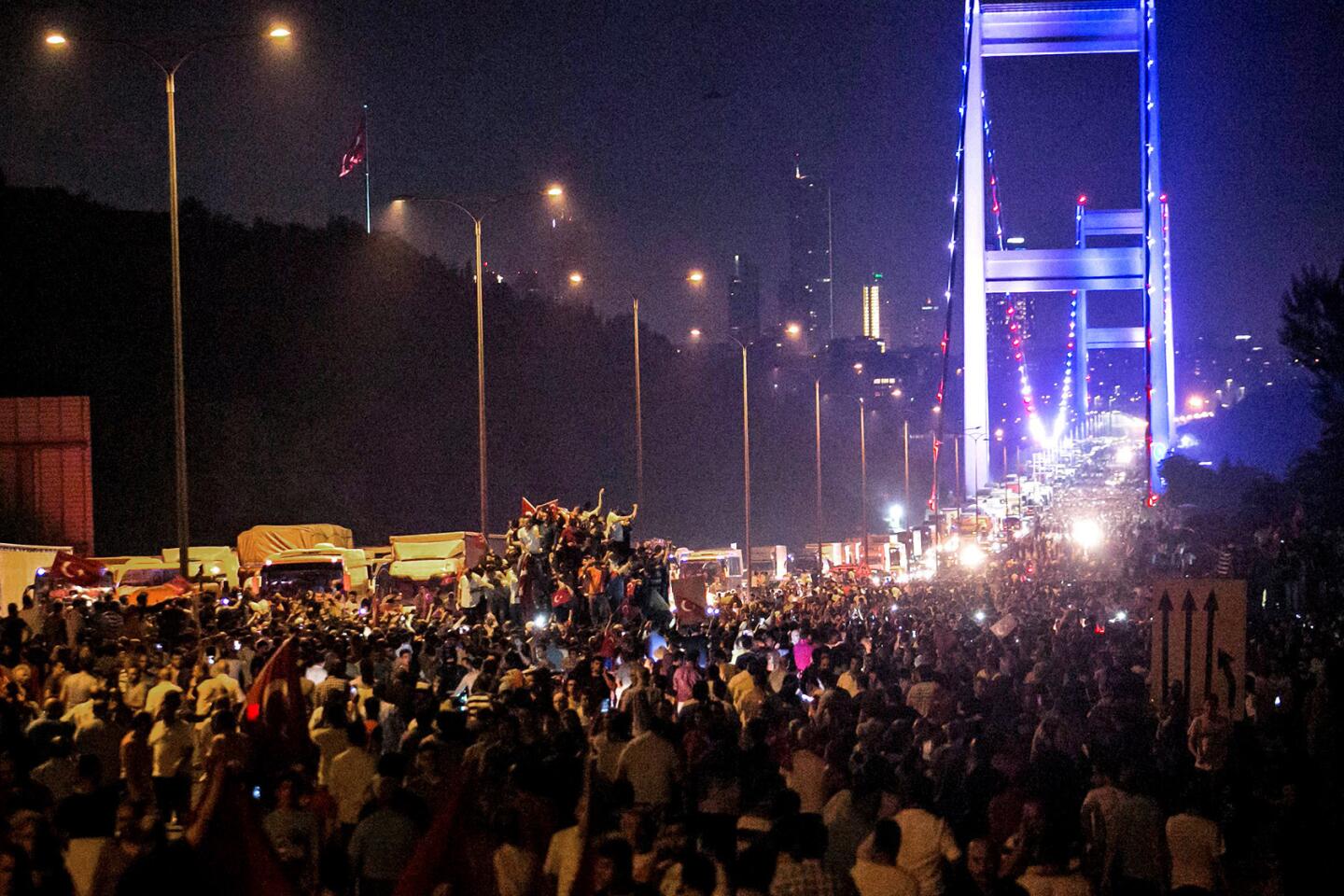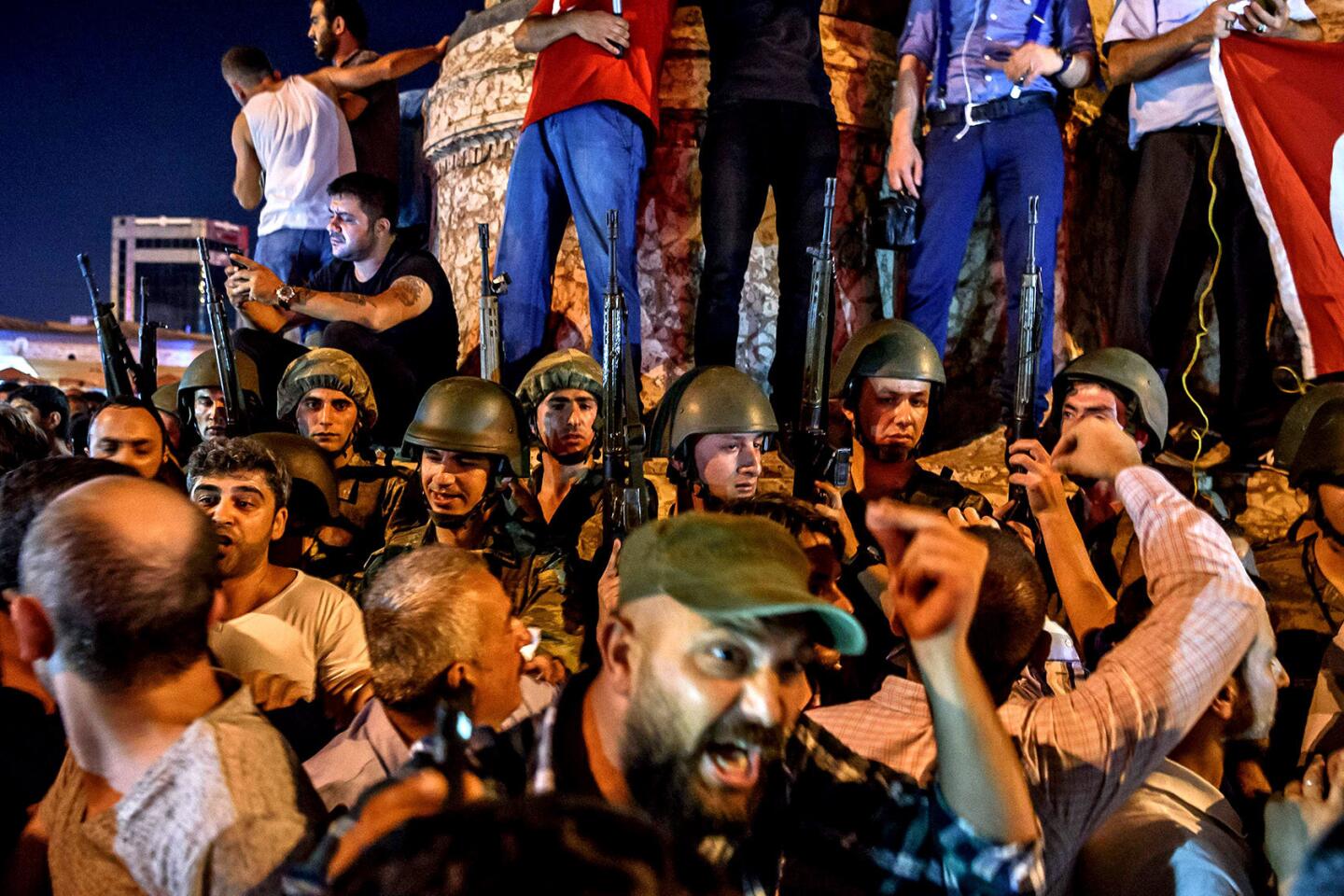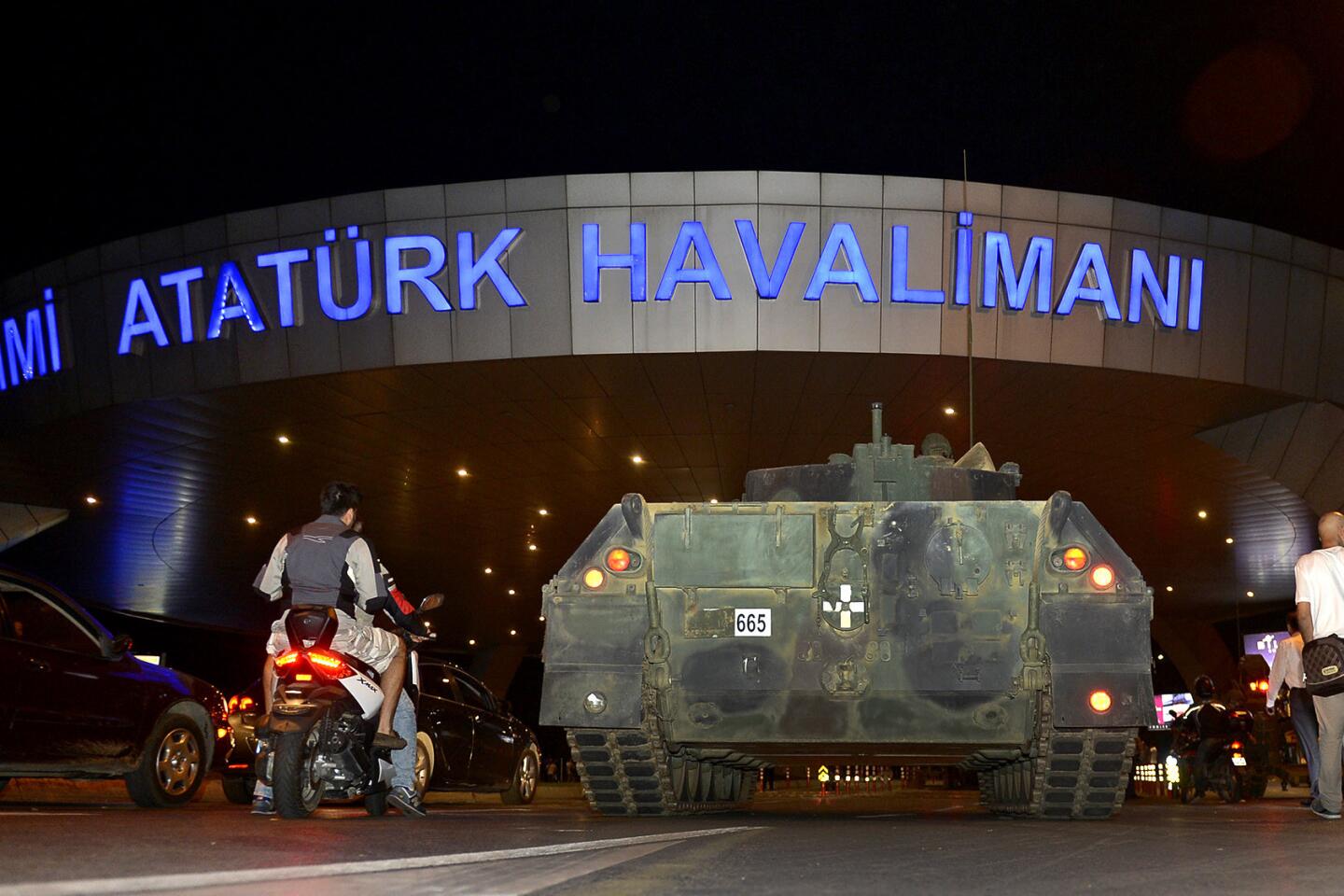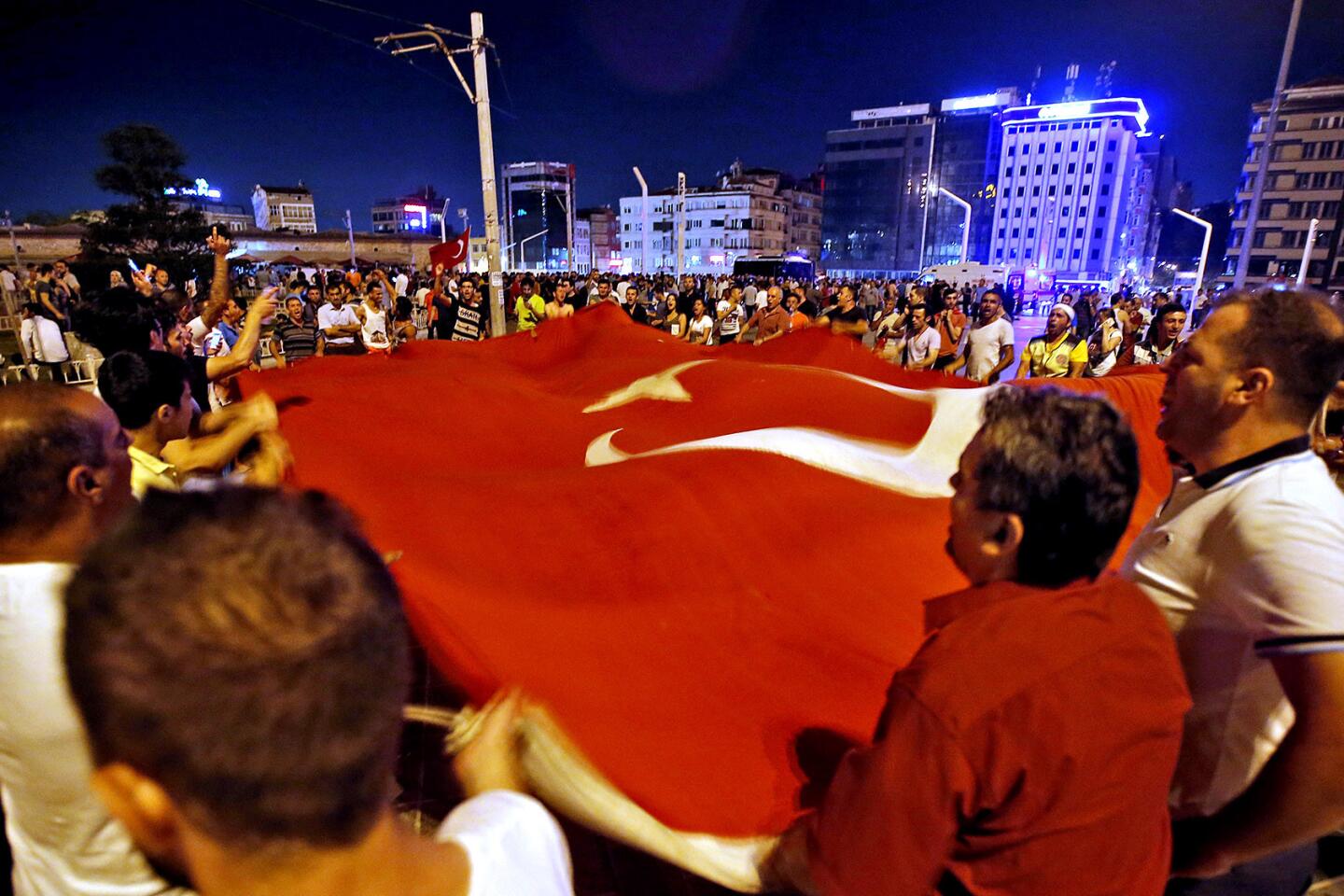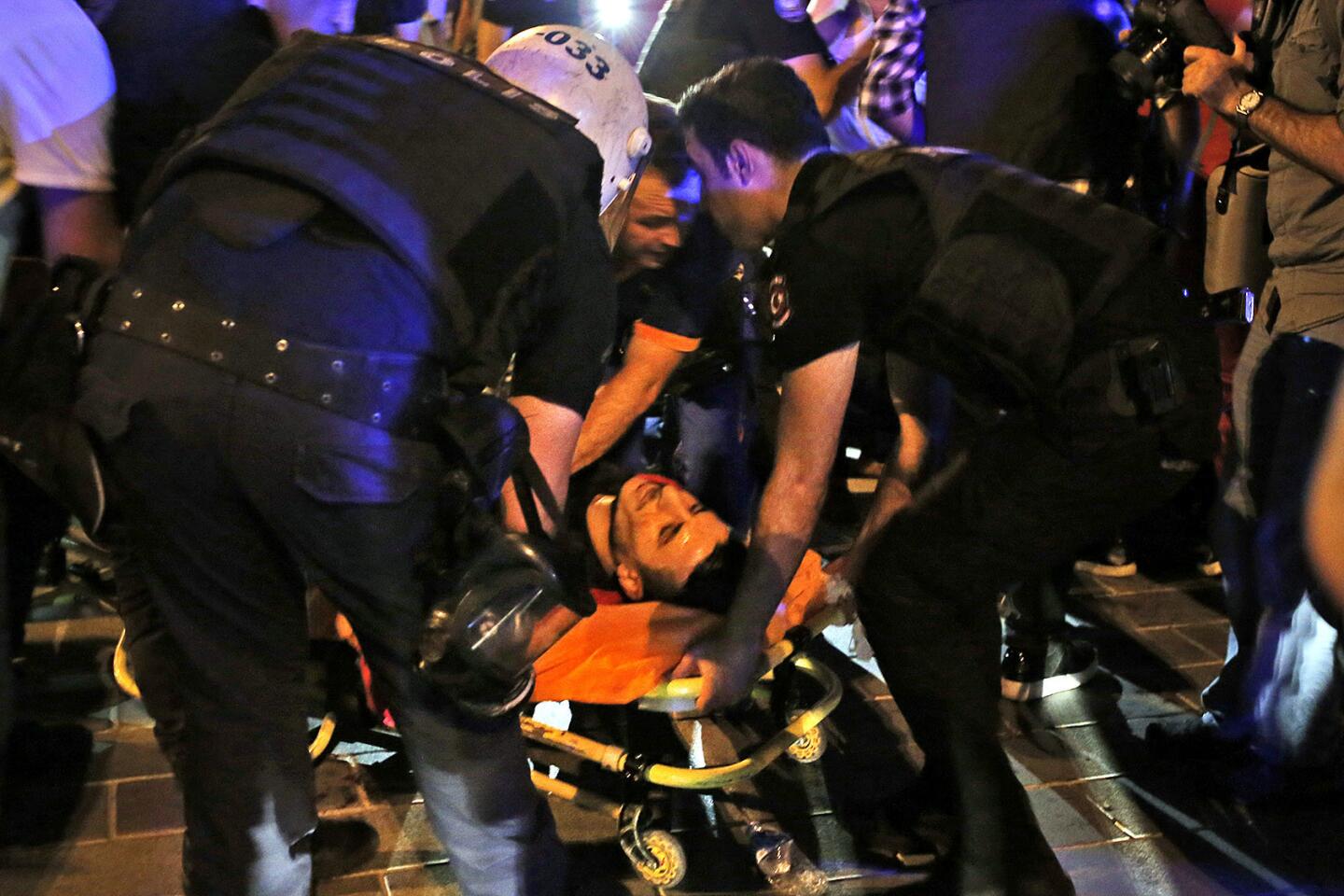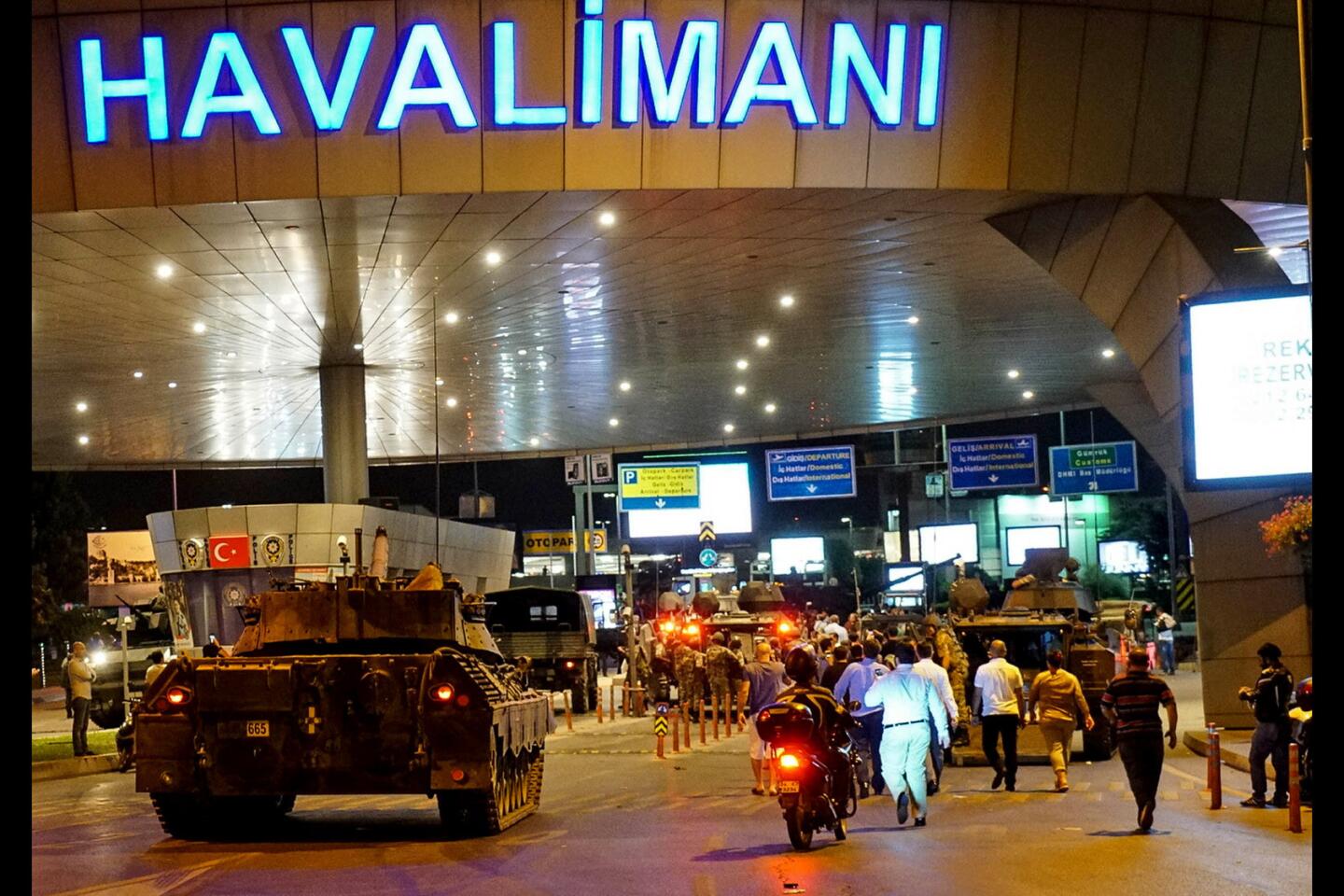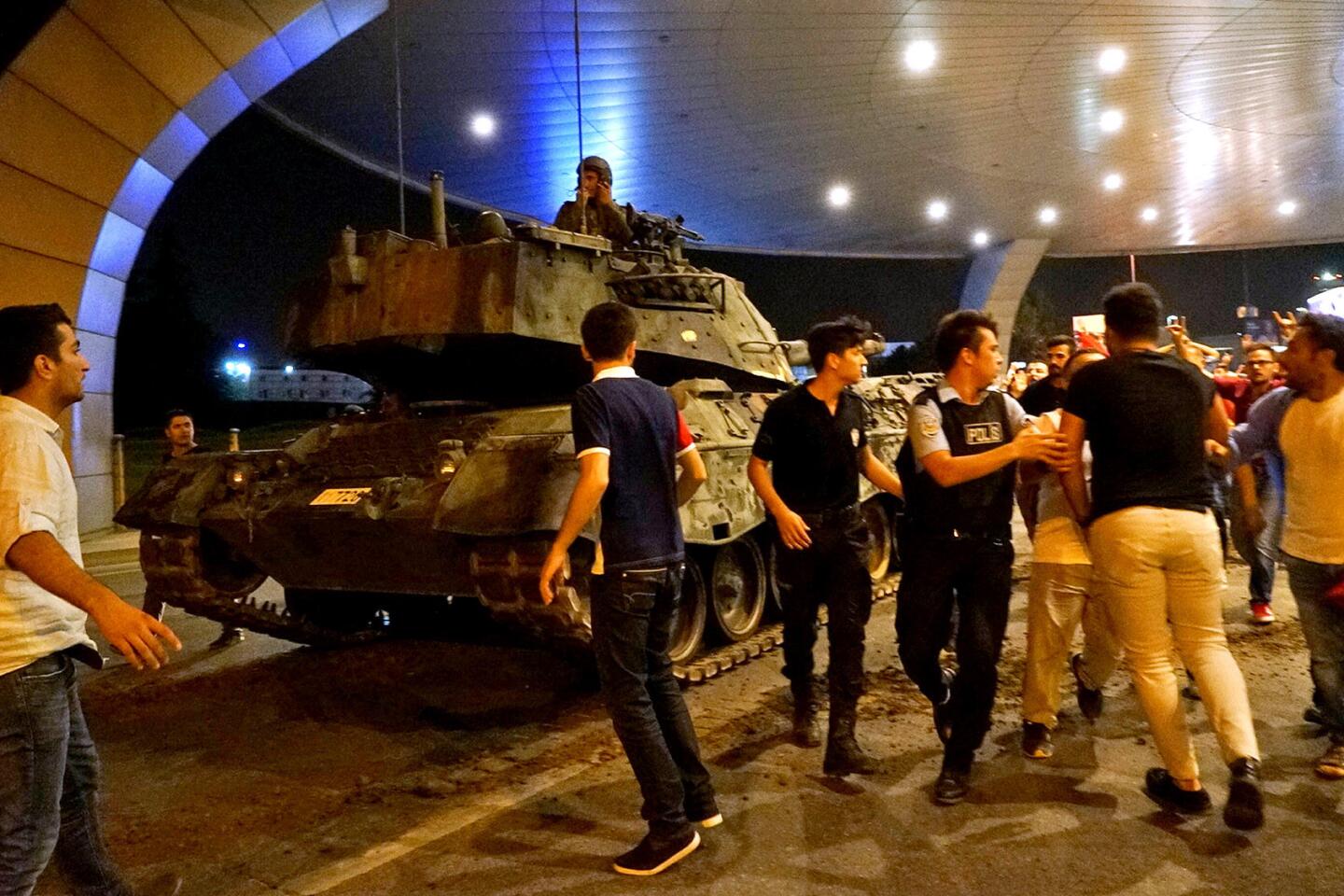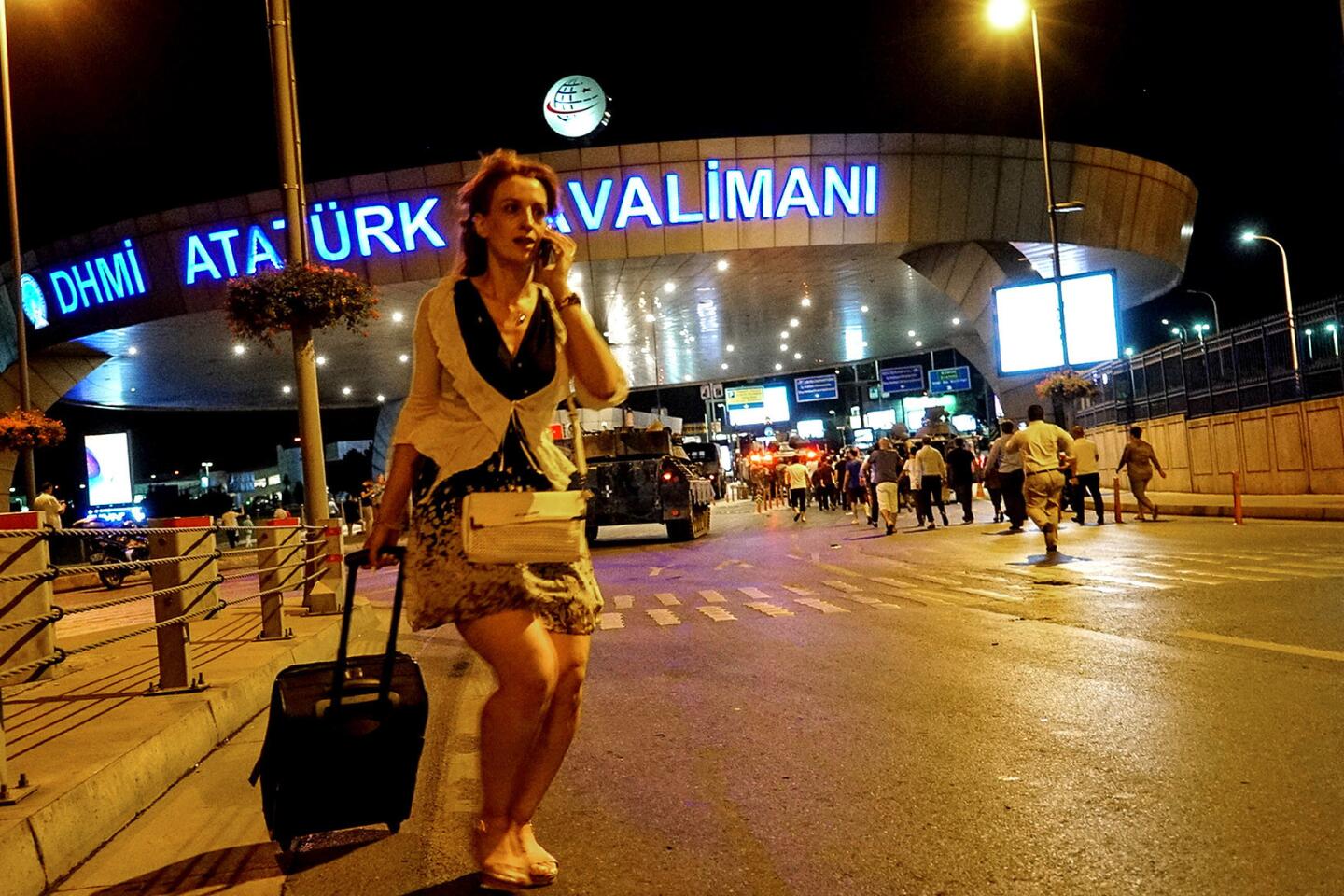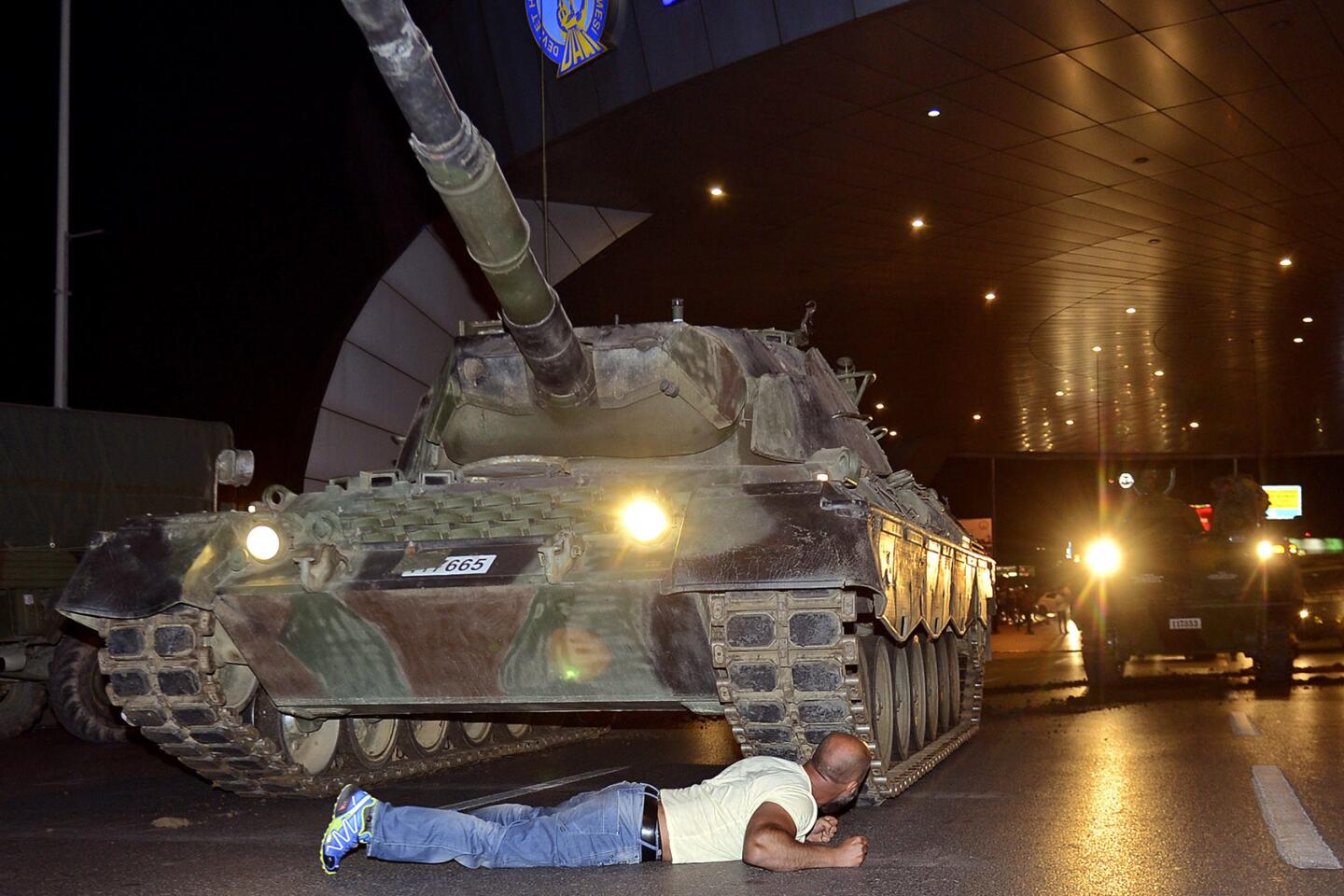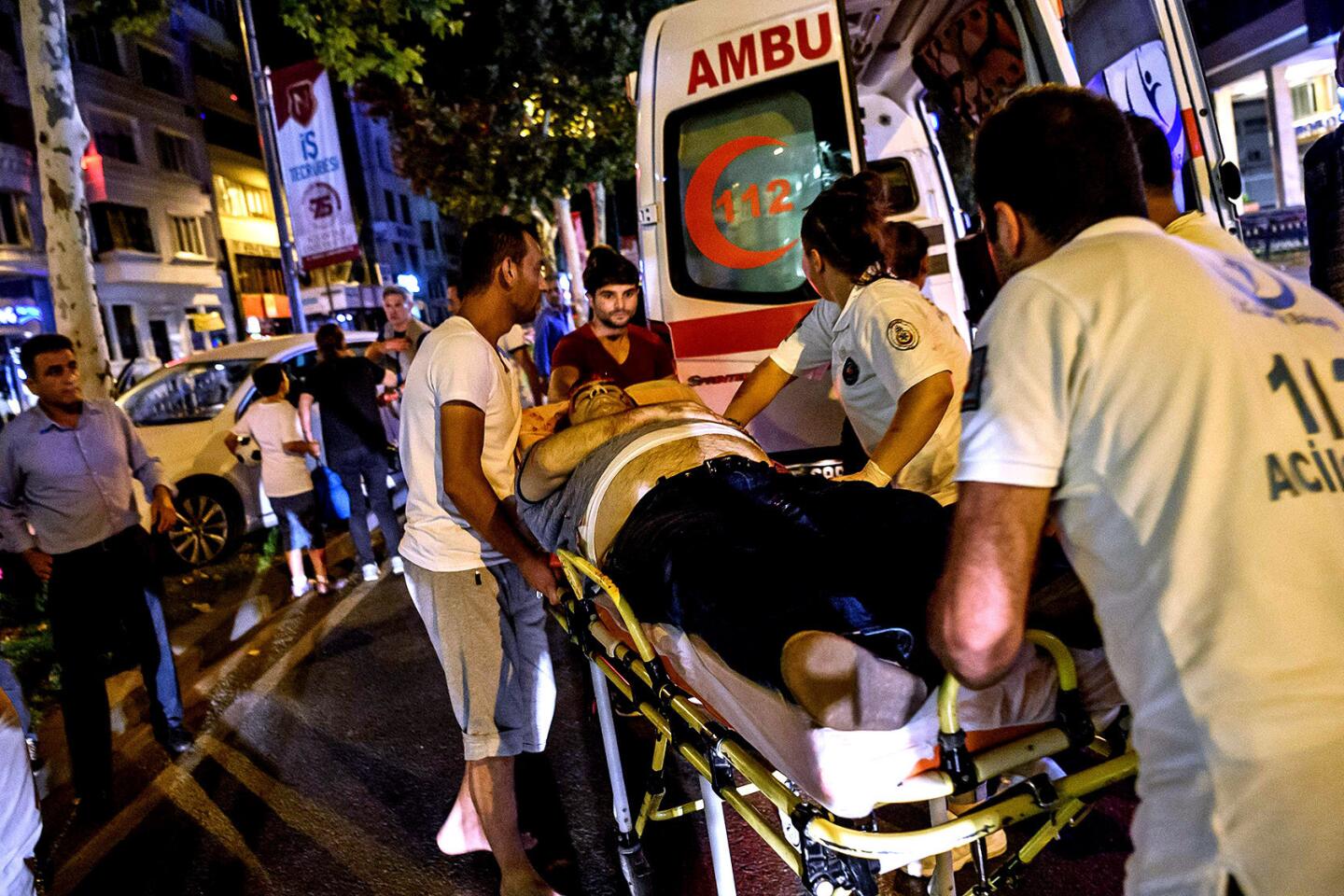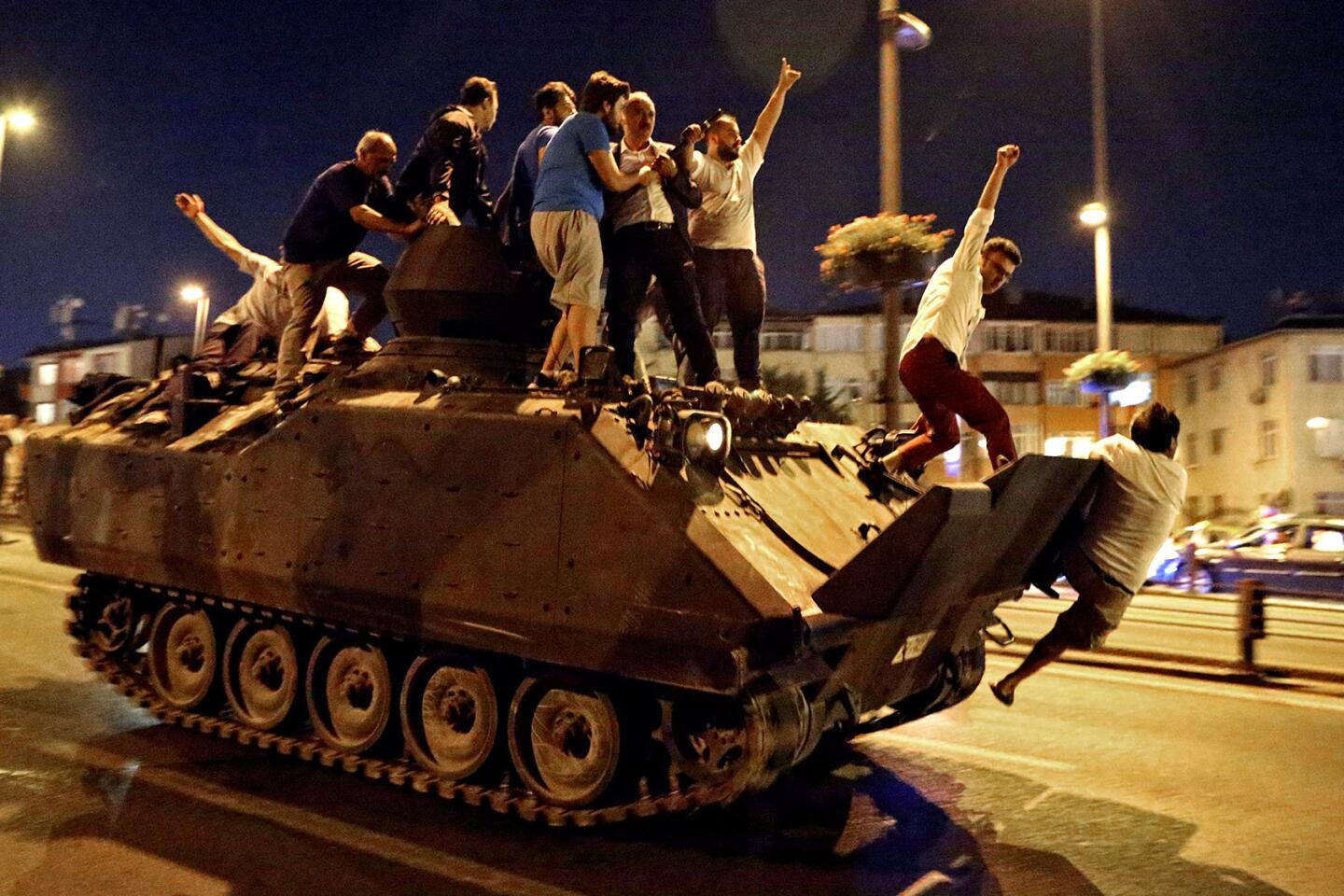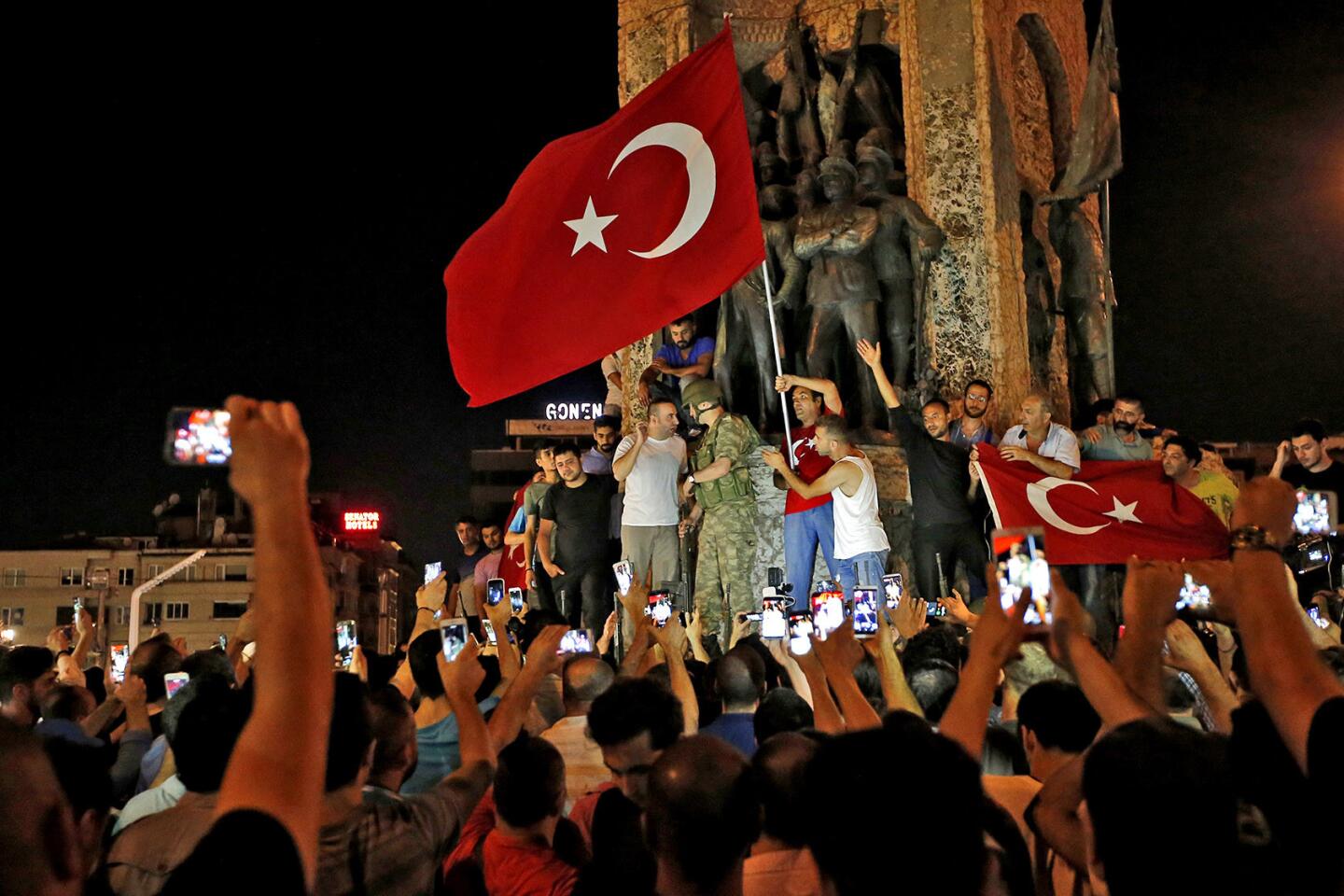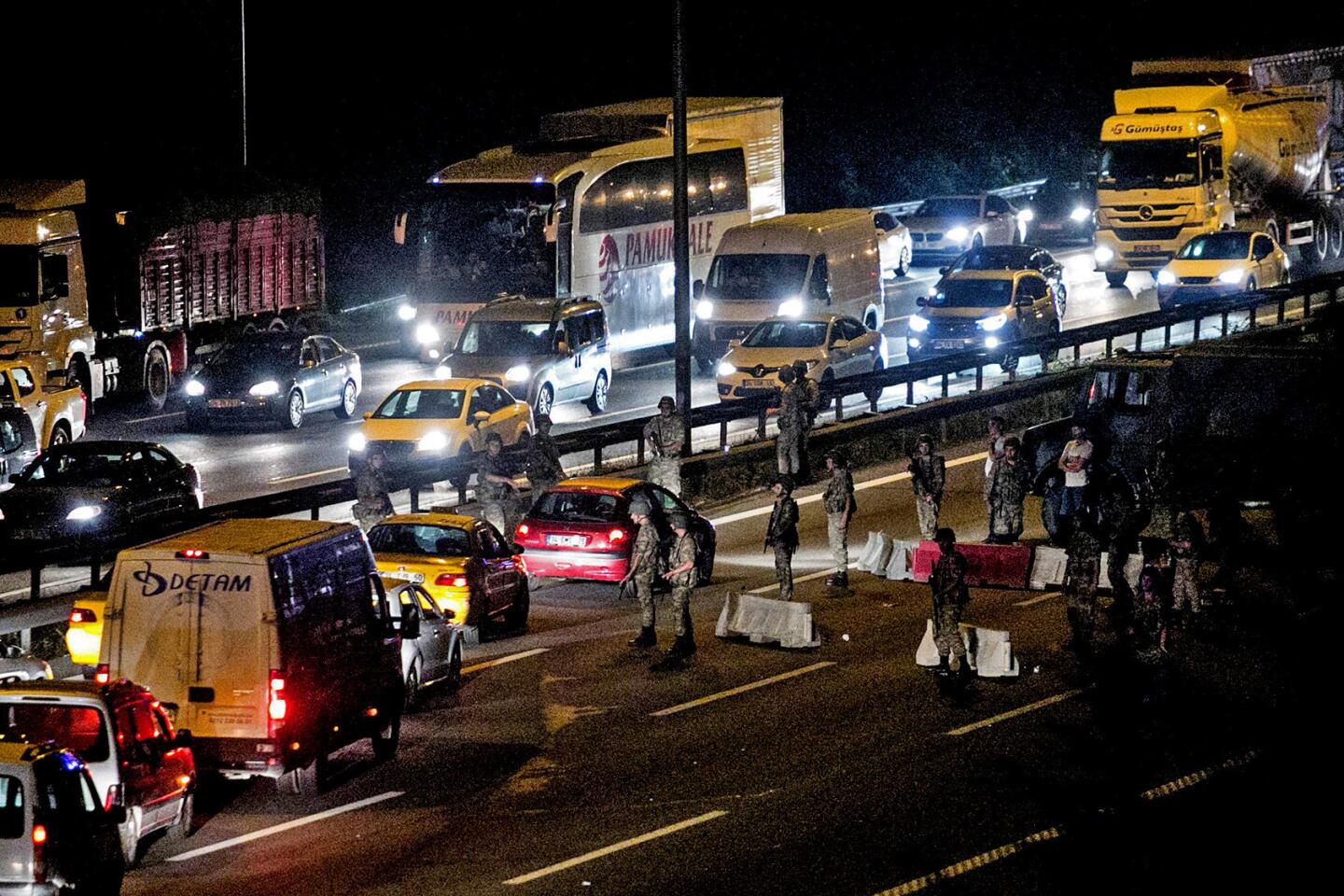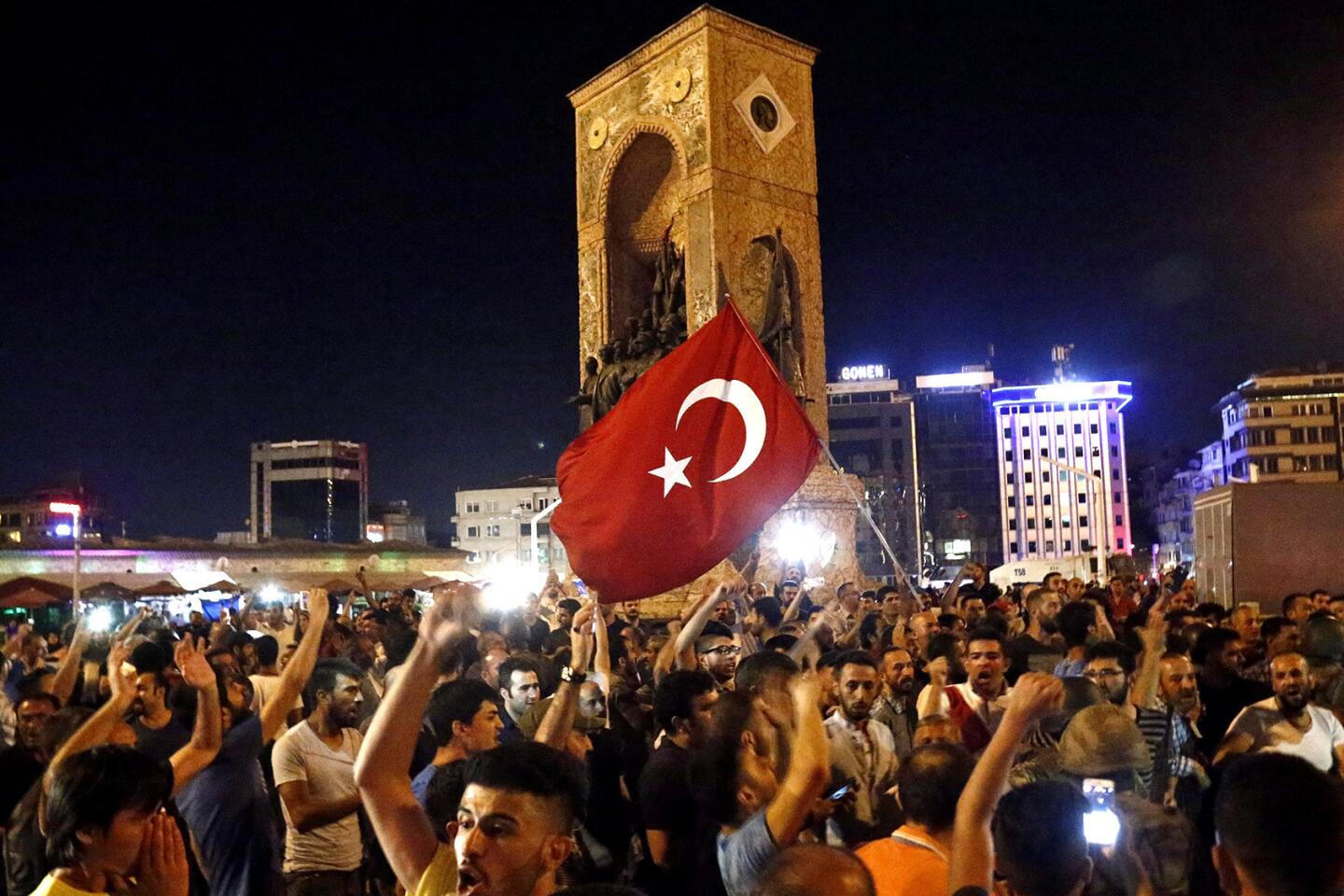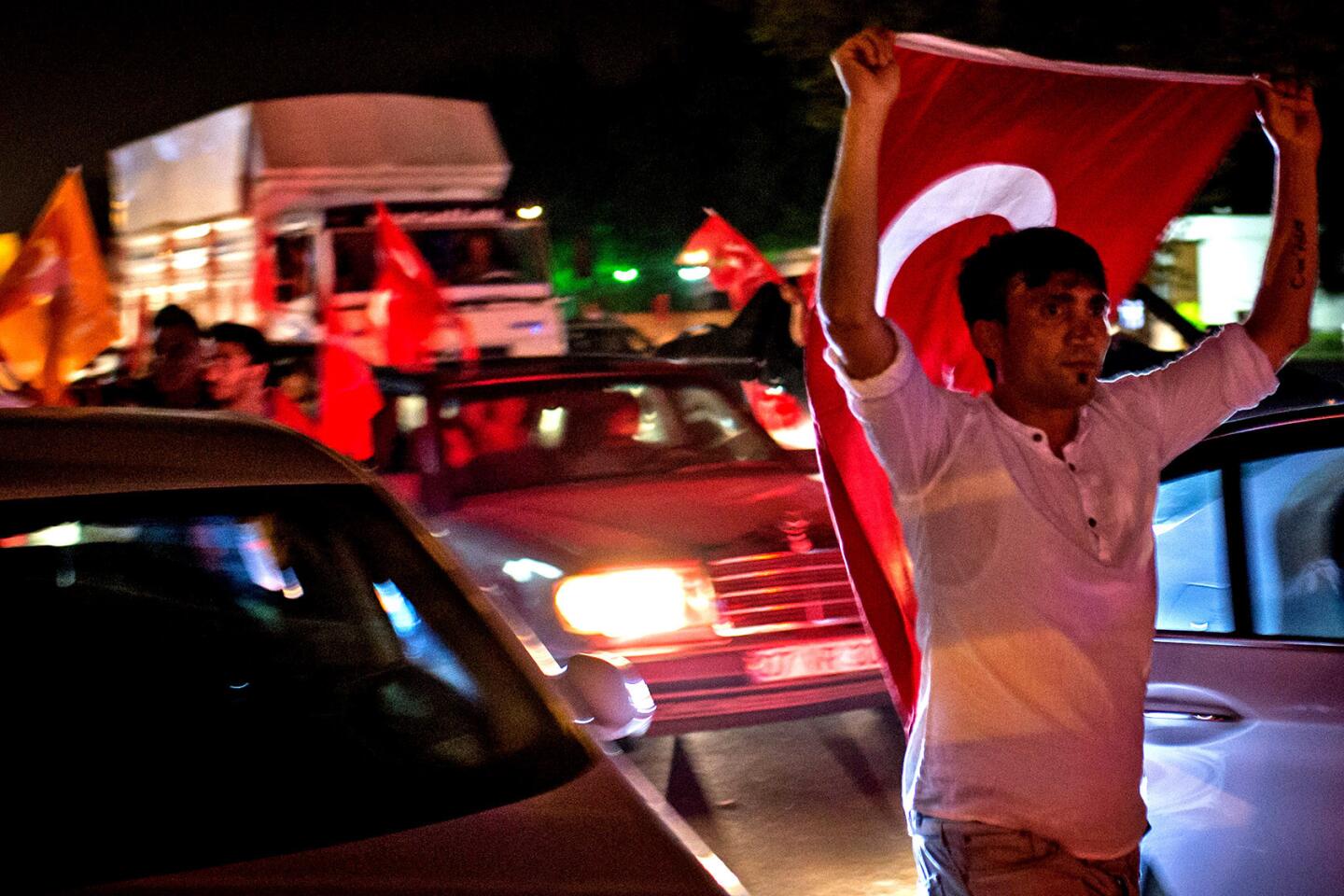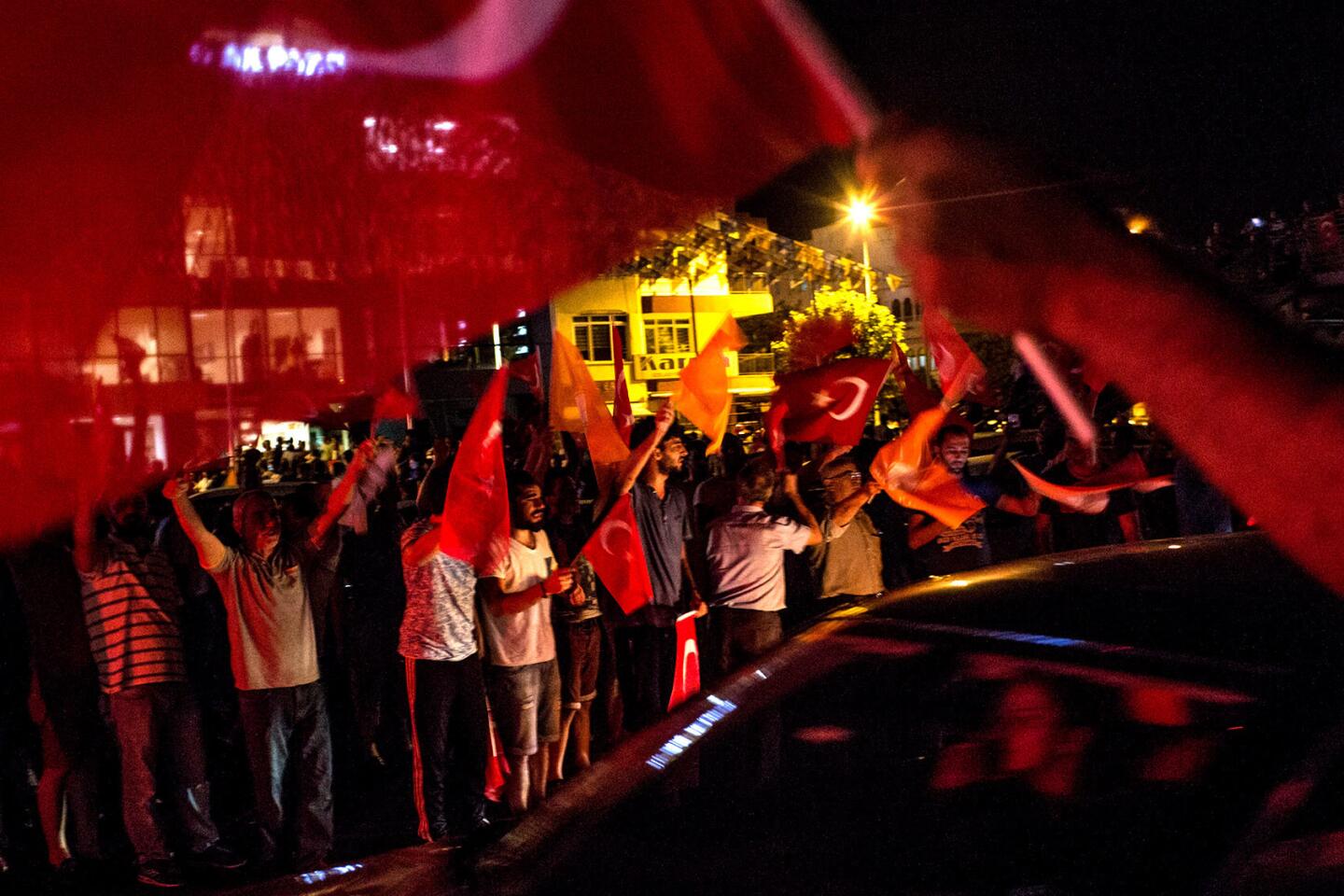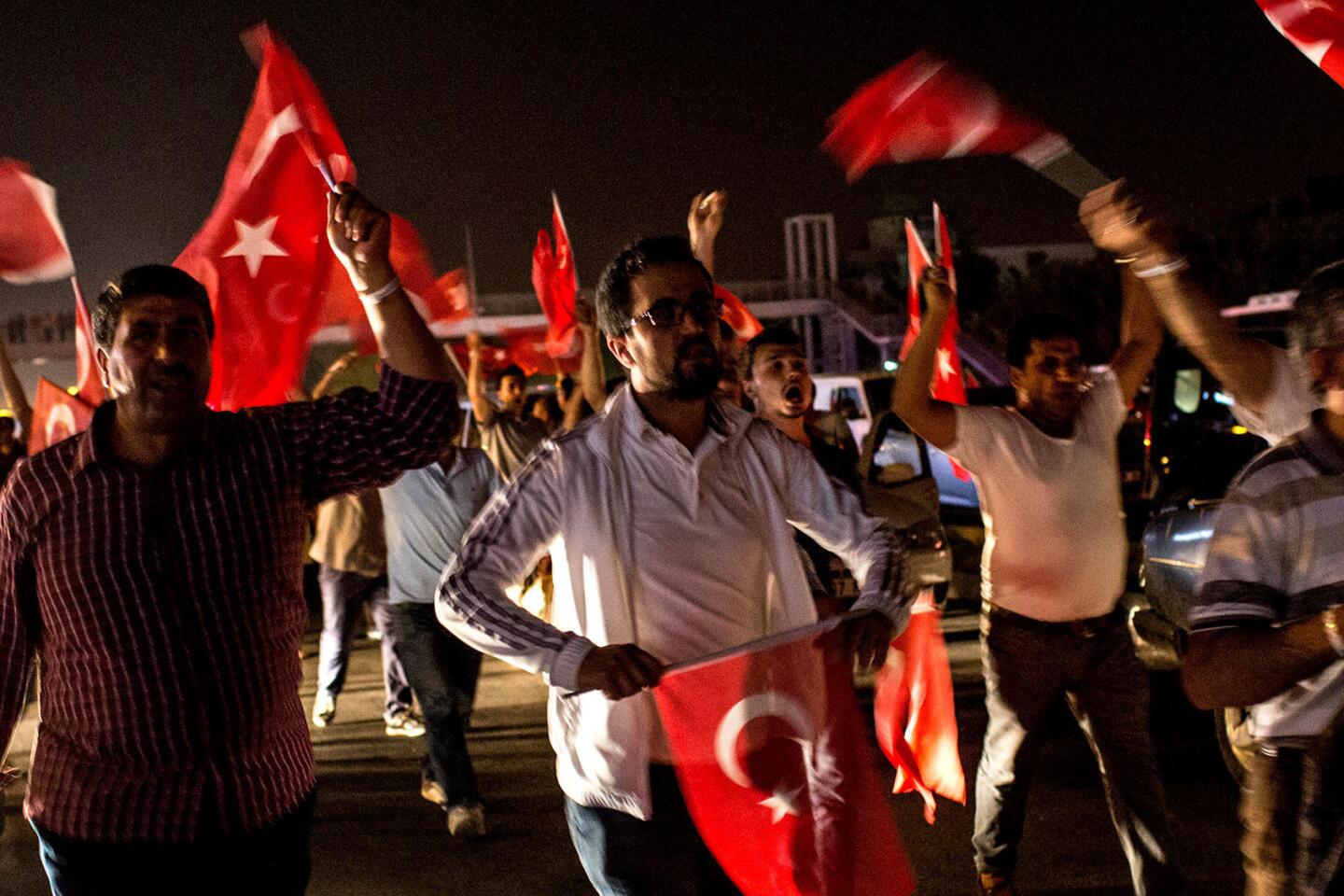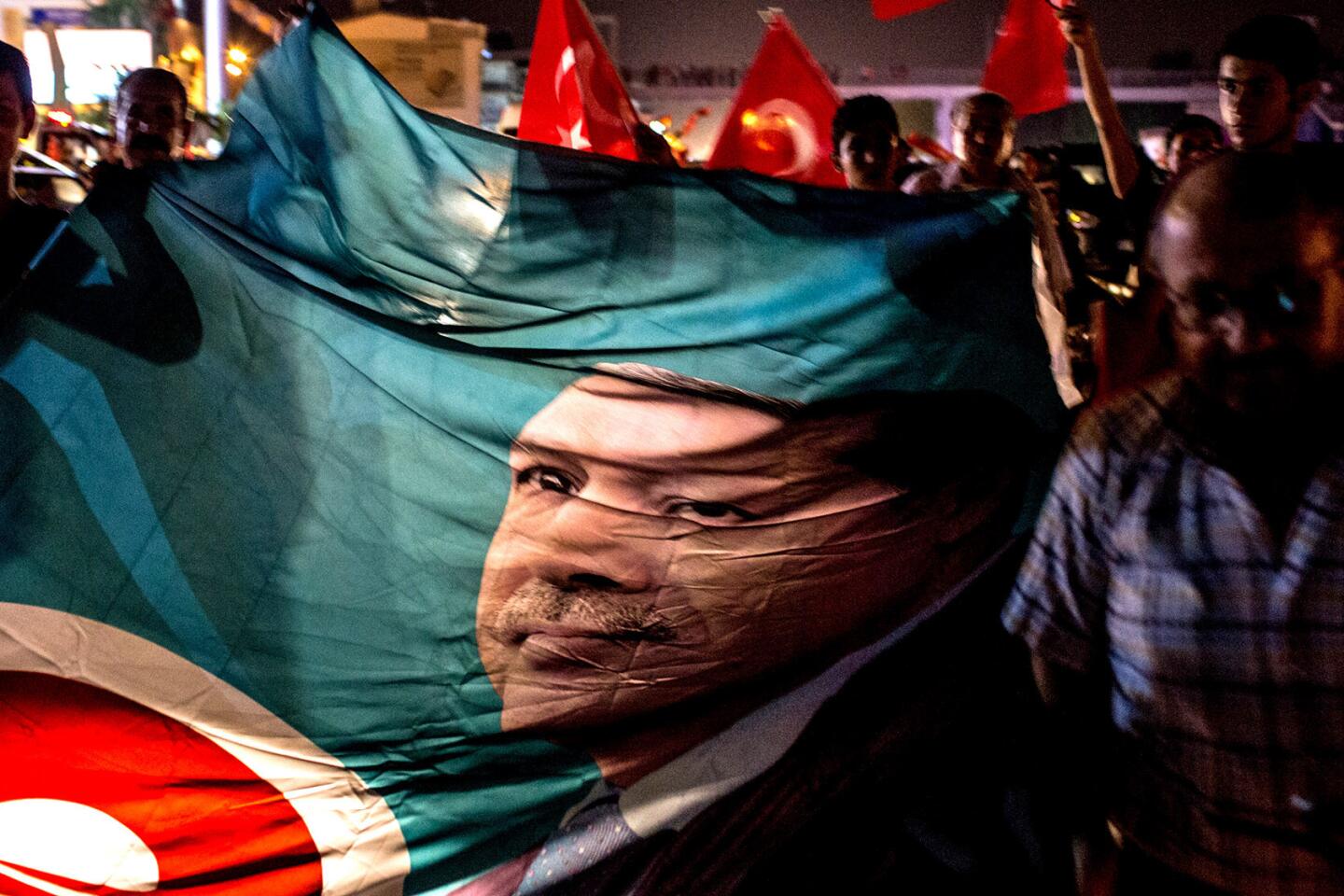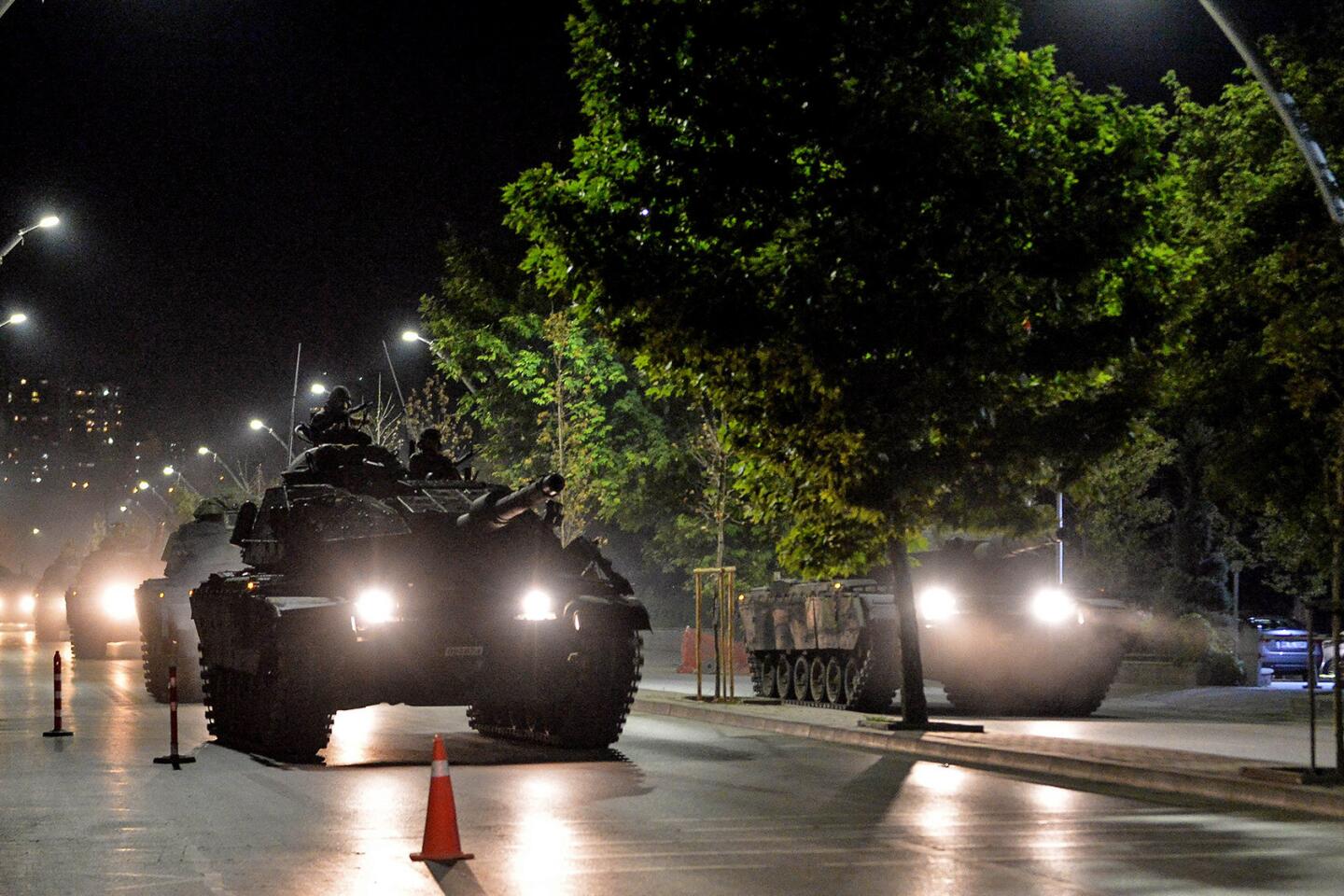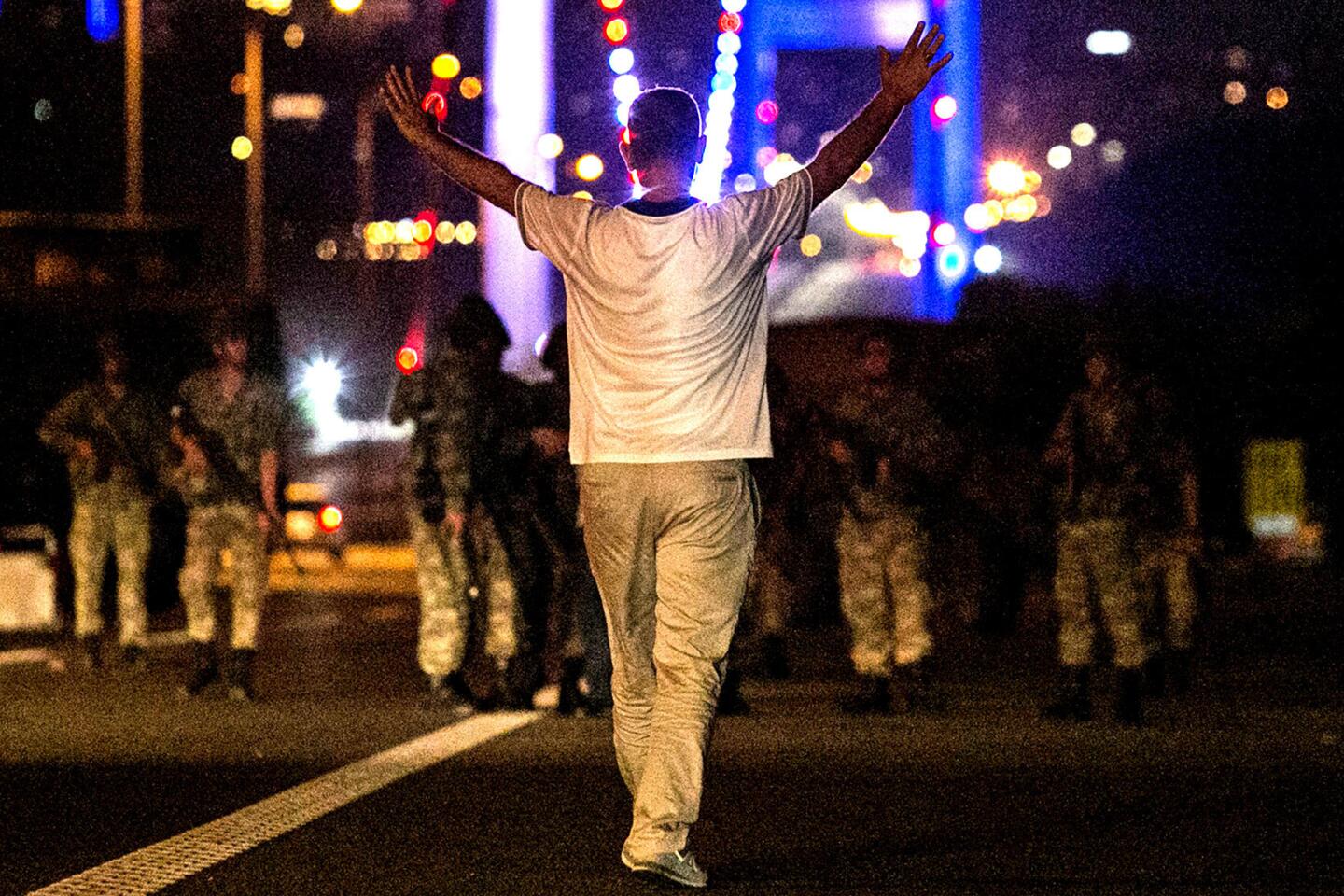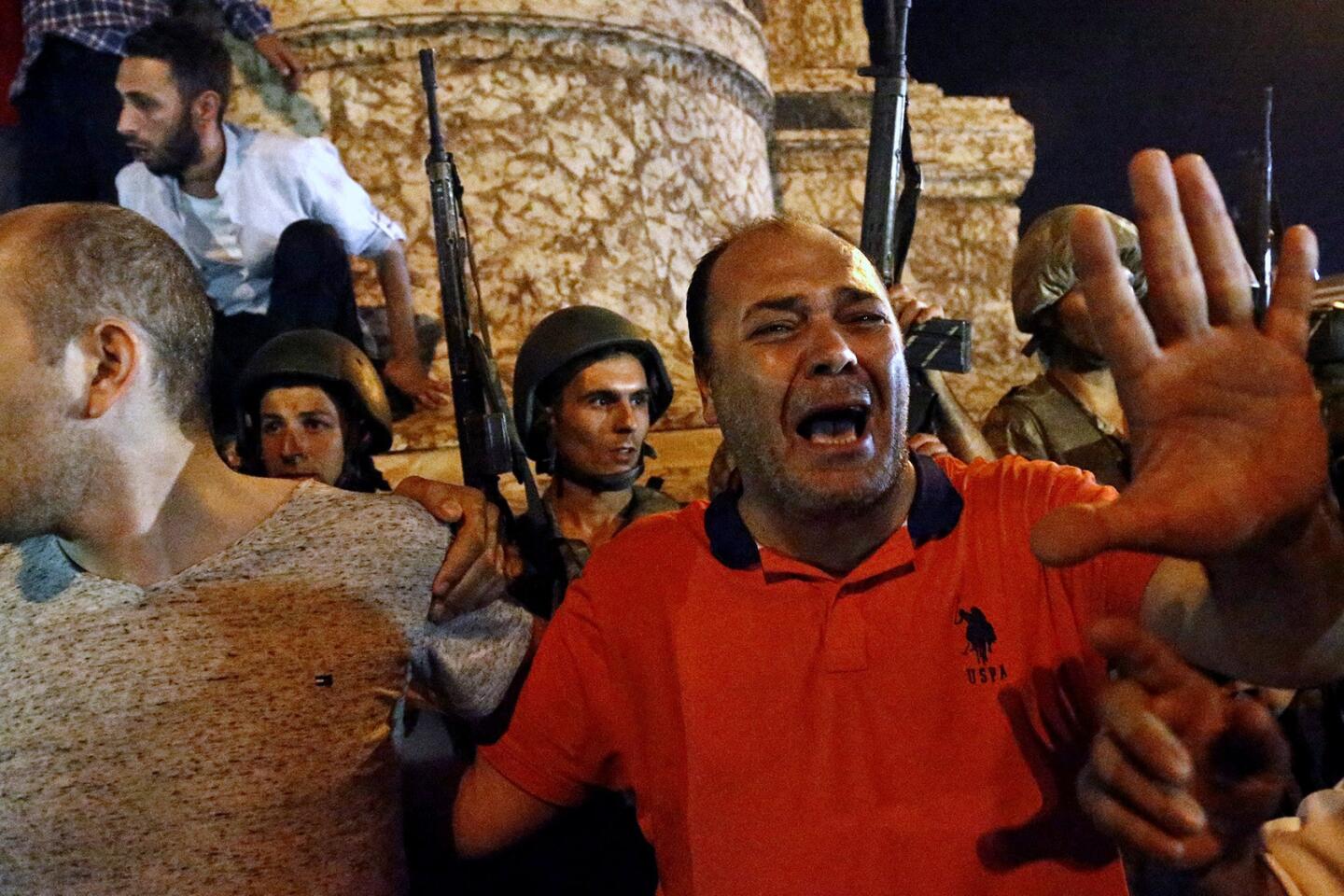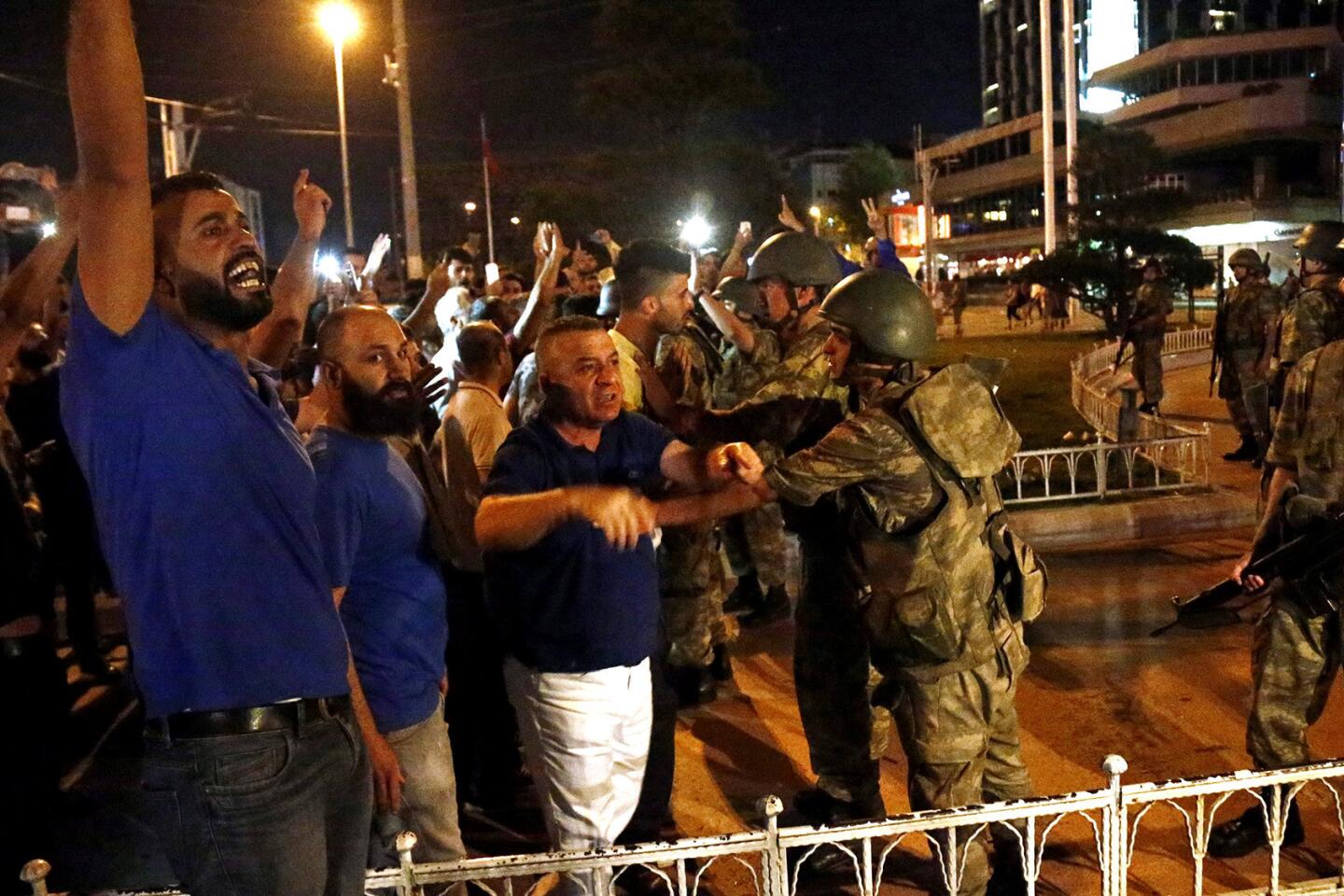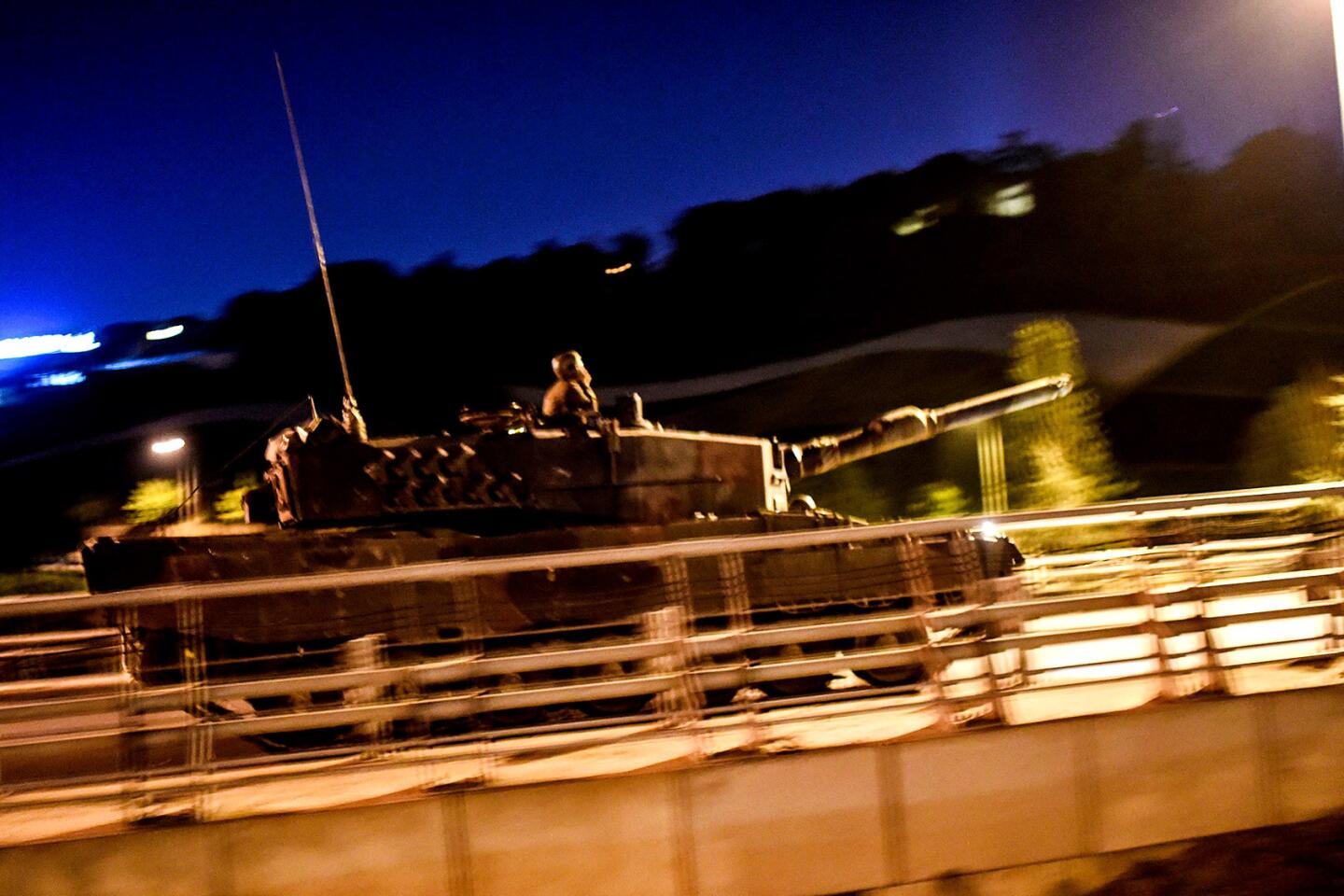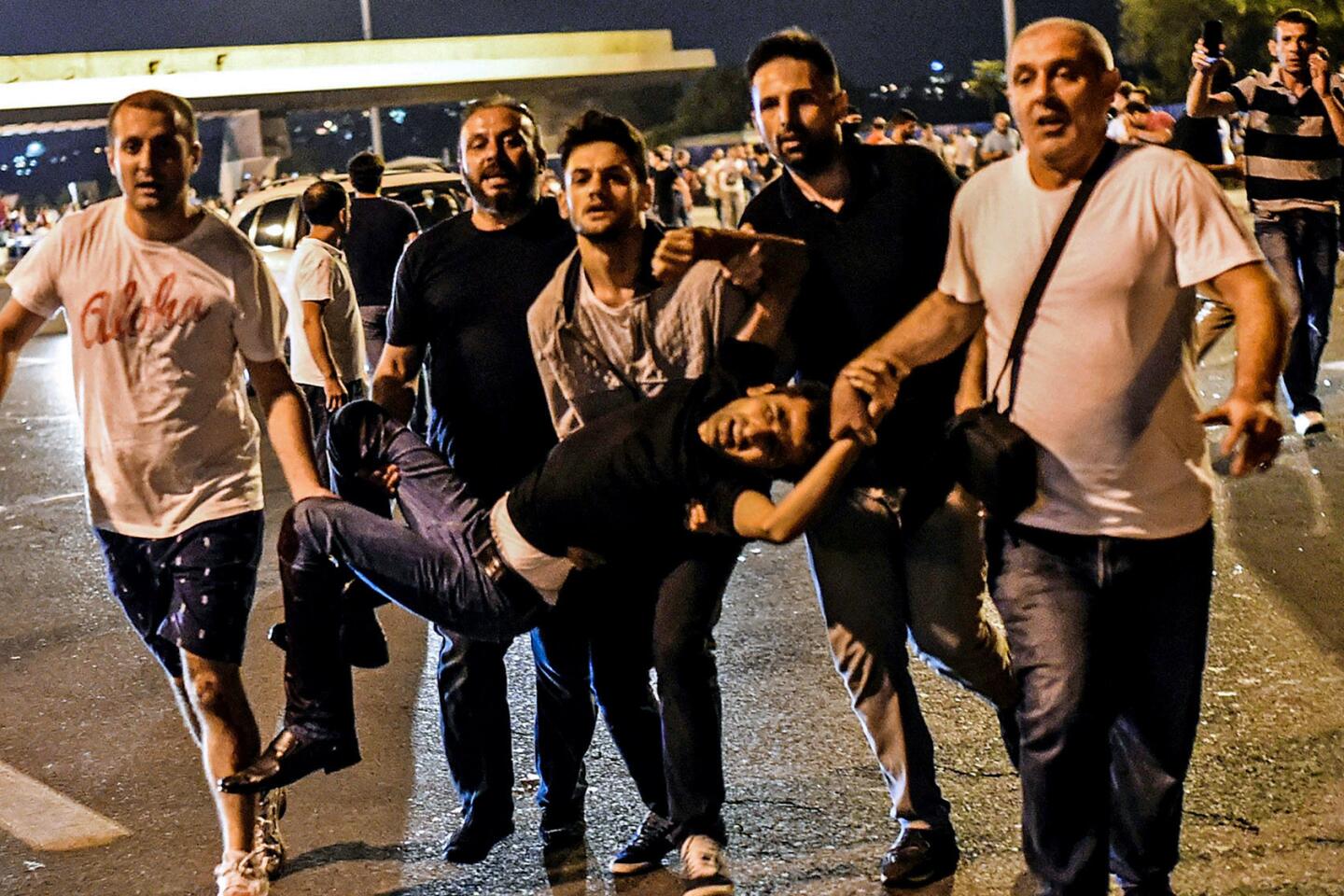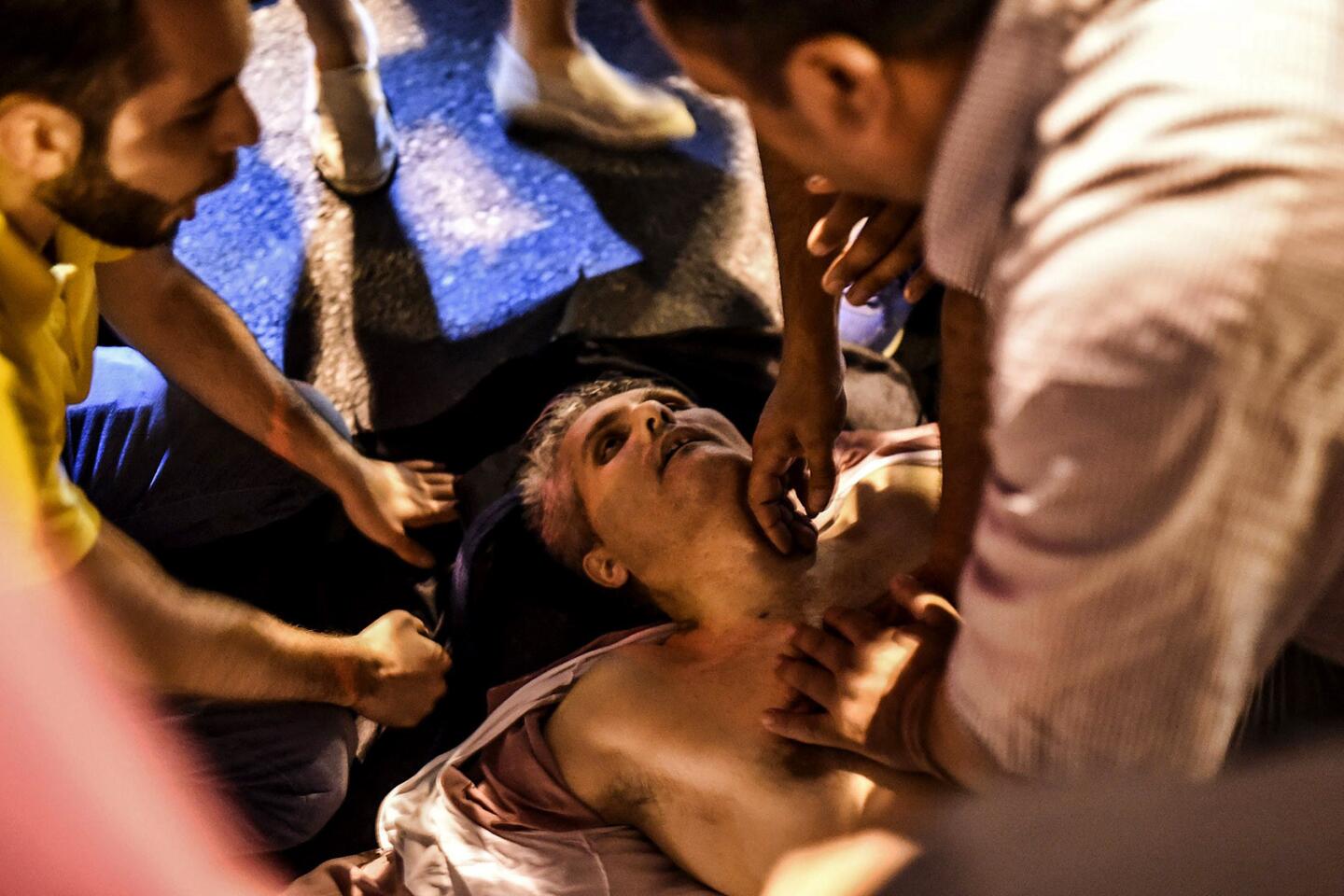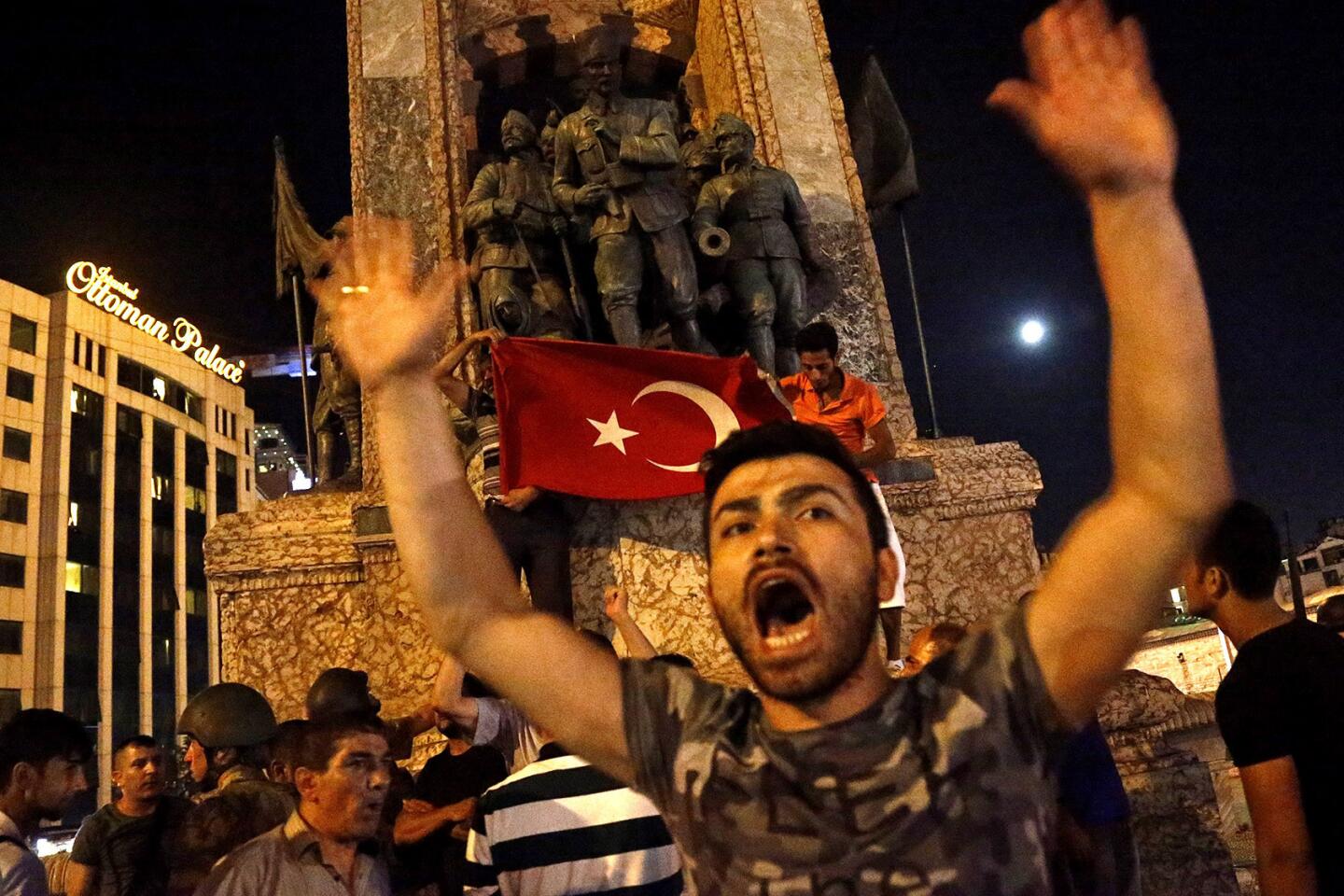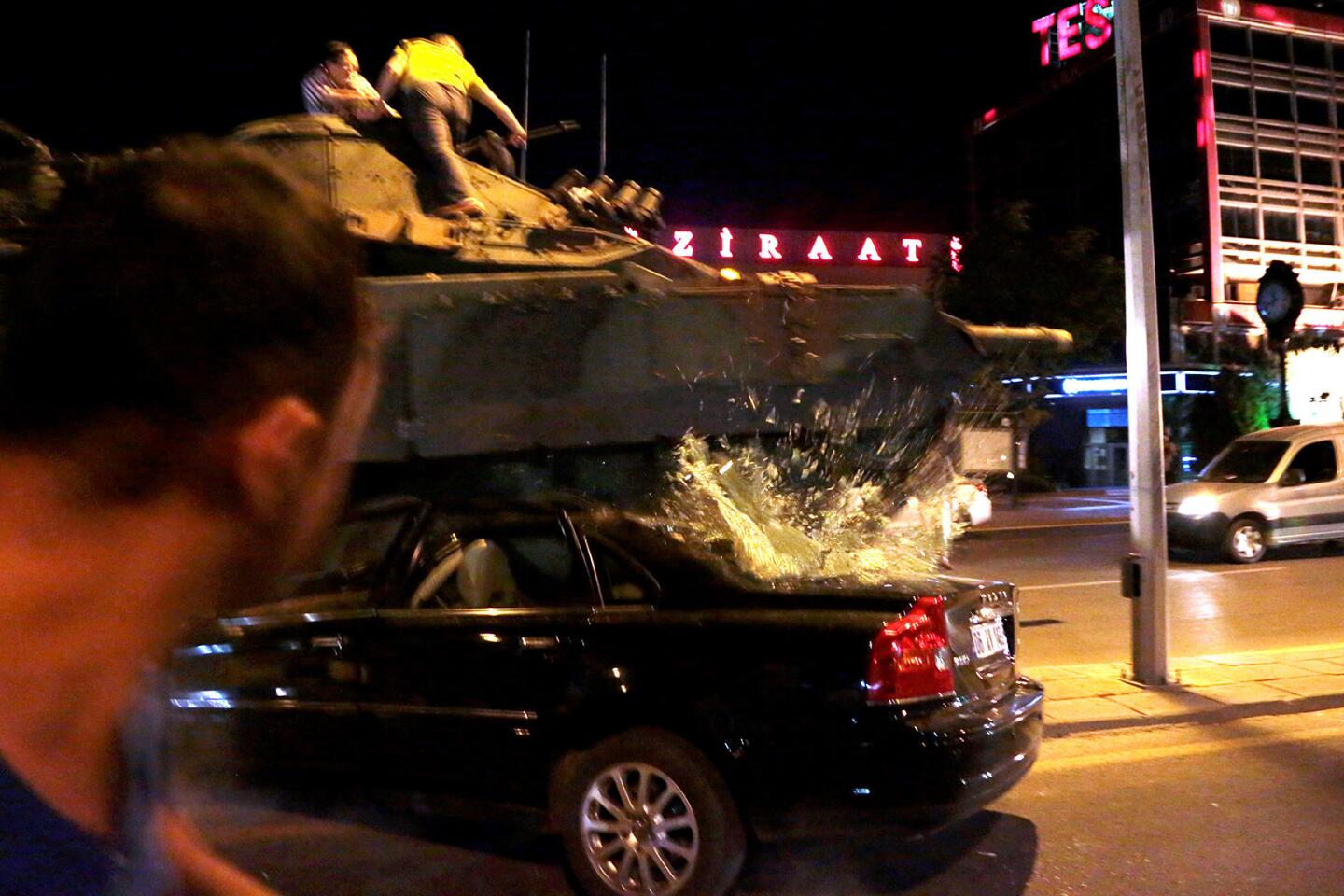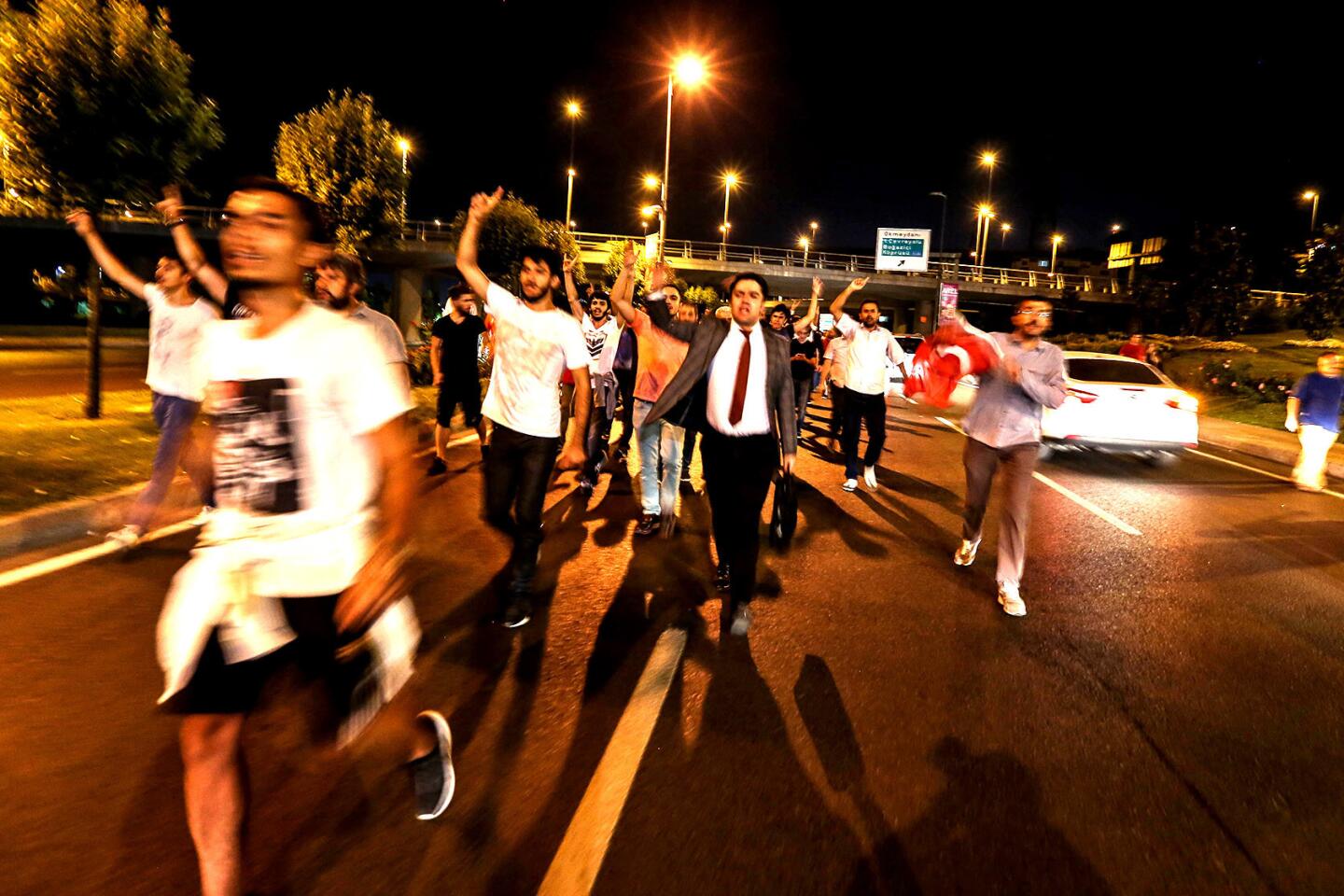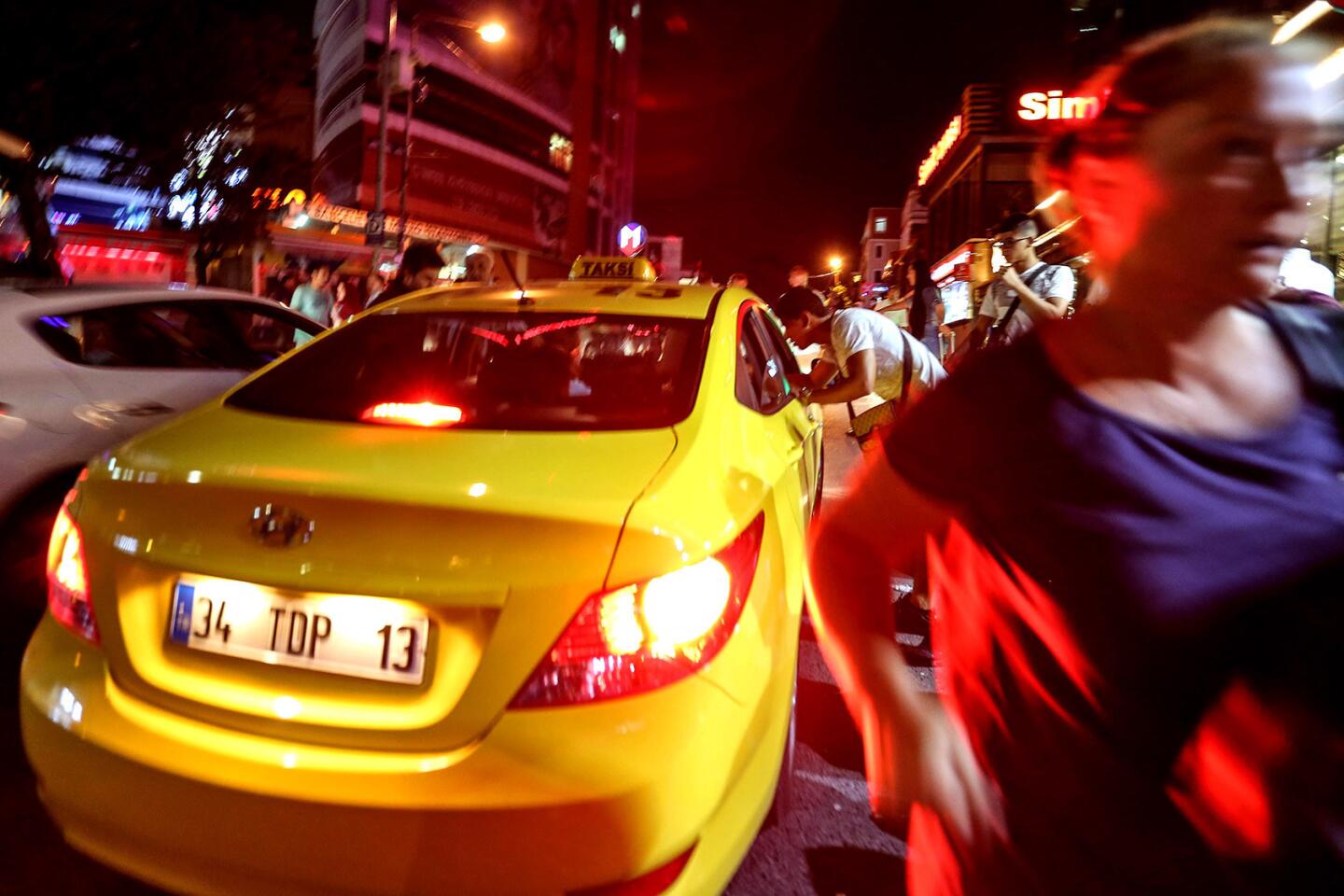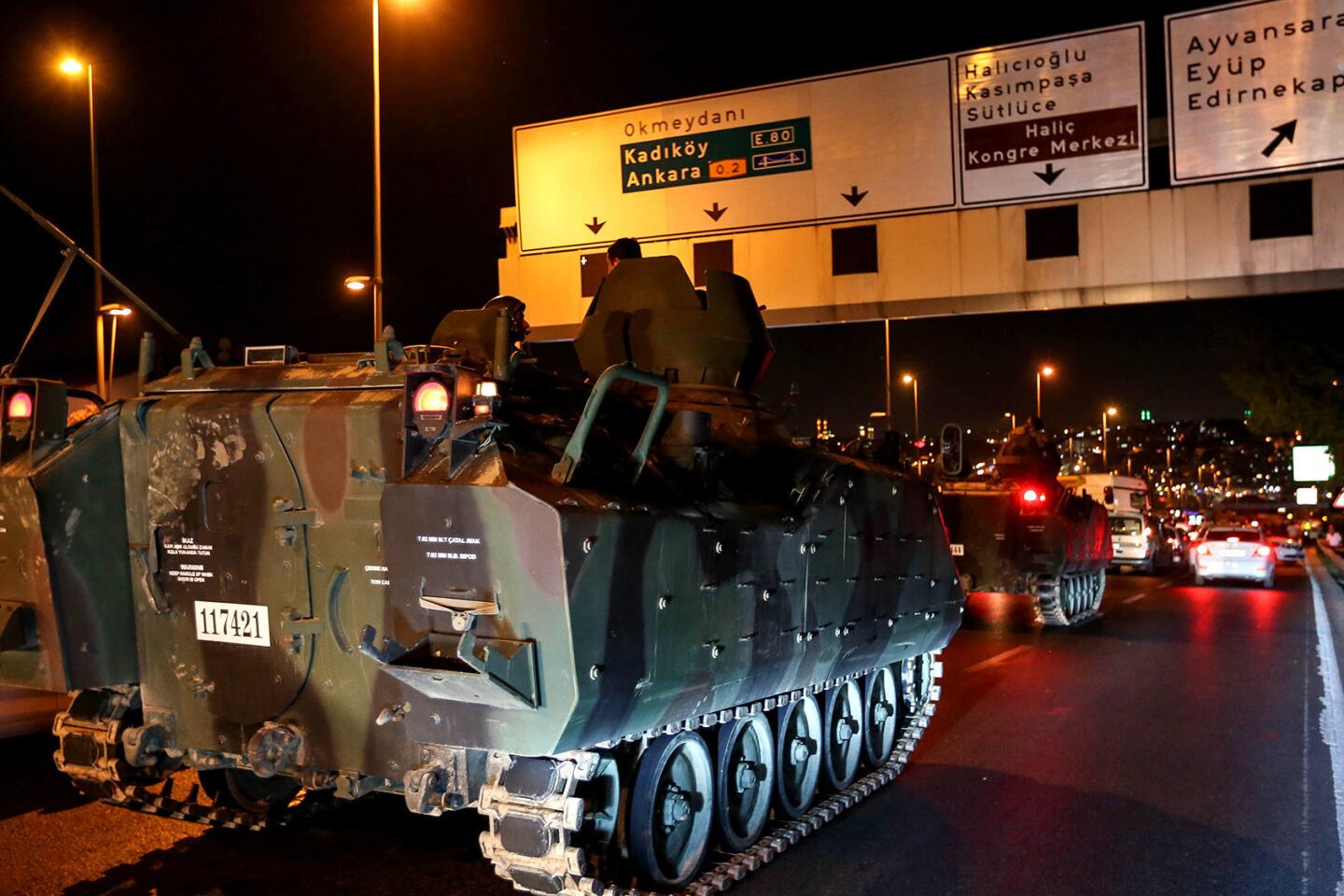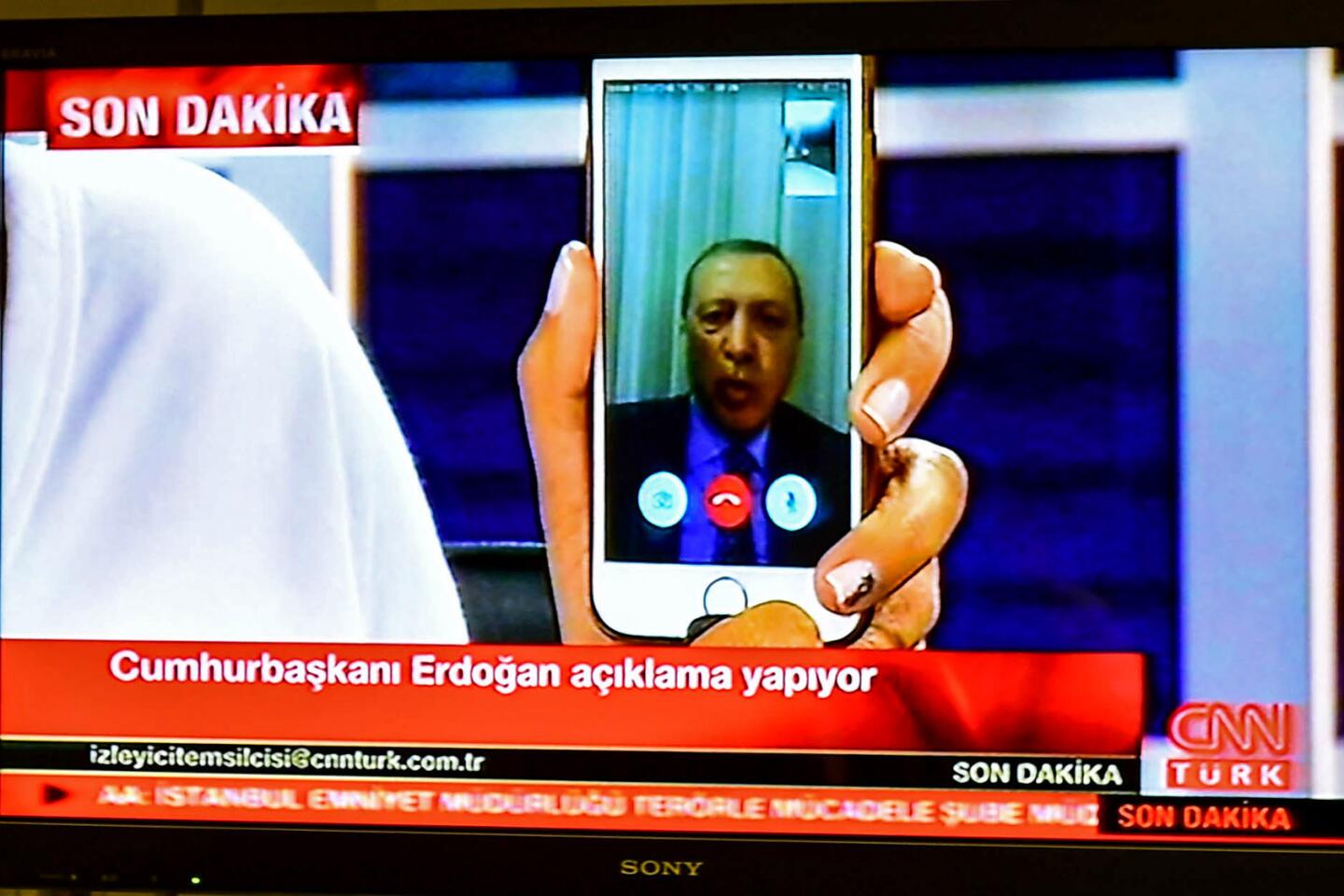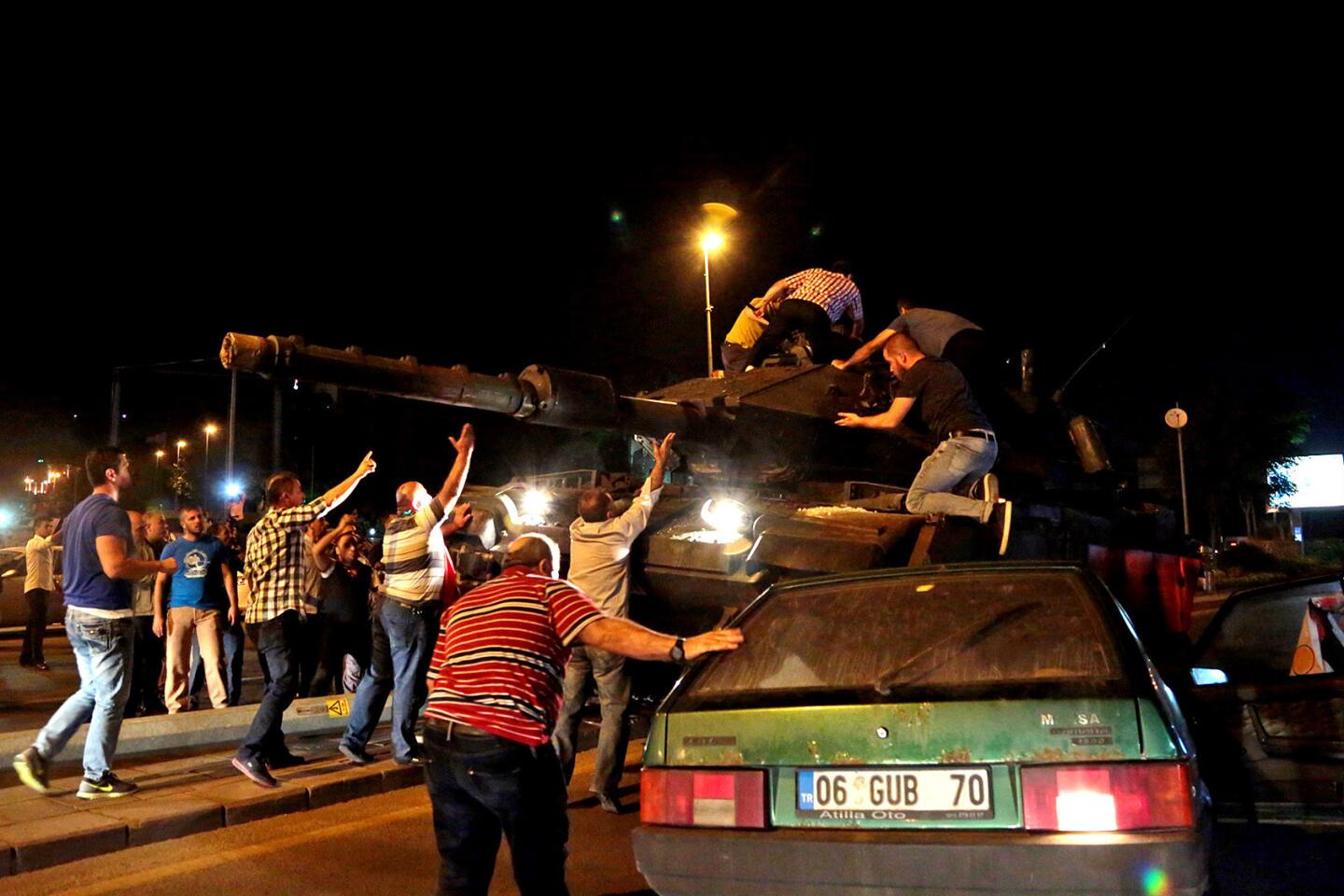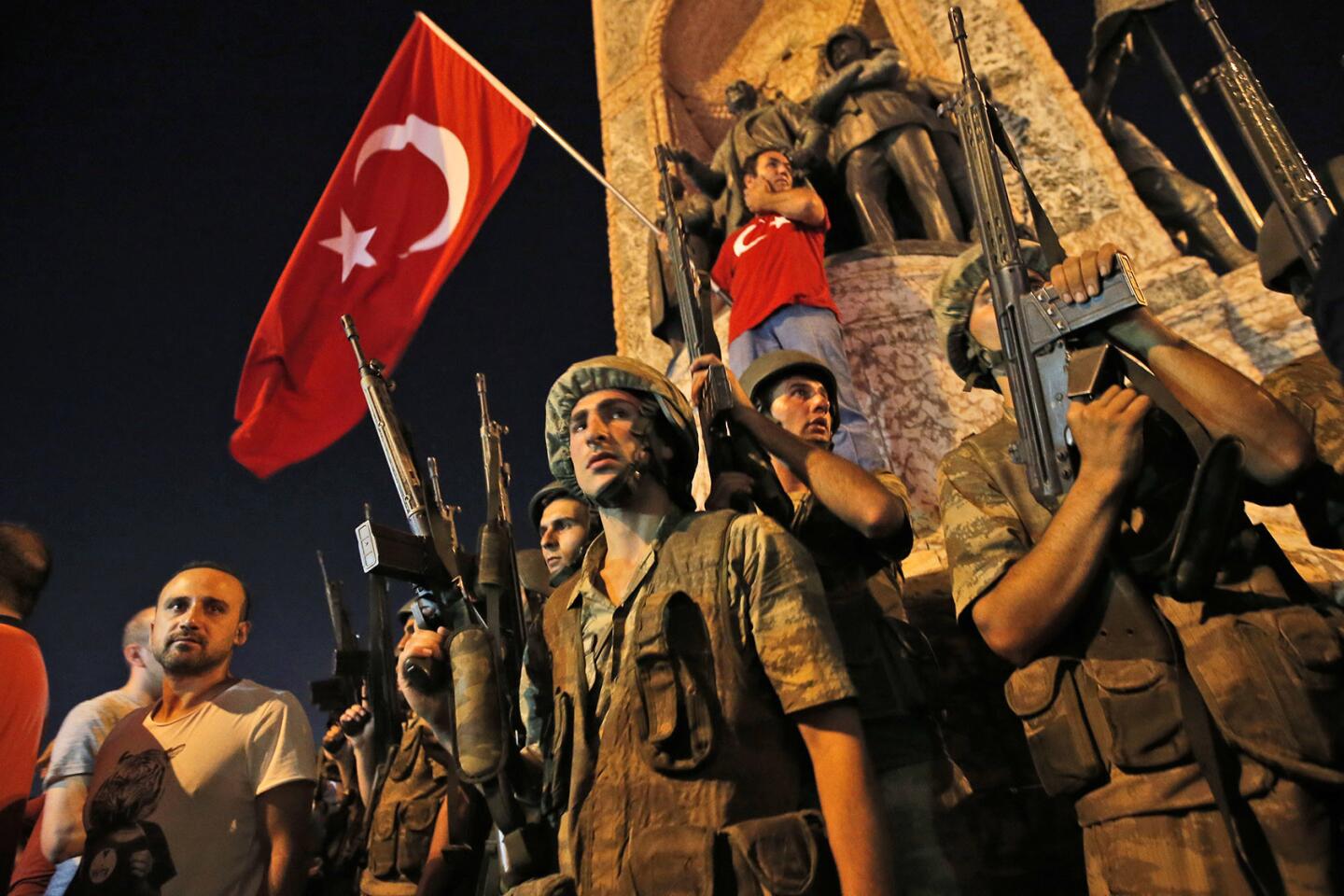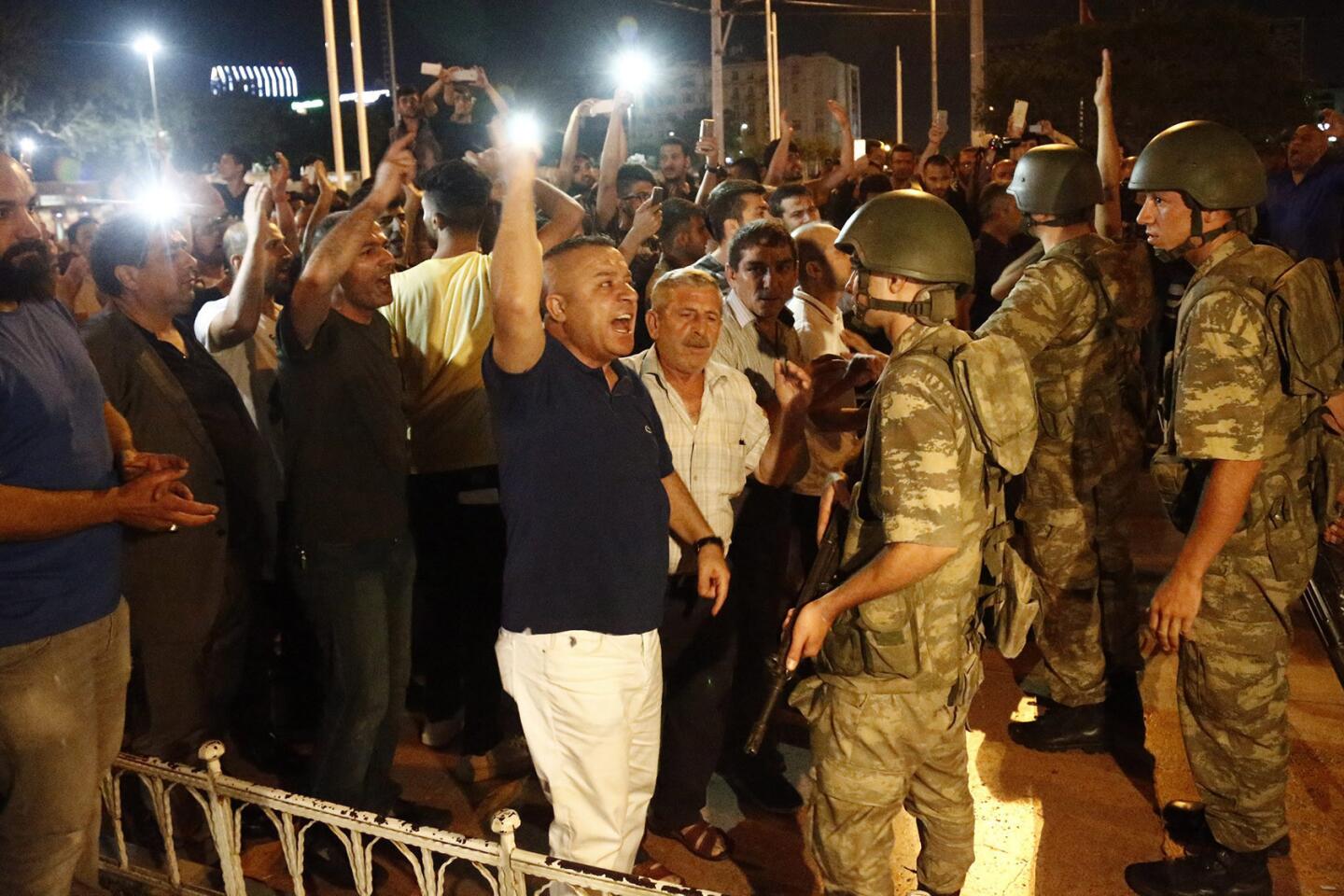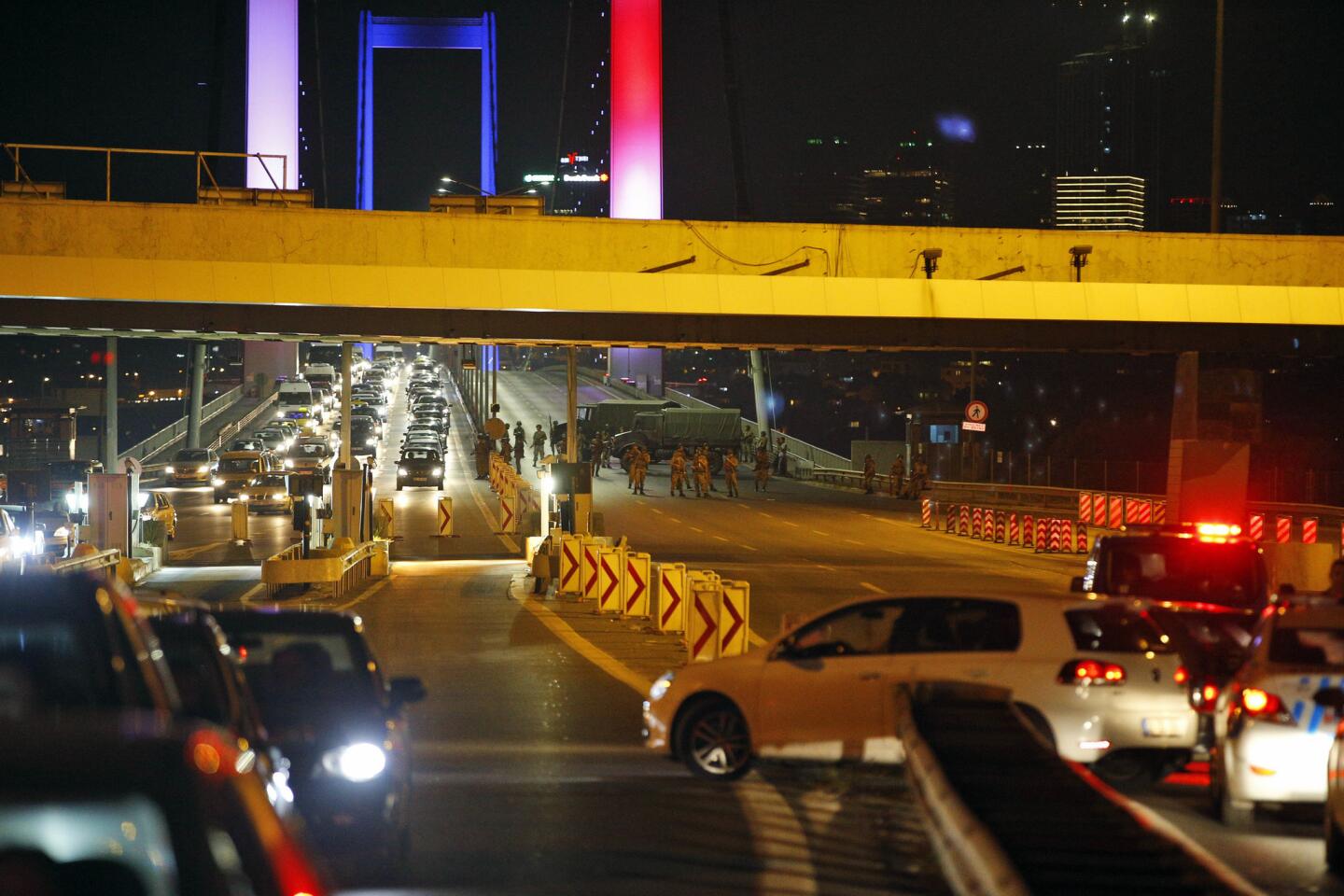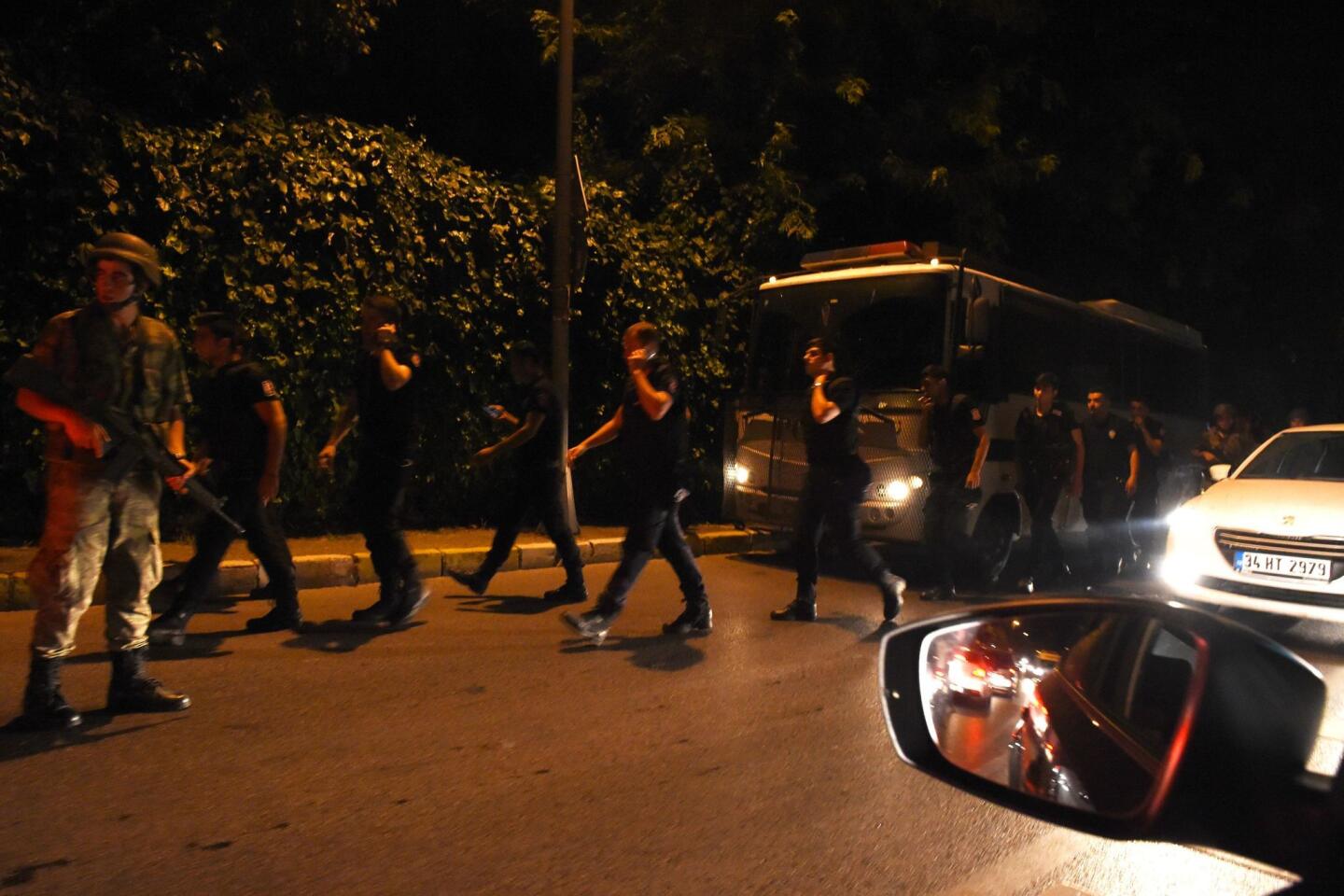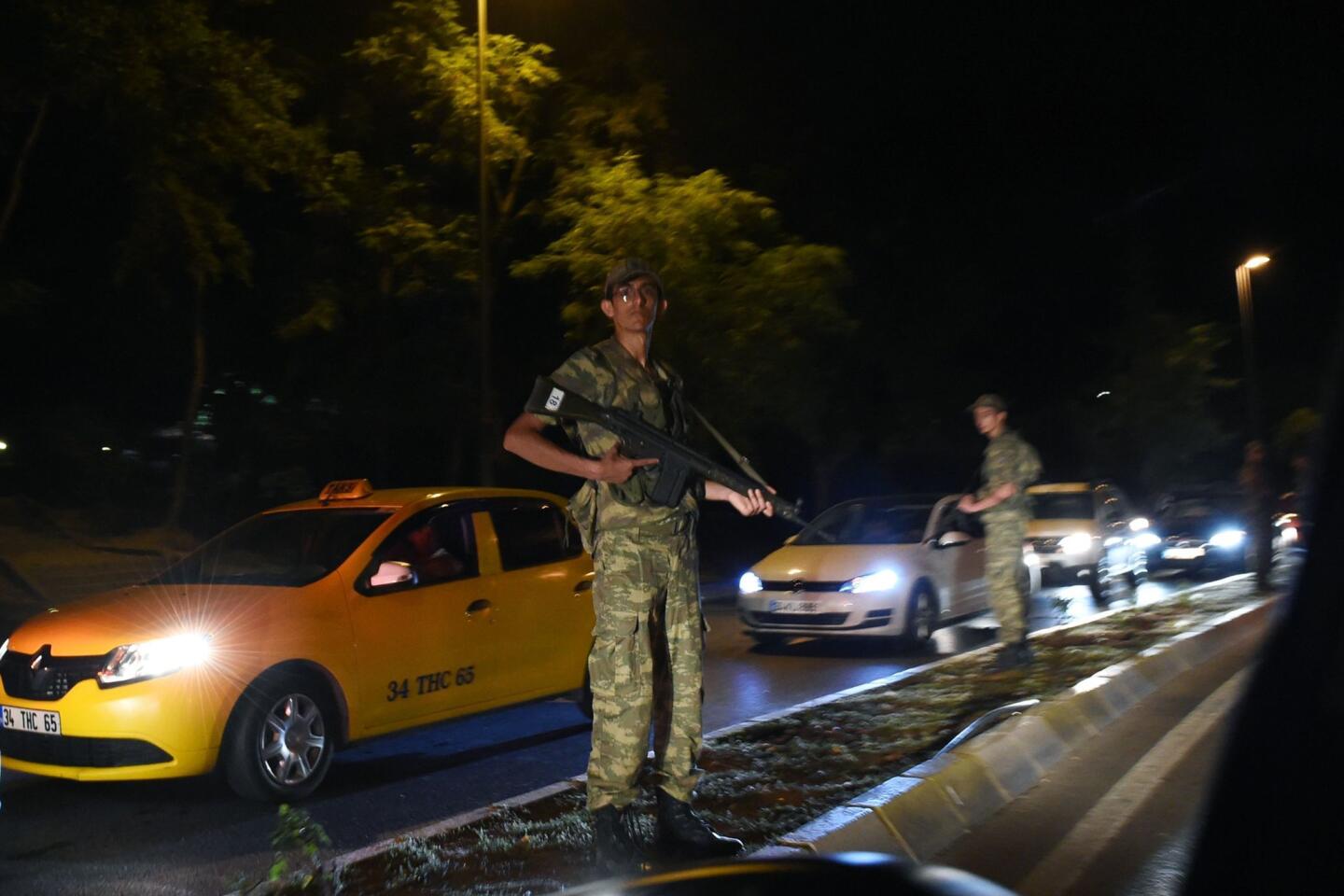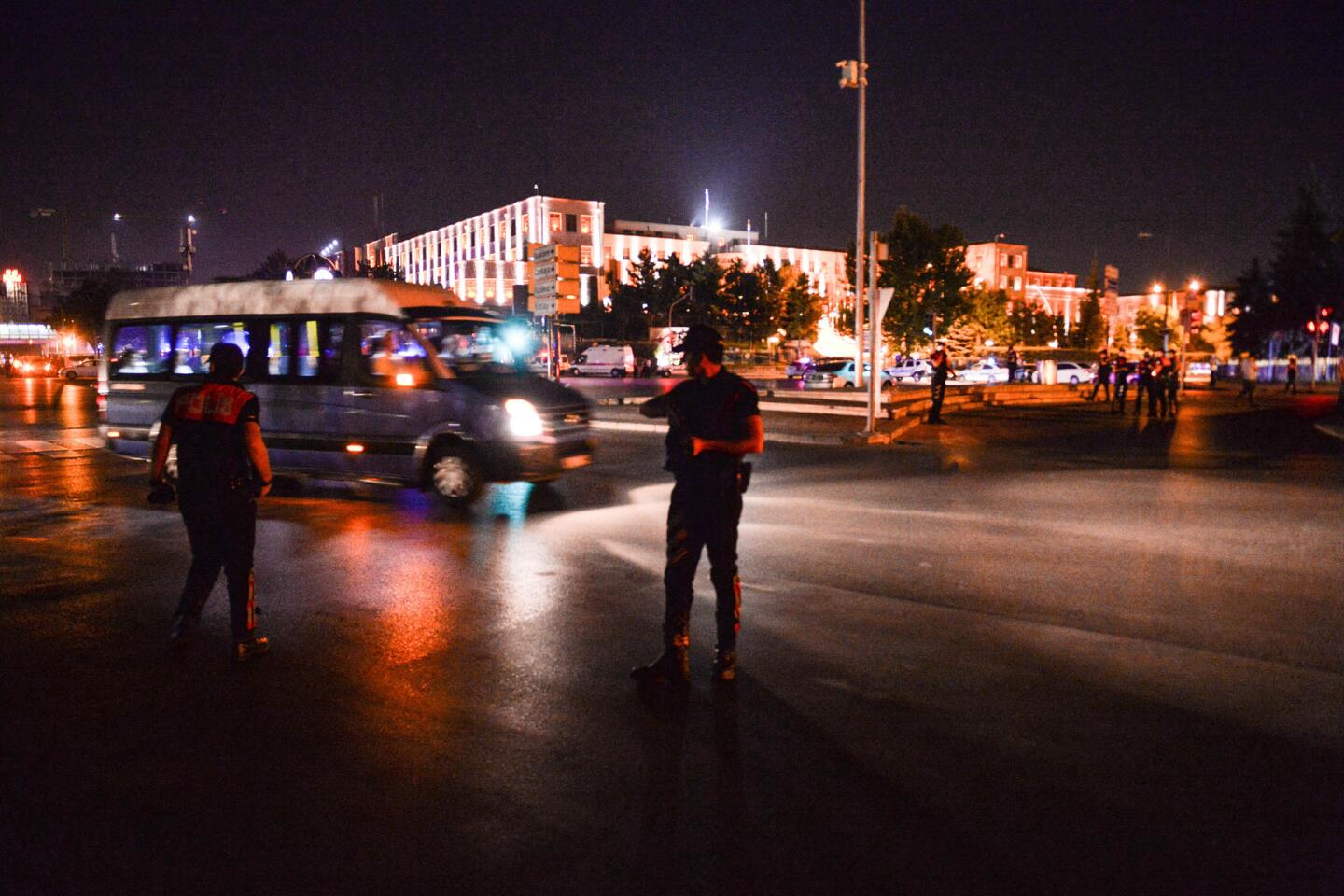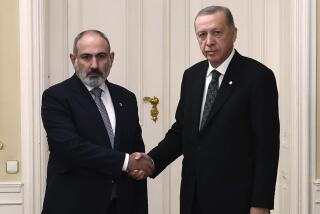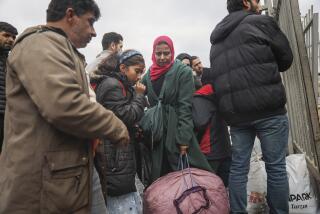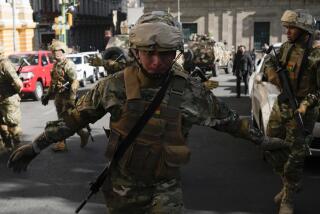Reporting from Istanbul, Turkey — Rebel commandos barged into an Aegean resort hotel with a key mission: capture Turkish President Recep Tayyip Erdogan.
He had been vacationing there. At first, the soldiers couldn’t find his villa. When they finally did, the president was long gone. The soldiers were at least an hour late.
They took a top presidential aide hostage as well as two bodyguards. But Erdogan was already on a jet.
His escape stands as the biggest blunder of the coup plotters who tried and failed to overthrow him. But it was far from their only one.
The string of errors suggested a coup attempt that was poorly planned and coordinated. Despite a long history of frequent coups in modern Turkey, the rebels seemed to bumble through some of the most basic aspects of seizing power.
To begin with, the dissident generals who organized the coup attempt also failed miserably at public relations.
The plotters seized the two bridges over Istanbul’s Bosporus strait and the control tower at the city’s main airport and attacked the MIT national intelligence agency, a major police headquarters, the parliament and the presidential palace in the capital, Ankara.
But they forgot to say who they were and what they were up to.
Binali Yildirim, the prime minister, beat them to it. Speaking to the news media at 11 p.m. Friday, about an hour into the coup attempt, as tanks sent by the would-be junta were rolling through Ankara toward his office, he said that a group in the Turkish military was attempting to topple the government but would fail.
It wasn’t until 12:15 a.m. Saturday that the coup plotters took control of the state television broadcaster in Ankara, pointed guns at a news reader and forced her to read a statement declaring their armed takeover.
The statement identified them for the first time by their preferred name, the “Peace at Home Council,” a reference to a famous phrase of Kemal Ataturk, the staunchly secularist founder of the modern Turkish republic, who spoke of “peace at home, peace in the world.” The name choice was the first indication that at least some of the coup leaders were unhappy about Erdogan’s moves to elevate the role of Islam in state affairs.
Minutes after the statement was read, the president responded, possibly from his vacation villa. Blocked from state television, he called the private television network, CNN Turk, using Facetime on his iPhone and exhorted the Turkish public to take to the streets to oppose the coup.
NEWSLETTER: Get the day’s top headlines from Times Editor Davan Maharaj >>
He said the coup attempt was being conducted by a “minority within the military” with links to with Fethullah Gulen, a Muslim preacher living in self-exile in the United States, and warned that the plotters would “pay the highest price at the end.” He said that he would return to Ankara.
Erdogan got on a helicopter on the advice of a trusted military general, flew to Dalaman airport, near the Aegean coast, and boarded a business jet. But instead of returning to the capital, he flew to Istanbul.
That carried its own risks, because the control tower was still under the control of the coup plotters, who had turned off the runway lights and easily could have been using parked vehicles to block landings.
The president discussed the dangers with the pilot, he later told his justice minister, Bekir Bozdag, asking: “Can you land with your own lights even if they don’t allow you to land?”
With enough fuel to fly for four hours, the president and the pilot had many options. Finally, they agreed to circle the airfield before deciding whether to land using only the lights of the plane.
1/89
Mourners carry the coffin of a man who died during the coup attempt at a funeral ceremony at Kocatepe Mosque in Ankara, Turkey. Support from the highest ranks in the army helped keep President Recep Tayyip Erdogan in power.
(Dimitar Dilkoff / AFP/Getty Images) 2/89
Women react during the funeral of a victim of the failed coup attempt in Istanbul, Turkey.
(Gurcan Ozturk / AFP/Getty Images) 3/89
A Turkish police officer restrains a man during an operation in front of the courthouse in Ankara. Turkey has detained more than 7,500 suspects it says were involved in the failed coup attempt.
(Ilyas Akengin / AFP/Getty Images) 4/89
Turkish police patrol during an operation in front of the courthouse in Ankara.
(Ilyas Akengin / AFP/Getty Images) 5/89
A boy is wrapped in a flag of the founder of modern Turkey, Mustafa Kemal Ataturk, in Taksim Square. Turkish authorities pressed on with a crackdown against suspects in the failed coup against President Recep Tayyip Erdogan.
(Daniel Mihailescu / AFP/Getty Images) 6/89
Relatives of Turkish geologist Cuma Dag, 39, who was killed by helicopter gunfire Friday while protesting the coup attempt, mourn at his funeral in Ankara.
(Hussein Malla / Associated Press) 7/89
Members of the public cheer as Turkish Prime Minister Binali Yildirim speaks after a meeting with the Turkish Speaker of Parliament at the Turkish Grand Assembly in Ankara.
(ADEM ALTAN / AFP/Getty Images) 8/89
Women try to take pictures of Turkish President Tayyip Erdogan walking through the crowd of supporters, as security officers stand on a roof in Istanbul
(Defne Karadeniz / Getty Images) 9/89
Turkish anti riot police officers escort Turkish soldiers who allegedly took part in a military coup in the Bakirkoy district in Istanbul
(OZAN KOSE / AFP/Getty Images) 10/89
People kick and beat a Turkish soldier that participated in the attempted coup, on Istanbul’s Bosporus Bridge.
(Selcuk Samiloglu / AP) 11/89
Supporters of Turkish President Recep Tayyip Erdogan shout slogans and hold flags during a demonstration, against the failed Army coup attempt.
(SEDAT SUNA / EPA) 12/89
A woman takes a picture of herself in front a damaged Turkish military APC that was attacked by protesters near the Turkish military headquarters in Ankara.
(Hussein Malla / AP) 13/89
Pro-Erdogan protesters wave Turkish flags and shout slogans as they demonstrate in Istanbul in support the government following a failed coup attempt.
(ARIS MESSINIS / AFP/Getty Images) 14/89
Turkish citizens wave their national flags as they protest against the military coup outside Turkey’s parliament near the Turkish military headquarters in Ankara, Turkey.
(Hussein Malla / Associated Press) 15/89
A Turkish police officer embraces a man atop an empty tank that had been used in the coup attempt in Istanbul.
(Bulent Kilic / AFP/Getty Images) 16/89
People wave Turkish flags at the Ataturk airport in Istanbul, which was taken over by supporters of President Recep Tayyip Erdogan.
(Gurcan Ozturk / AFP/Getty Images) 17/89
A lawmaker addresses a nearly empty chamber of Turkey’s parliament in Ankara on July 16, 2016.
(Burhan Ozbilici / Associated Press) 18/89
Passengers whose flights were canceled because of the coup attempt wait at Ataturk airport in Istanbul on July 16, 2016.
(Tolga Bozoglu / EPA) 19/89
People waving Turkish flags take to the streets of Ankara in opposition to the military coup attempt.
(Adem Altan / AFP/Getty Images) 20/89
People sit next to a giant Turkish flag after they took over a military position at the Ataturk airport in Istanbul.
(Gurcan Ozturk / AFP/Getty Images) 21/89
People react after they take over a military position on the Bosphorus bridge in Istanbul on July 16, 2016. (BULENT KILIC / AFP/Getty Images)
22/89
Turkish people holding flags are driven in a car, backdropped by Istanbul’s iconic Bosphorus Bridge, Saturday, July 16, 2016.
(Emrah Gurel / Associated Press) 23/89
Turkish people celebrate as Turkish police officers, loyal to the government, stand atop tanks abandoned by Turkish army officers against a backdrop of Istanbul’s iconic Bosporus Bridge, Saturday, July 16, 2016. (Emrah Gurel / Associated Press)
24/89
Women react after people took over military positions on the Bosphorus bridge in Istanbul on July 16, 2016. (OZAN KOSE / AFP/Getty Images)
25/89
People try to stop a Turkish police armored vehicle carrying Turkish soldiers that participated in the coup and surrendered, Saturday, July 16, 2016. (Emrah Gurel / Associated Press)
26/89
Soliders involved in the coup attempt surrender on Bosphorus bridge. (Gokhan Tan / Getty Images)
27/89
Clothes and weapons beloging to surrendered soldiers involved in the coup attempt lie abandoned on the ground on Bosphorus Bridge.
(Gokhan Tan / Getty Images) 28/89
Soliders involved in the coup attempt surrender on Bosphorus bridge. (Gokhan Tan / Getty Images)
29/89
Soldiers involved in the coup attempt surrender on Bosphorus bridge. (Gokhan Tan / Getty Images)
30/89
A police officer talks with soldiers involved in the coup attempt after they surrendered on Bosphorus bridge. (Gokhan Tan / Getty Images)
31/89
Turkish anti-riot police officers use water cannon on people as a police bus carrying detained Turkish soldiers passes over the Bosphorus Bridge in Istanbul.
(Ozan Kose / AFP/Getty Images) 32/89
People react after they took over military positions on the Bosphorus bridge in Istanbul. (OZAN KOSE / AFP/Getty Images)
33/89
In this image taken from video provided by Anadolu Agency, Turkish president Recep Tayyip Erdogan speaks to the media Saturday, July 16, 2016 in Istanbul. Erdogan said that his government was working to crush a coup attempt after a night of explosions, air battles and gunfire that left dozens dead and at least 150 people wounded. (Anadolu Agency / Associated Press)
34/89
Turkish people gather near a burned car in Istanbul, Saturday, July 16, 2016. (Emrah Gurel / Associated Press)
35/89
People gather around a car which was crushed by a tank in Kizilay Square. (Burhan Ozbilici / Associated Press)
36/89
A car burns during a firefight between Turkish army and Turkish police in Istanbul’s Taksim Square. (Cavit Ozgul / Associated Press)
37/89
Turkish soldiers arrested by police sit in a police bus in Istanbul’s Taksim Square, early Saturday, July 16, 2016. (Selcuk Samiloglu / Associated Press)
38/89
People take to the streets in Ankara, Turkey. (ADEM ALTAN / AFP/Getty Images)
39/89
A Turkish soldier, arrested by civilians, is led to be handed to police officers in Taksim Square in Istanbul, Turkey, early Saturday, July 16, 2016. (Selcuk Samiloglu / Associated Press)
40/89
A man holds the flag of Turkey in front of a destroyed car, crashed by a military tank. (Burhan Ozbilici / Associated Press)
41/89
Turkish soldiers, arrested by civilians, are handed to police officers in Istanbul’s Taksim Square. (Selcuk Samiloglu / Associated Press)
42/89
Turkish people, protesting against the coup, in Istanbul early Saturday, July 16, 2016. (Omer Kuscu / Associated Press)
43/89
A Turkish soldier, arrested by civilians, is walked to be handed to police officers, in Istanbul’s Taksim Square. (Selcuk Samiloglu / Associated Press)
44/89
People gather in Ankara’s main Kizilay Square to protest an attemped military coup. (Burhan Ozbilici / Associated Press)
45/89
A Turkish soldier that participated in the coup and apprehended by civilians is escorted to be handed over to police, in Istanbul’s Taksim Square. (Selcuk Samiloglu / Associated Press)
46/89
Supporters of Turkey’s president Recep Tayyip Erdogan, protest in Istanbul’s Taksim square, early Saturday, July 16, 2016. (Emrah Gurel / Associated Press)
47/89
A woman lies on the ground in Ankara, Turkey. (Gokhan Sahin / Getty Images)
48/89
People take over a tank near the Fatih Sultan Mehmet bridge during clashes with military forces in Istanbul on July 16, 2016. (GURCAN OZTURK / AFP/Getty Images)
49/89
People take over a tank near the Fatih Sultan Mehmet bridge during clashes with military forces in Istanbul on July 16, 2016. (GURCAN OZTURK / AFP/Getty Images)
50/89
People take over a tank near the Fatih Sultan Mehmet bridge during clashes with military forces in Istanbul on July 16, 2016. (GURCAN OZTURK / AFP/Getty Images)
51/89
People take over a tank near the Fatih Sultan Mehmet bridge during clashes with military forces in Istanbul on July 16, 2016. (GURCAN OZTURK / AFP/Getty Images)
52/89
People take to the streets near the Fatih Sultan Mehmet bridge during clashes with military forces in Istanbul on July 16, 2016. (GURCAN OZTURK / AFP/Getty Images)
53/89
Turkish solders at Taksim square as people react. (OZAN KOSE / AFP/Getty Images)
54/89
A tank is parked in the entrance to Istanbul’s Ataturk airport, early Saturday, July 16, 2016. (Ismail Coskun / Associated Press)
55/89
People protesting against the coup wave a Turkish flag in Istanbul’s Taksim square, early Saturday, July 16, 2016. (Emrah Gurel / Associated Press)
56/89
An injured man is attended to by police when Turkish soldiers opened fire to disperse the crowd in Istanbul’s Taksim square, early Saturday, July 16, 2016. (Emrah Gurel / Associated Press)
57/89
Turkish army vehicles enter the Ataturk Airport on July 16, 2016 in Istanbul. (Defne Karadeniz / Getty Images)
58/89
Turkish army’s tank enter the Ataturk Airport on July 16, 2016 in Istanbul. (Defne Karadeniz / Getty Images)
59/89
A passenger walks with her luggage as Turkish army’s tanks enter the Ataturk Airport on July 16, 2016 in Istanbul. (Defne Karadeniz / Getty Images)
60/89
A man lies in front of a tank in the entrance to Istanbul’s Ataturk airport, early Saturday, July 16, 2016. (Ismail Coskun / Associated Press)
61/89
A man shot during clashes between Turkish solders and police near Taksim square in Istanbul on July 16, 2016 is treated by paramedics. (OZAN KOSE / AFP/Getty Images)
62/89
People occupy a tank in Istanbul. (TOLGA BOZOGLU / EPA)
63/89
Supporters of Turkey’s president Recep Tayyip Erdogan, gather, waving Turkish flags, in Istanbul’s Taksim square, early Saturday, July 16, 2016. (Emrah Gurel / AP)
64/89
Turkish military control a road in Istanbul on July 16, 2016, after Turkish troops launched a coup. (GURCAN OZTURK / AFP/Getty Images)
65/89
Supporters of president of Turkey Recep Tayyip Erdogan shout slogans at the Taksim Square in Istanbul. (SEDAT SUNA / EPA)
66/89
People take to the streets in support of President Recep Tayyip Erdogan on July 16, 2016 in Antalya, Turkey.
(Chris McGrath / Getty Images) 67/89
People take to the streets in support of President Recep Tayyip Erdogan on July 16, 2016 in Antalya, Turkey.
(Chris McGrath / Getty Images) 68/89
People take to the streets in support of President Recep Tayyip Erdogan on July 16, 2016 in Antalya, Turkey. (Chris McGrath / Getty Images)
69/89
People take to the streets in support of President Recep Tayyip Erdogan on July 16, 2016 in Antalya, Turkey. (Chris McGrath / Getty Images)
70/89
Turkish army tanks move in the main streets in the early morning hours of July 16, 2016 in Ankara, Turkey. (Gokhan Sahin / Getty Images)
71/89
A man approaches Turkish military with his hands up at the entrance to the Bosphorus bridge in Istanbul. (BULENT KILIC / AFP/Getty Images)
72/89
upporters of president of Turkey Recep Tayyup Erdogan shout slogans at the Taksim Square in Istanbul. (SEDAT SUNA / EPA)
73/89
Supporters of president of Turkey Recep Tayyip Erdogan shout slogans at the Taksim Square in Istanbul. (SEDAT SUNA / EPA)
74/89
A military tank at entrance to the Bosphorus bridge in Istanbul. (BULENT KILIC / AFP/Getty Images)
75/89
People carry a man shot during clashes with Turkish military at the entrance to the Bosphorus bridge in Istanbul. (BULENT KILIC / AFP/Getty Images)
76/89
A man performs CPR on a wounded man after clashes with Turkish military at the entrance to the Bosphorus bridge in Istanbul. (BULENT KILIC / AFP/Getty Images)
77/89
A supporter of Recep Tayyip Erdogan shout slogans at the Taksim Square in Istanbul.
(SEDAT SUNA / EPA) 78/89
A military tank crushes a car in Istanbul.
(Burhan Ozbilici / AP) 79/89
Supporters of Turkish President Recep Tayyip Erdogan.
(Defne Karadeniz / Getty Images) 80/89
People run along the main streets of Istanbul.
(Defne Karadeniz / Getty Images) 81/89
Turkish army APCs move in the main streets on July 15, 2016 in Istanbul.
(Defne Karadeniz / Getty Images) 82/89
Turkish President Recep Tayyip Erdogan speaks on CNN Turk via an iPhone Facetime call.
(Burak Kara / Getty Images) 83/89
Tanks move into position as Turkish people attempt to stop them in Ankara.
(Burhan Ozbilici / AP) 84/89
Turkish soldiers secure the area as supporters of Turkey’s President Recep Tayyip Erdogan protest in Istanbul’s Taksim Square.
(Emrah Gurel / AP) 85/89
Supporters of Recep Tayyip Erdogan shout slogans at Taksim Square in Istanbul, Turkey.
(SEDAT SUNA / EPA) 86/89
Turkish soldiers block Istanbul’s iconic Bosphorus Bridge as an apparent coup attempt unfolds.
(Emrah Gurel / Associated Press) 87/89
A group of Turkish internal security officers passes a soldier on the streets of Istanbul.
(Bulent Kilic / AFP/Getty Images) 88/89
Turkish soldiers take up positions along the road to the Bosphorus Bridge in Istanbul, which was closed during an apparent coup attempt.
(Bulent Kilic / AFP/Getty Images) 89/89
Police officers stand guard near the Turkish military headquarters in Ankara, Turkey.
(Kutluhan Cucel / Getty Images) They touched down in Istanbul shortly before 3 a.m.
Back in the Aegean coastal town of Marmaris at the Turban hotel, where Erdogan had been vacationing, the rebel commanders had just arrived.
Three helicopters deposited more than two dozen soldiers in red berets and camouflage uniforms, according to Ali Gundogan, a local journalist who had come on his motorbike and climbed over a hotel wall. “I came face to face with them,” he said.
“Shoot him!” one of the men ordered.
“I am a journalist,” said Gundogan, who added that he showed them his video camera and refused to leave.
The soldiers circulated among the hotel guests and security staff, asking for directions to the president’s villa, “since they didn’t know the exact location,” he said.
When they found the villa, they threatened to throw a grenade inside. Fahri Kasirga, the secretary-general of the presidency, and two presidential bodyguards were still at the hotel. The soldiers took all three hostage.
As the night wore on and they were unable to find the president, the soldiers told Gundogan that they had no intention of harming him or anyone else. It seemed they intended only to capture the president and not kill him.
The town mayor, Muhammet Ali Acar, said that the soldiers had fired in the air upon arriving at the hotel and that panicked guests called the police to report that armed men had taken over.
When large numbers of police finally arrived about 4:30 a.m. and tried to arrest the renegades, a gun battle ensued in which a policeman and a bodyguard were killed, the mayor said.
Eventually about 15 of the soldiers got back in their helicopters and flew off, while the rest fled on foot.
“They left all their machine guns in the hotel rooms,” said Gundogan. “I guess they didn’t want to carry any heavy equipment with them.”
Gutman is a special correspondent.
ALSO
Top officers at Incirlik Air Base arrested in Turkey coup attempt
Turkish military staffers seek refuge in rival Greece
Turkey’s coup accusations cast spotlight on Fethullah Gulen, a reclusive cleric exiled in Pennsylvania
